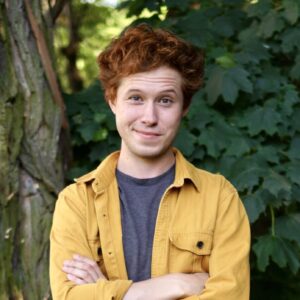
dr Marcin Krassowski
Postdoc, Section of Social Anthropology
Room:
Phone: +48 784 050 367
E-mail: marcin.krassowski@amu.edu.pl
Office hours:
Krassowski (2025) Fantazja antropologa. Apologia dziwnych pomysłów [w przygotowaniu]
Krassowski (2021) Niepełnosprawczość. Antropocen i modernistyczne sny, „Przegląd kulturoznawczy” 1 (47).
Krassowski, Młynarski (2020) Pozorny kryzys własności. Współdzielony rower miejski – koniec konsumpcji czy utopia współdzielenia?, „Przegląd kulturoznawczy” 4 (46).
Krassowski (2020) Laboratoria przyszłości. Ekowioski jako projekty edukacyjno-utopijne [w:] „Utopia a edukacja. Dysonanse, kontrasty i harmonie wyobrażeń świata możliwego”, red. Rafał Włodarczyk, IPUW, Wrocław 2020.
Krassowski (2018) Kim do diabła jest Mariusz Tchorek?, „Konteksty. Polska Sztuka Ludowa”, 4/4
Krassowski (2018) Szkic o rozdziałach i pudełkach, „Konteksty. Polska Sztuka Ludowa”, 4/4
Grębecka, Krassowski (2018) Badać razem, pisać osobno, „Konteksty. Polska Sztuka Ludowa”, 1-2/4.
Krassowski (2018) W las, „Przegląd Humanistyczny”, 2/4.
Krassowski (2015). Druga jesień. Kolekcje okolic Wielopola Skrzyńskiego, „Konteksty. Polska Sztuka Ludowa”, 1-2/4.
Krassowski (2022) Wojna nie ma w sobie nic z klimatu, „Dwutygodnik”, 333, 05/2022
Krassowski (2022) Gry z klimatem, „Dwutygodnik”, 345, 10/2022
Krassowski (2019) Spacerkiem po ekowioskach, Przekrój [online]
SPECIFIC: Specifying Practices Enabled by Cycling In FIfteen-minute Cities (Określanie praktyk umożliwianych przez jazdę na rowerze w piętnastominutowych miastach), (2024-2027), DUT, postdoc
Ekowioski – laboratoria przyszłości (2020-2021) , ETIUDA NCN, leader
Agronauci. Europejskie Ekowioski w perspektywie nauk o kulturze (2015-2021), Diamentowy Grant MNiSW, leader
Legnica – pamięć podzielonego miasta (2012-2013), NCN, researcher
Ochotnicza Straż Pożarna (OSP) kulturotwórcy (2019); Fundacja Ari Ari, Mazowiecki Instytut Kultury, Ośrodek KARTA ; researcher
Prywatne Podmioty Kultury 2018. Archiwa społeczne – badanie uczestniczące (2018); Fundacja Ari Ari, Mazowiecki Instytut Kultury, Ośrodek KARTA; researcher
Galerie niezależne 2017 – obserwacja uczestnicząca (2017); Fundacja Ari Ari ; researcher
Kultura małych i średnich miast (2016) Fundacja Ari Ari; researcher
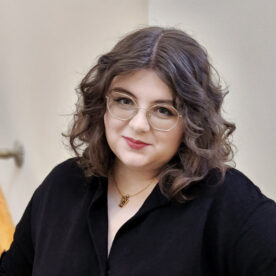
mgr Aleksandra Krzyżaniak
PhD candidate, Section of Social Anthropology
Room: 2.14
Phone:
E-mail: alekrz3@amu.edu.pl
Office hours:
- Anthropology of Ethnicity: nationalism and integralism; contemporary national and ethnic identities; cultural fundamentalism; ethnic politics.
- Anthropology of Migration: contemporary perceptions of migrants; adaptation processes; EU migration policy; forced displacement; migration regimes; the “ideal victim” profile.
- Political Anthropology: Polish politics (local and parliamentary); studying up; infrapolitics; identity politics (ethnicity, nationality, gender, queer); anthropology of the political right.
- Gender Studies: socio-legal aspects of gender; gender politics; role and consequences of gender in Polish politics and public life; discourses of gender construction.
- Feminist Critique: critique and deconstruction of patriarchy; deconstruction of feminism; history of feminist thought in Poland; feminism in Polish politics; feminist research; intersectionality.
Academic
- Bóg jest ze mną zawsze, bez względu na miejsce. Znaczenie migracji dla Kościoła Jezusa Chrystusa Świętych w Dniach Ostatnich na przykładzie gminy w Poznaniu. Raporty CeBaM UAM, 2/2024. Online.
- Dialectic of Fear: Centre-Liberal Media Discourse on Gender, LGBTQIA+ and Abortion in Contemporary Poland. Literatura Ludowa. Journal of Folklore and Popular Culture, 66(4), 2022 (77–89). DOI: 10.12775/LL.4.2022.005
- Liminalność i ofiara. „Midsommar. W biały dzień” jako przykład folk horroru. Literatura Ludowa. Journal of Folklore and Popular Culture. 65(3) 2021 (108-112). DOI: 10.12775/LL.3.2021.010
- [with M. Suchorski] Płeć kulturowa w polityce lokalnej – społeczne uwarunkowanie pozycji kobiet w kudowskim samorządzie terytorialnym. Etnologika. Poznańskie Studia Antropologiczne. 2/2020 (13-24). Online.
Popular Science / Public Anthropology
- Out of Tune. Hosting Refugees: flash ethnographies. Online.
- [z U. Małecka, Z. Nalepa, Z. Majerowicz, W. Kuligowski]. Etnograficzne warsztaty pisarskie: cztery opowiadania. Limen. LUD. Organ Polskiego Towarzystwa Ludoznawczego. 106, 2022 (371-296). Online.
- Po co antropologii powieść o utopii? Etnologika. Poznańskie Studia Antropologiczne. 3/2021 (66-69). Online.
- Polska wczoraj/Polska dzisiaj. Etnologika. Poznańskie Studia Antropologiczne. 2/2020 (99-102). Online.
2024–present (PhD candidate): Private Hosting of Ukrainian Refugees in Polish Homes: Everyday Humanitarianism and Encounters Across Difference (NCN OPUS grant UMO-2023/49/B/HS3/02706).
2022–2023 (Principal Investigator): Mobility as a Tool of Mormonism, Mormonism as a Tool of Mobility: The Case of The Church of Jesus Christ of Latter-day Saints in Poznań. Funded by the Center for Migration Studies, Adam Mickiewicz University.
2022-2023 (Principal Investigator) projekt Gender expression i performatywność płci społeczno-kulturowej w polityce lokalnej na przykładzie poznańskiego samorządu. Funded under ID-UB grant no. 049 Study@Research.
2022 (Principal Investigator) [z J. Kowalska] Diagnoza społeczności Lokalnych Osiedla Piątkowo Północ 2022. Charakterystyka i diagnoza potrzeb osób zamieszkujących osiedle Marysieńki w Poznaniu. Conducted for the Center for Eco-Development Promotion with funding from the Poznań Municipality Budget.
2020 (researcher) Community Archaeology in Rural Environments – Meeting Societal Challenges (JPICH.DH.17.035) under the Joint Programming Initiative on Cultural Heritage (JPICH) in Changing Environments (2019–2021).
Conferences
30.06-01.07.2025 Między troską a ekonomią goszczenia: o pracy i społecznych oczekiwaniach wobec uchodźców z Ukrainy. Conference Polska jako kraj imigracji: perspektywa systemu edukacji oraz rynku pracy, Institute of Philosophy and Sociology, Polish Academy of Sciences, Warsaw..
19-20.06.2025 From Refugees to Guests to Family? Private Hosting of Ukrainian Refugees in Rural Poland (paper); Bordering the Russia-Ukraine War – Policing forced migrants in Europe (roundtable speaker). Migration and Societal Change Conference, Utrecht University, The Netherlands
02-06.06.2025 (Un)writing Borders through Hospitality: Capturing Private Hosting of Ukrainian Refugees in Poland through Flash Ethnography. SIEF 2025 Congress: Unwriting, International Society for Ethnology and Folklore, University of Aberdeen, Scotland.
28.03.2025 [with V.Soloshenko] (Nie)formalne struktury, formalne wyzwania: społeczne i instytucjonalne sieci wsparcia w prywatnym goszczeniu osób uchodźczych z Ukrainy. I Poznańska Konferencja Migracyjna, Center for Migration Studies, Adam Mickiewicz University.
04.11.2024 Fear-driven World? Traditional Media Discourse on Gender, LGBTQIA+ and Abortion in Contemporary Poland. Online lecture in the series Law(s) Established – How the New Right Is Changing Education and Society, University of Education Schwäbisch Gmünd, Germany.
05.03.2024 Kobieta w polskiej polityce samorządowej – podmiot czy przedmiot? Ogólnopolska Konferencja Naukowej OBSZARY POLONISTYKI IX: (De) konstruowanie feminizmu. Narracje post-, pop-, fake i pseudofeministyczne w literaturze, kulturze i sztuce. University of Rzeszów (online).
14.12.2023 webinar Znaczenie migracji dla Kościoła Jezusa Chrystusa Świętych w Dniach Ostatnich na przykładzie gminy w Poznaniu. Center for Migration Studies, Adam Mickiewicz University.
21-22.01.2023 Rola i znaczenie płci w polityce lokalnej. III Ogólnopolska Konferencja Naukowa „Seksualność a prawo, psychologia i nauki o społeczeństwie”. Center for American Studies, Faculty of Law and Administration, Adam Mickiewicz University (online).
27.10.2022 Rola i znaczenie płci w polityce lokalnej. Konsekwencje społeczno-kulturowych uwarunkowań pozycji i sprawczości kobiet na przykładzie poznańskich i kudowskich struktur samorządowych. Konferencja Płeć to płeć? Współczesne dyskursy i praktyki Genderowe. Institute of Sociology, University of Wrocław; Polish Sociological Association, Wrocław Branch.
19-22.05.2022 A one small step for man, one giant leap for mankind. On the Anthropocene, Colonialism and the Conquest of the Space referat na międzynarodowej konferencji naukowej Antropocen i rola uniwersytetów w jego kształtowaniu. Institute of Anthropology and Ethnology, Adam Mickiewicz University.
19.01.2021 [z A. Stanisz, U. Małecka, P. Benz) Lasy, drogi, polityki. Badania terenowe w nurcie etnografii współpracującej i zaangażowanej. Academic Seminar, Institute of Anthropology and Ethnology, Adam Mickiewicz University.
Awards and Scholarships
2022: Level III Scientific Scholarship of the Marshal of the Greater Poland Voivodeship
2021/2022: Dr. Jan Kulczyk Scholarship
Trainings and Workshop
03-07.12.2025 Winter School in Humanities: Lessons from the Past – Solutions for the Future. Doctoral School of Humanities, Adam Mickiewicz University (Poznań / Gułtowy).
03.2022 Mars Colony Hackathon. Organized by the U.S. Embassy, European Space Foundation, Polish Space Agency, and Venture Café.
2022 Warsztaty Nowoczesnego Foundraisingu. Adam Mickiewicz University, University of Tomorrow Program.
01.2022-05.2023 Queer studies. Ludzie, historia, kultura. Adam Mickiewicz University.
Memberships
2019-present Member, Bronisław Piłsudski Student Ethnological Circle, Institute of Anthropology and Ethnology, Adam Mickiewicz University
2021/2022 Secretary, Student Council of the Faculty of Anthropology and Cultural Studies
Social Media and Academic Profiles
ORCID: 0000-0002-3414-637X

mgr Olena Martynchuk
PhD candidate,
Room: 2.14
Phone:
E-mail: olena.martynchuk@amu.edu.pl
Office hours:
Martynchuk, O. (2023). A Small Reflection on the Vernacular Photography in the Experience of Ukrainian War Refugee in Poland. Etnografia Polska, 67(1–2). https://doi.org/10.23858/EP67.2023.3404
2023/2024
- Seeking a new language: Migration lores on the temporary homing of new coming Ukrainian youth w ramach EPICluster Mobility Program [badaczka] . Źródło finansowania: Programme of the European Union, grant nr 101016926, osoba kierująca: dr Jacek Kubera, Wydział Socjologii UAM.
- The Experience of Forced Migration of Ukrainian Youth in Vernacular Photography. Źródło finansowania: Instytut Nauk o Człowieku (IWM) w Wiedniu.
2023
- Kompetencje i aspiracje zawodowe migrantów ukraińskich w ramach programu badawczego Pomiędzy Ukrainą i Polską Ośrodka Badań nad Migracjami Uniwersytetu Warszawskiego [podwykonawca]. Źródło finansowania: ID-UB UW, osoba kierująca: dr hab. Agata Górny.
- While staying in Germany. The Photographs of Ukrainian forced laborers [badaczka]. Źródło finansowania: Fundacja im. Róży Luksemburg w Ukrainie.
2022 – w trakcie
- Wielozmysłowe doświadczanie przestrzeni miejskiej Poznania. Studium przypadku ukraińskiej młodzieży w sytuacji migracji przymusowej. Badania do pracy doktorskiej w Szkole Doktorskiej Nauk Humanistycznych UAM.
2021-2022
- Fotografia rodzinna w ujęciu antropologicznym: wernakularne praktyki fotograficzne na pograniczu polsko-ukraińskim. Źródło finansowania: Stypendium The Ukrainian Cultural Foundation Ministerstwa Kultury Ukrainy. Badania do pracy magisterskiej (opiekunka naukowa prof. UAM dra hab. Agata Stanisz).
2023 – Scholarship Documenting Ukraine Instytutu Nauk o Człowieku (IWM) w Wiedniu
2022 – Jan Kulczyk Foundation Scholarship
2021 – Scholarship of The Ukrainian Cultural Foundation
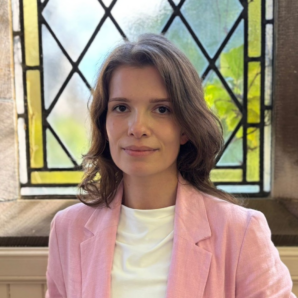
mgr Zuzanna Nalepa
PhD candidate, Section of Ethnology
Room: 2.14
Phone:
E-mail: zuznal@amu.edu.pl
Office hours:
- Tangible and intangible cultural heritage
- Post-industrial anthropology
- Anthropology of memory and forgetting
- Anthropology of identity
- Economic anthropology
- Anthropology and climate change
- Sound studies, acoustics
- Nalepa, Z. (2022). Soundscape’owy rozwspin. LUD 106, s. 381-385. Online: https://apcz.umk.pl/LUD/article/view/41151.
- Nalepa, Z. (2024). Recenzja wystawy „Kolmar – piękno chodzieskiej porcelany z lat 1939-1945”. Zbiór Wiadomości do Antropologii Muzealnej, T. 11, nr 11, s. 433–440. DOI 10.12775/ZWAM.2024.11.26.
2020
Research Project: Community Archaeology in Rural Environments – Meeting Societal Challenges (JPICH.DH.17.035) under The Joint Programming Initiative on Cultural Heritage (JPICH) in Changing Environments Program.
- Project leader: Prof. Dr. Arkadiusz Marciniak
- Type of project: international
- Participation in the project as a performer of qualitative and quantitative research, working on the analysis of the collected materials
2019-2020
Research project: UAM Students Without Borders
- Project coordinator: Marta Wawrzyniak, MA
- VI edition: Madagascar, Kenya
- Type of project: international
- Task: the Scientific Circle of International Education operating at the Department of Pedeutology of the Faculty of Educational Studies at UAM
Participation in the project in organizational activities, which included: selection of the destination of the VI edition of the educational and research project, distribution and performance of activities related to the organization of the educational and research trip, creation of educational activities for children and adolescents, work on the research project planned to be carried out in Kenya
2018-2019
Research project: UAM Students Without Borders
- Project coordinator: Marta Wawrzyniak, MA
- 5th edition: Madagascar
- Type of project: international
- Task: the Scientific Circle of International Education operating at the Department of Pedeutology of the Faculty of Educational Studies at UAM
Participation in the project in organizational and executive activities, which included: selecting the destination of the 5th edition of the educational-research project, establishing cooperation with the Foundation “Ankisy Gasy – Children of Madagascar”, planning and carrying out promotional activities of the project, distributing and carrying out activities related to the organization of the educational-research trip, creating and carrying out educational activities for children and adolescents (at FJKM Ambohidratrimo schools, Ambotomasina Elementary School and Saint Joseph Collage, at Akany Avoko Faravohitra Home for Girls), conducting scientific research for the project “Dreams of children and adolescents in Madagascar”
Conferences:
2025 – Presentation: Industrial-ceramic heritage of the city of Chodzież (Poland), The 17th International SIEF Congress: Unwriting, Aberdeen, 3-6.06.2025, International Society for Ethnology and Folklore oraz Elphinstone Institute for Ethnology, Folklore, and Ethnomusicology
2024 – Presentation: Memory, nostalgia, local identity. Memory landscapes of former porcelain factory workers, 3rd International Interdisciplinary Conference “Memory, Melancholy and Nostalgia”, online, 5.12.2024, InMind Support: Conferences, Seminars, Workshops
2024 – Presentation: Przestrzenie postindustrialne w Chodzieży, Miasto, online, 16.11.2024, Ośrodek Badawczy Facta Ficta, Katedra Porównawczych Studiów Cywilizacji UJ, Instytut Językoznawstwa i Literaturoznawstwa Uniwersytetu w Siedlcach
2024 – Presentation: Miasto postporcelanowe. Upadek chodzieskiej fabryki porcelany oczami byłych pracowników w perspektywie praktyki mikrohistorii, Między rewolucją a katastrofą. Jak z wyzwaniami współczesności radzą sobie badania antropologiczne?, Toruń, 19-22.09.2024, Polskie Towarzystwo Ludoznawcze
2024 – Presentation: Porcelain factory in Chodziez, Poland, European Industrial Heritage Summer School: Shaping Sustainability in Industrial Heritage, Berlin, 13.08.2024, Hochschule für Technik und Wirtschaft Berlin, European Route of Industrial Heritage, Berliner Zentrum Industriekultur
2024 – Presentation: Audial (un)awareness of residents of the Ostrow Tumski district in Poznan, Poland, Doing and Undoing with Anthropology, wystąpienie na panelu P194, online, 18.06.2024, European Association of Social Anthropologists
2024 – Presentation: Porcelanowi ludzie – porcelanowe miasto. Transformacje sytuacji społeczno-ekonomicznej pracowników fabryki porcelany w Chodzieży, Seminaria Naukowe Instytutu Antropologii i Etnologii UAM, Poznań, 7.05.2024, Instytut Antropologii i Etnologii UAM
2023 – Presentation: Zmiany klimatyczne w perspektywie wybranych koncepcji z zakresu studiów nad dźwiękiem, Ogólnopolski Kongres Klimatyczny, online, 25.02.2023, Center for American Studies, Center for European Studies
2023 – Presentation: Voluntourism in an Aid Center for Girls in Antananarivo, Madagascar, 3rd International Interdisciplinary Conference “Travelling, Transmission and Transgression”, online, 16-17.02.2023, InMind Support: Conferences, Seminars, Workshops
2022 – Presentation: Dźwiękowe reprezentacje antropocenu na przykładzie dzielnicy Ostrów Tumski w Poznaniu w perspektywie antropologii dźwięku i eko-akustyki, Antropocen i rola uniwersystetów w jego kształtowaniu, Poznań, 19-22.05.2022, Studenckie Koło Naukowe Etnologów im. Bronisława Piłsudskiego (SKNE) przy Instytucie Antropologii i Etnologii UAM, Koło Naukowe Osób Studiujących Socjologię (KNOSS) przy Wydziale Socjologii UAM
2022 – Presentation: The Impact of Human Activity on the Soundscape of Nature in the Perspective of Anthropology of Sound and Eco-acoustics, 7th International Animal Futures Conference, online/Tallin, 6-7.05.2022, Loomus, Estonian Vegan Society
2021 – Presentation: Natura a mitologia w twórczości zespołu Wardruna na przykładzie trylogii Runaljod, XII Zjazd Studentów Muzykologii, online/Opole, 19-20.05.2021, Katedra Muzykologii Uniwersytetu Opolskiego
Guest lectures and event organisation:
2025 –„Dzień Kobiet i Dzień Chłopaka”, Polskie Radio 24, 8.03.2025.
2020 – Presentation: Salama Madagasikara, Poznań, 11.03.2020, Studenckie Koło Naukowe Etnologów im. Bronisława Piłsudskiego (SKNE), Instytut Antropologii i Etnologii UAM
2020 – event organisation, EtnoWiaraGada: Od badacza migracji do wsparcia dla cudzoziemców, Studenckie Koło Naukowe Etnologów im. Bronisława Piłsudskiego (SKNE), Instytut Antropologii i Etnologii UAM UAM
2020 – event organisation, EtnoWiaraGada: Toubab w Senegalu, Poznań, 8.01.2020, Studenckie Koło Naukowe Etnologów im. Bronisława Piłsudskiego (SKNE), Instytut Antropologii i Etnologii UAM
2019 – workshop, Madagaskar – tak daleko, a jednak blisko w ramach projektu Studenci UAM Bez Granic – spotkajmy się, Liceum Ogólnokształcące w Wolsztynie, 16.11.2019, Koło Naukowe Edukacji Międzykulturowej (KNEM)
2019 –workshop, Granice (nie) istnieją w ramach projektu Studenci UAM Bez Granic – spotkajmy się, Zespół Szkół im. Józefa Wybickiego w Ratajach, 15.11.2019, Koło Naukowe Edukacji Międzykulturowej (KNEM)
2019 – festival organisation, Festiwal edukacyjno-podróżniczy Bez Granic, Poznań, 8-10.2019, Studenckie Koło Naukowe Etnologów im. Bronisława Piłsudskiego (SKNE), Instytut Antropologii i Etnologii UAM, Koło Naukowe Edukacji Międzykulturowej (KNEM)
Membership
European Association of Social Anthropologists
Polish Ethnological Society
Studenckie Koło Naukowe Etnologów im. Bronisława Piłsudskiego (SKNE)
Koło Naukowe Edukacji Międzykulturowej (KNEM)
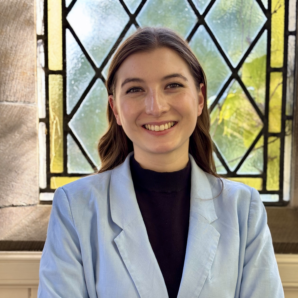
mgr Zuzanna Majerowicz
PhD candidate, Section of Ethnology
Room: 2.14
Phone:
E-mail: zuzanna.majerowicz@amu.edu.pl
Office hours:
- anthropology of music and dance folklore (mainly Wielkopolska region in Poland)
- local and regional identity
- management, organization and dissemination of regional culture
- research on folk clothing
Majerowicz, Z. (2024). Pochód Smolorzy w Chojnie na Chazach – reaktywacja!. Panorama Wielkopolskiej Kultury, nr 3 (139)/2024.
Majerowicz, Z. (2024). Pamiątka z dawnych czasów i powód do dumy, czyli postrzeganie tradycyjnego stroju chazackiego przez członków zespołów regionalnych. Literatura Ludowa. Journal of Folklore and Popular Culture, 68(1-2), 133–149.
Majerowicz, Z. (2023). Taniec, muzyka, śpiew – 45 lat Regionalnego Zespołu „Chojnioki”. Przegląd Wielkopolski. Kultura, Historia, Ekorozwój, Turystyka, nr. 37, 2 (140), s. 80-83.
Majerowicz, Z. (2023) „Wisieloki” i „Chojnioki” – aktywność kulturowa mieszkańców Chazów, „Dziedzictwo Kulturowe Wsi”, t. 6, s. 107-113.
Majerowicz, Z. (2022) Kosmiczny skansen, „Lud” t. 106, s. 392-396.
2024 Wyjazd badawczy do Chorwacji w terminie 28.08.2024-10.09.2024, finansowany z konkursu ID-UB nr 144 „Badania doktoranckie – badania oraz szkolenia i warsztaty międzynarodowe”. Własny projekt badawczy pt. Management of traditional music and dance culture in Croatia.
2024-2025 Udział w projekcie „Niematerialne dziedzictwo Poznania” – projekt naukowo-badawczy Poznańskiego Centrum Dziedzictwa i Polskiego Towarzystwa Ludoznawczego. Wykonanie metryczki z opisem zjawiska Tradycje dudziarskie w Poznaniu.
2024-2025 Udział w projekcie „Region Kozła – Żywa tradycja w Wielkopolsce” – projekt naukowo-badawczy Muzeum Narodowego Rolnictwa i Przemysłu Rolno-Spożywczego w Szreniawie.
2022-2023 Postrzeganie tradycyjnego stroju chazackiego przez członków zespołów regionalnych na terenie mikroregionu etnograficznego Chazy w południowej Wielkopolsce (własny projekt badawczy realizowany w ramach projektu Study@Research Inicjatywa Doskonałości – Uczelnia Badawcza (ID-UB)
2022-2023 Chazy – żywa tradycja w Wielkopolsce (uczestnictwo w charakterze wykonawcy w projekcie naukowym realizowanym przez Muzeum Narodowe Rolnictwa i Przemysłu Rolno-Spożywczego w Szreniawie pod kierownictwem dra Arkadiusza Jełowickiego- prowadzenie badań terenowych na obszarze regionu etnograficznego Chazy)
Conferences
2025 Presentation: Wielkopolskie dudziarstwo w ujęciu lokalnym i regionalnym.
- Conference: „Historia, współczesność i przyszłość tradycji dudziarskich w Wielkopolsce”.
- Date and place: Poznań, 07.06.2025 r.
- Organisers: Wojewódzka Biblioteka Publiczna i Centrum Animacji Kultury w Poznaniu, Muzeum Narodowe Rolnictwa i Przemysłu Rolno-Spożywczego w Szreniawie.
2025 Presentation: Traditional Music and Dance Folklore in Greater Poland. The Perspective of City and Countryside Residents
- Conference: 17. Międzynarodowy Kongres SIEF: „Unwriting”
- Date and place: Aberdeen, Szkocja, 3–6 czerwca 2025
- Organisers: International Society for Ethnology and Folklore (SIEF) oraz Elphinstone Institute for Ethnology, Folklore, and Ethnomusicology
2024 Presentation: Granice administracyjne, a regiony etnograficzne we wschodniej Wielkopolsce – funkcjonowanie zespołów folklorystycznych w powiecie kolskim.
- Conference: Obecne nieobecne. Granice fantomowe w polskiej literaturze i kulturze (XIX-XXI wiek).
- Time and place: Kalisz, 28-29.10.2024 r.
- Organizers: Uniwersytet im. Adama Mickiewicza w Poznaniu,Wydział Pedagogiczno-Artystyczny w Kaliszu Zakład Nauk o Edukacji Zakład Studiów Polonistycznych i Komunikacji Medialnej.
2024 Presentation: „Proces integracji społeczności lokalnej na rzecz wpisania tradycji kulturowych Chazów/Hazów na Krajową Listę Niematerialnego Dziedzictwa Kulturowego”.
- Conference: Meandry dziedzictwa kulturowego w Polsce. Dziedzictwo akceptowane, adoptowane, negocjowane i dysonansowe.
- Date and place: Poznań, 26.10.2024 r.
- Organizers: Wydział Kultury Urzędu Miasta Poznania Towarzystwo Bambrów Poznańskich, Urząd Miasta Poznania Instytut Archeologii i Etnologii PAN w Poznaniu Instytut Antropologii i Etnologii UAM.
2024 Presentation: „Nie jest tak jak u górali, że to żyje” – postrzeganie stanu funkcjonowania współczesnego folkloru muzycznego i tanecznego w Wielkopolsce.
- Conference: Między rewolucją a katastrofą. Jak z wyzwaniami współczesności radzą sobie badania antropologiczne?
- Date and place: Toruń, 22.09.2024 r.
- Organizers: Zarząd Główny Polskiego Towarzystwa Ludoznawczego, Oddział Polskiego Towarzystwa Ludoznawczego w Toruniu, Muzeum Etnograficzne im. Marii Znamierowskiej-Prüfferowej w Toruniu, Uniwersytet im. Mikołaja Kopernika w Toruniu, Wydział Humanistyczny.
2024 Presentation: Implementing the idea of regional education in Chazy.
- Conference: Anthropology and education.
- Date and place: Londyn 25-28.06.2024.
- Organizers: Royal Anthropology Institute.
2024 Presentation: Stan funkcjonowania wielkopolskiego folkloru muzycznego i tanecznego. Wstępne refleksje z badań pilotażowych.
- Conference: Słowianie, my lubim… muzykę.
- Date and place: Poznań 07.06.2024.
- Organizers: Koło Naukowe Slawistów i Bałkanistów UAM
2024 Presentation: Haft chazacki – wzory na czepki i filiżanki
- Conference: Ludowość i folklor w popkulturze
- Date and place: Kraków 27.04.2024
- Organizers: Filmoznawcze Koło Naukowe AGH, Kulturoznawcze Koło Naukowe AGH i Koło Naukowe Mage’s Tea działające na Wydziale Humanistycznym AGH
2023 Presentation: Wielkopolskie hafty. Problematyka inspiracji, rekonstrukcji i konserwacji na przykładzie działalności wybranych zespołów ludowych
- Conference: Hafty i wyszycia ludowe. Źródła, inspiracje, adaptacje
- Date and place: Toruń 30.06-01.07.2023
- Organizers: Sekcja Stroju Ludowego przy ZG PTL, Oddział Polskiego Towarzystwa Ludoznawczego w Toruniu, Muzeum Etnograficzne im. Marii Znamierowskiej-Prüfferowej w Toruniu
2023 Presentation: Postrzeganie tradycyjnego stroju chazackiego przez członków zespołów regionalnych na terenie mikroregionu etnograficznego Chazy w południowej Wielkopolsce- wyniki badań i przebieg projektu S@R
- Conference: Antropologiczno-socjologiczne doświadczenia badawcze
- Date and place: Poznań, 12.05.2023
- Organizers: Studenckie Koło Naukowe Etnologów UAM, Koło Naukowe Osób Studiujących Socjologię
2022 Presentation: Strój chazacki jako przejaw kultury tradycyjnej wśród zespołów regionalnych na terenie mikroregionu etnograficznego Chazy
- Conference: Kultura tradycyjna jako doświadczenie i wyzwanie badawcze
- Date and place: Bytom, 22.09-25.09.2022.
- Organizers: Zarząd Główny Polskiego Towarzystwa Ludoznawcze, Oddział Polskiego Towarzystwa Ludoznawczego w Bytomiu, Muzeum Górnośląskie w Bytomiu
2022 Presentation: Chazacki strój ludowy i działania na rzecz jego upamiętnienia wśród zespołów regionalnych na terenie mikroregionu etnograficznego w południowej Wielkopolsce
- Conference: Pamięć o stroju – strój w pamięci. Badania nad ubiorem z perspektywy memory studies
- Date and place: Wilamowice, 30.06-01.07.2022
- Organizers: Sekcja Stroju Ludowego przy ZG PTL, Oddział Polskiego Towarzystwa Ludoznawczego w Warszawie, Stowarzyszenie Wilamowianie
Guest lectures:
2025 Zwyczaje bożonarodzeniowe w Wielkopolsce na wernisażu wystawy „Obrzędy ludowe- opowieść graficzna o duchach przodków”, Poznań 08.01.2025.
2023 Co o Chazach mówią źródła etnograficzne? podczas promocji publikacji Chazy/Hazy – żywa tradycja w Wielkopolsce, Rawicz 14.12.2023
2023 Mela, frelka i gideja- obraz wielkopolskich kobiet w kulturze ludowej na wernisażu wystawy „Kobieta w wielkopolskiej kulturze tradycyjnej”, Poznań 08.03.2023.
Membership:
- Polish Ethnological Society
- Folk ensemble „Wielkopolanie” z Poznania
- „Co sie to porobi” Association
- Folk Ensemble „Wrocław” (2019–2021)
- Folk ensemble „Chojnioki” z Chojna

dr Katarzyna Byłów
Post-Doc, CeBaM
Room:
Phone:
E-mail:
Office hours:
- migrations and adaptive processes that accompany migration among refugees, economic migrants, people returning home after migration and repatriates
- impact of migration on the educational experience, outcomes and trajectories of children and young people
- education in the context of cultural diversity, inclusion of national and ethnic minorities, migrants, refugees, repatriates and expats in education related programs, policies and activities.
Chapter:
(2015) Byłów-Antkowiak, K. „Droga umysłu we współczesnym szkolnictwie tybetańskim na uchodźstwie”. In T. Buliński & M. Rakoczy (eds) Communicare: Almanach Antropologiczny, Warszawa: Wydawnictwa Uniwersytetu Warszawskiego
- Good beginnings, promising futures. Children with migration backgrounds in polish schools led by Professor Elżbieta Goździak, (3.10.2022-2.10.2026), funded through: NCN, OPUS programme, postdoctoral researcher
- Grant title: Second person issues in contemplative life – (zhe sa) polite talk, (), (tsemo) teasing and debating dyads in a Tibetan Buddhist non-monastic educational setting, Mind and Life Francisco J. Varela Research Award (Europe), Grant # 2015-EVarela-Bylow-Antkowiak, (2016 – 2018), grant holder -researcher
Conference papers:
- (2017) Karmic Metaphysics in Tibetan Buddhist Upbringing and Early-Years Pedagogy, Mind and Life Summer Research Institute, June 2017, Garrison, New York;
- (2016) UNICEF on the Campus: Perspectives Talk (St Andrews, September 2016)
- (2015) Tibetan Buddhist dialectical debate in lay educational practice, Mind & Life European Summer Research Institute, August 2015, Fraueninsel, Germany
- (2015) Making History Through Bodies in a Tibetan Children Village in India: Leadership, Authority and Legitimation in South Asia, November 20-21, 2015, CRASSH, University of Cambridge.
- (2014) ‘Riglam’ – Teaching Tibetan Buddhist Dialectics to refugee children in a Tibetan Children Village in India; October 30, 2014, Centre for the Study of Religion and Politics, School of Divinity, University of St Andrews.
Documents:
- Daughters of Dolma (2013), feature-length documentary. Director: Adam Miklos, Fieldwork supervisor: Katarzyna Byłów
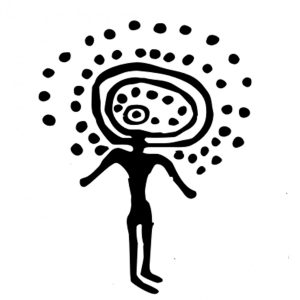
mgr Ewa Tracz
PhD Candidate, Section of Cultural Anthropology
Room: 2.13
Phone:
E-mail: ewa.tracz@amu.edu.pl
Office hours:

dr Justyna Matkowska
postdoctoral researcher, Section of Social Anthropology
Room:
Phone:
E-mail:
Office hours:
Peer-Reviewed Journals Articles
“Representations of Romani women in the contemporary Polish and Romani Literature.” Critical Romani Studies Journal: Roma LGBTI, Feminist Movement, and Scholarship. vol. 4 (1): 56-73. (2021) ISSN 2560-3019. (Link)
“Matka Natura w poezji romskiej” (Mother Nature in Romani poetry). Studia Romologica, vol. 13: 125-141. (2020) ISSN 1689-4758. (Link)
“Romowie górscy jako społeczność wielokulturowa karpackiego pogranicza” (The Roma as a multicultural community of the Carpathian borderland). Góry-Literatura-Kultura, vol. 11: 305-316. (2018). DOI: 10.19195/2084-4107.11.20. ISSN 2084-4107. (Link)
With Kwadrans, Lukasz: “Wsparcie instytucjonalne uczniów pochodzenia romskiego w kontekście podttrzymywania tożsamości etnicznej” (Institutional support for Roma students in the context of maintaining the ethnic identity). Edukacja międzykulturowa, vol. 2 (7): 155-164. (2017) DOI: 10.15804/em.2017.02.10. ISSN 2299-4106. (Link).
“Wizerunek kobiety romskiej w twórczości literackiej Karola Parno Gierlińskiego” (The image of a Romani woman in the literary works of Karol Parno Gierliński). Studia Romologica, vol. 10: 149-164. (2017) ISSN 1689-4758. (Link)
“The comparative cultural study of the Roma community and Bohemians. Prolegomena”, Culture and education, vol. 4 (118): 138-150, (2017) DOI: 10.15804/kie.2017.04.10. ISSN 1230-266X. (Link)
Peer-Reviewed Book Chapters
With Bodziany Marek: “Upamiętnienie martyrologii Romów i Sinti w Niemieckim Nazistowskim Obozie Pracy i Obozie Zagłady w Treblince”. In Treblinka ostrzega i przypomina! edited by Edward Kopówka, 43-56, Siedlce-Warsaw: Museum Treblinka Press 2022. ISBN 978-83-953645-8-7.
With Bodziany, Marek. “Digitalization of material culture resources and its impact on the participation of Poles in “cyberculture” during Covid-19 pandemic “. In Research and Innovation Forum 2021: Managing Continuity, Innovation, and Change in the Post-Covid World: Technology, Politics, and Society, edited by Anna Visvizi and Orlando Troisi, Kawther Saeedi, 207-218. Springer International Publishing 2021. Hardcover ISBN 978-3-030-84310-6, eBook ISBN 978-3-030-84311-3. (Link)
“Roma Resistance in occupied Poland”. In Re-thinking Roma Resistance throughout history: recounting stories of strength and bravery, edited by Jekatyerina Dunajeva and Anna Mirga-Kruszelnicka, 145-168. Berlin: European Roma Institute for Arts and Culture, 2020. ISBN 978-3-9822573-0-3. (Link)
Current:
Alienation and “Othering” of Roma and Muslims in the nation-state financed by the National Science Center (Poland) – OPUS-19.
Past:
01/09/2021 – 30/04/2022: Fred and Maria Devinki Memorial Fellow, Mandel Center for Advanced Holocaust Studies, United States Holocaust Memorial Museum, Project: Roma and Sinti Resistance in Auschwitz-Birkenau
01/02/2020 – 01/07/2020: Visiting research fellow: “Roma in European Societies”, Romani Studies Program, Central European University, Hungary, Project: “Images of Romani Women in Contemporary Polish and Romani Literary Texts”
20/02/2020 – 31/12/2020: Expert researcher: “Re-Thinking Roma Resistance” in the project, European Roma Institute for Arts and Culture, Germany. Project was funded by Stiftung Erinnerung, Verantwortung und Zukunft.
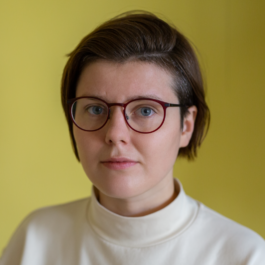
mgr Yuliia Andriichuk
PhD Candidate, Department of Social Anthropology
Room: 2.14
Phone:
E-mail: yuliia.andriichuk@amu.edu.pl
Office hours:
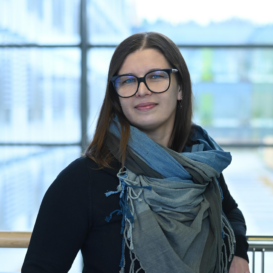
mgr Aleksandra Dzik
PhD Candidate, Department of Social Anthropology
Room: 2.13
Phone: 61 829 13 71
E-mail: aleksandra.dzik@amu.edu.pl
Office hours:
Wednesday 12:00-13:00
Thursday 13:00-14:00
- Dzik, A. (2018). Recycled patterns. Using the design of folk towels from the Bielsk Podlaski area. In: A. W. Brzezińska, S. Kucharska (red.), Creators / Makers / Processors. Around the issues of regional design (s. 145-155). Kalisz: District Museum of the Kalisz Land in Kalisz. https://issuu.com/mozkk/docs/monografia_www
- Dzik, A., Kotlarska, I., Lichota, J., Machowska M., Rudnicka, M., Zalewski, P. (2014). Oskar Kolberg’s achievements as national and European heritage. In: Twórczość ludowa, nr R. XXIX (77)2014, Nr 3-4, s. 16-18. Lublin: Folk Artists Association.
- Towards sustainability. Challenges and experiences of climate crisis in the Bangladeshi Ready Made Garment and textile industry from an anthropological perspective. Project Investigator of the project no. 2024/53/N/HS3/02495 funded by NCN Prelude-23 (2025 – 2028).
- Between patriarchy and emancipation. An anthropological look at practices of resistance among female workers in the fast fashion industry. BestResearchGrant funded by ID-UB Initiative of Excellence – Research University, Adam Mickiewicz University (2024).
- Being Yōgya Karmī. An anthropological analysis of neo-colonial valuing processes from the perspective of Bangladeshi garment factory workers. Project and dissertation research carried out at the Doctoral School of Humanities, AMU (2021 – 2026).
- Atlas of the Intangible Cultural Heritage of Greater Poland Village, National Museum of Agriculture and Agri-Food in Szreniawa (2021).
- Muradyny, Siwki, Żandary – living tradition in Greater Poland, National Museum of Agriculture and Agri-Food in Szreniawa, Ministry of Culture and National Heritage (2018).
- Museum Education. Analysis of the phenomenon on the basis of the activities of the Museum in Bielsk Podlaski, research among the inhabitants of Podlasie for the master’s thesis (2018).
- Let’s meet on a bench, Podlaskie Museum in Bialystok, Adam Mickiewicz University in Poznan, A Pushkin University in Brest, Ministry of Culture and National Heritage (2017).
- Digital Archive of Joseph Burszta – digitization of archives and their publication on the Internet, Institute of Anthropology and Ethnology of the Adam Mickiewicz University, Ministry of Culture and National Heritage (2014).
Membership in scientific associations:
- AMU Research Centre for Energy and Environmental Challenges (since 2024)
- European Association of Social Anthropologists EASA (since 2024)
- Committee on Asian Studies of the Polish Academy of Sciences (since 2022)
- Polish Ethnological Society (since 2021)
Additional roles performed:
- Affiliated visiting PhD Student Researcher of the Department of Anthropology at the Dhaka University (2024 – 2028)
- Chairperson of the Doctoral Student Council in the DSoH AMU (2024/2025)
- Deputy chairperson in the DSoH’s Doctoral Student Council (term 2023/2024)
- Deputy chairman of the Section of Environmental Anthropology and Interspecies Ethnography at the Polish Ethnological Society (since 2023)
- Deputy treasurer and member of the board of directors in the Poznan branch of the Polish Ethnological Society (term 2023 – 2027)
- Representative of DSoH Doctoral Students in the Council of the School of Humanities at Adam Mickiewicz University (2022 – 2024)
- Member of the Doctoral Council of the Doctoral School of Humanities, Adam Mickiewicz University in Poznań (2022 – 2025)
- Representative of Doctoral Students in the recruitment council of the Anthropology and Cultural Studies Faculty (2022/2023, 2023/2024)
- Member of the Organising Committee of the International Anthropological Scientific Conference EASA2026 (2024 – 2026)
Prizes and Awards:
26.04.2023 1st prize in the “Roots and Wings” competition for the best master’s thesis on the culture and heritage of rural areas in Poland. Organizer: National Institute of Culture and Rural Heritage, Warsaw, Poland. The competition was organized under the patronage of the Minister of Agriculture and Rural Development, the Minister of Culture and National Heritage, the Minister of Education and Science, and the Polish Committee for UNESCO.
Research stays at home and abroad:
15.05-10.10.2025 Research trip – Dhaka, Bangladesh. Collaboration with the Department of Anthropology at the Dhaka University. Trip conducted as part of a project entitled „Towards sustainability. Challenges and experiences of climate crisis in the Bangladeshi Ready Made Garment and textile industry from an anthropological perspective” No. 2024/53/N/HS3/02495 funded by NCN Preludium-23.
15.08-15.11.2024 Research trip – Dhaka, Bangladesh. The trip co-funded by the Department of Anthropology and Cultural Studies at Adam Mickiewicz University.
16-29.02.2024 A research stay in Dhaka, Bangladesh. 5 month project and research trip funded by ID-UB Adam Mickiewicz University in the Best Research Grant competition (037). Hosting Organization: University of Dhaka, Department of Anthropology
15.06-16.07.2023 Research Internship in Dhaka, Bangladesh. Hosting Organization: Bangladesh Nari Progati Sangha. Internship funded by the project “UNIVERSITY OF TOMORROW II – integrated development program of Adam Mickiewicz University in Poznań”, No. POWR.03.05.00-00-Z303/18.
Lectures and Conference Presentations:
- “Precarious future of the younger generation. Bangladeshi youth’s experience in the labor market” at the 18th EASA Biennial Conference EASA2024: “Doing and Undoing with Anthropology” – international conference. Organizer: European Association of Social Anthropologists, University of Barcelona (2024).
- “Colonialism of the Mind. A critical analysis of the fashion industry and the narratives around it” – guest lecture in the Institute of Anthropology and Ethnology at Adam Mickiewicz University in Poznan (2024).
- “Sustainability vs. Responsibility. Anthropological view at garment industry workers in Bangladesh” at The 12th Asia-Pacific International Conference: “Towards the Indo-Pacific: new strategies and patterns of international cooperation and exchange”. Organizer: Wroclaw University of Economics and Business, Asia-Pacific Research Centre (2023).
- “Daily life in Bangladesh. Reporters’ sensationalist language versus ethnographic images. Reflections from the research field” at a “Sensory Anthropology. The senses as an object of study and a research tool” – national scientific conference. Organizer: Polich Ethnological Society (2023).
- “Creating consumer values and attitudes in the Fast Fashion industry” at a “Development of the humanities and social sciences. Views of young scientists”- national scientific conference of young scientists. Organizer: organization and project associating doctoral students doktorant.com.pl (2023).
- “The clothing revolution – paths to a sustainable and responsible fashion industry” – guest lecture in the Institute of Anthropology and Ethnology at Adam Mickiewicz University in Poznan (2023).
- “Anthropological analysis of fashion industry and Fashion Studies as an examples of contemporary colonization” at a “Ethnology Without Borders” – international convention of students of Ethnology and Cultural Anthropology. Organizer: University o Silesia, Cieszyn (2022).
- “Regional education as a form of university involvement in creating ecological social attitudes” at a nationwide intercollegiate scientific conference: “The Anthropocene and the role of the university in its shaping”. Organizer: Students’ Scientific Association of Ethnologists at the Institute of Anthropology and Ethnology, Adam Mickiewicz University, Poznan (2022).
Additional activity:
- 2024-2026 Co-organisation of the EASA2026 international scientific conference.
- 03-12.2024 Organisation of the international interdisciplinary SDNH Winter School in Gultovy – Winter School: ‘Lessons from the Past, Solutions for the Future. Humanities in the Face of Global Crises” (03-07.12.2024).
- Od 2022 Antropo_logiczna maintaining a social media account dedicated to the dissemination and promotion of scientific and research knowledge in the field of anthropology and ethnology.
- 2021 – 05.2022 The Anthropocene and the role of universities in shaping it. Co-organisation of a scientific conference.
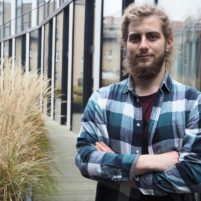
mgr Hubert Tubacki
PhD Candidate, Department of Social Anthropology
Room: 2.14
Phone:
E-mail: hubert.tubacki@amu.edu.pl
Office hours:
Tubacki H. 2016. Biskupiańskość wobec inwestycji energetycznej. W: Biskupizna. Ziemia, tradycja, tożsamość. Red. A. Brzezińska, M. Machowska. Krobia. 95-114.
Alienowanie i urasawianie Romów i muzułmanów w państwie narodowym (NCN/2020/37/B/HS3/01675)
2021 –
Modele przejścia na neutralną dla klimatu gospodarkę o obiegu zamkniętym dla rejonów górniczych w transformacji
2021 –
Świat się zmienił tu i teraz! (EG2020/A/32)
2020 – 2021
Świat się zmienia – a my z nim! (EG2019/A/24)
2019 – 2020
Świat się zmienia – a co z nami? (EG2018/A/13)
2018 – 2019
Na Biskupiźnie działamy razem
2015 – 2016
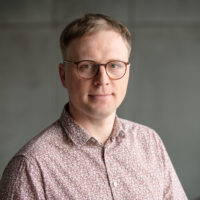
dr Robert Rydzewski
Assistant Professor, Department of Cultural Anthropology
Room:
Phone:
E-mail: robert.rydzewski@amu.edu.pl
Office hours:
Wednesday, 10:30-11:30
[with Izabela Wagner] Harming by Interviewing? Methodological and Ethical Dilemmas of In-deep Interviews with people on the move, Population Place and Space, 2025 (forthcoming).
Book Review: Spaghetti With Ajvar. Translocal Everyday Life of Muslims in Macedonia and in Italy, Warsaw, Warsaw University Press, 2015, 273 Pages.” EthnoAnthropoZoom/ЕтноАнтропоЗум 24 (24), 236-34. 2024
Sojusze promigracyjne – współpraca ruchów oddolnych z państwem [Pro-migrant Alliances – Cooperation Between Grassroots Movements and the State]. trzeci sektor 2024.
The Balkan Route. Hope, Migration and Europeanisation in Liminal Spaces, Routledge, 2024.
Sojusze promigracyjne – trzyletnia lekcja współpracy [Pro-migrant Alliances – A Three-Year Lesson in Cooperation], NGO.pl, 2023.
Crafting Activists from Tourists: Volunteer Engagement During the “Refugee Crisis”. In: Intersections of Tourism, Migration, and Exile, (Eds.): Natalia Bloch, Kathleen Adams, Routledge 2023.
O wzajemnych potrzebach – próba dekolonizacji aktywizmu [On Mutual Needs – An Attempt at Decolonizing Activism], Czas Kultury, 2022.
Understanding the Albanians’ Return to North Macedonia, Ethnologia Balkanica, 2022.
Unia tu nie pomoże. Na granicy z Białorusią PiS realizuje jej politykę [The EU Won’t Help Here – At the Belarus Border, PiS Is Implementing Its Policy], Krytyka Polityczna, September 24, 2021.
Hope, Waiting, and Mobility Migrant Movement in Serbia After The EU-Turkey Deal, movements. Journal for Critical Migration and Border Regime Studies, 2020
Mobilność w czasach zamkniętych granic – notatki z badań terenowych w Serbii [Mobility in Times of Closed Borders – Fieldwork Notes from Serbia], Prace Etnograficzne, 2019.
Rozczarowanie niespełnionymi obietnicami – dorastanie w prowincjonalnym macedońskim mieście [Disappointment with Unfulfilled Promises – Growing Up in a Provincial Macedonian Town], Prace Etnograficzne, 2019.
Wysyłacie na nas helikoptery, psy, żołnierzy, o co wam chodzi [You Send Helicopters, Dogs, Soldiers at Us – What Do You Want?] Krytyka Polityczna, 4 Marzec, 2017
Ethnic gentrification. The silent fight for a Macedonian city. EthnoAnthropoZoomm, 14, p. 9 – 35, 2015.
Sprzedawcy na poznańskich bazarach, [in:] Migracje a heterogeniczność kulturowa. Na podstawie badań antropologicznych w Poznaniu, (eds.) M. Buchowski, J. Schmidt, Poznań: Wydawnictwo Nauka i Innowacje p. 102-116. 2012
The list of current publications is available at:
https://amu.academia.edu/RobertRydzewski
Transformacja miast post-jugosłowańskich. Antropologiczne studium przypadku Tetowa w Macedonii (FYROM)
Aktywni migranci na lokalnym rynku pracy. Projekt współpracy polsko-niemieckiej (AMIGA)
Cudzoziemcy w Polsce. Heterogeniczność kulturowa ośrodków wielkomiejskich na przykładzie Poznania
- Coordinator of the CREOLE Master’s Program in Cultural Differences and Transnational Processes
- Member of Center for Migration Studies, Adam Mickiewicz University
Scholarships:
- Centre for South-East European Studies, University of Graz, Austria
Postdoctoral Fellowship – 09/2021 – 09/2022 - WIRTH Institute, University of Alberta, Edmonton, Canada
Doctoral Fellowship – 09/2018 – 09/2019 - Institute of European Ethnology, Humboldt University of Berlin, Germany
Doctoral Fellowship – 09/2017 – 03/2018 - Central European University, Budapest, Hungary
Doctoral Fellowship – 01/2015 – 07/2015
Awards and Distinctions:
- UAM Rector’s Scholarship, 2023
- Main Prize of Zofia Sokolewicz Award granted by the Polish Ethnological Society for the best doctoral dissertation in the field of ethnology for the years 2018–2020, 2021.
- Honorable Mention for the radio report “Guide to Crossing Borders” at the 21st Jacek Stwora Festival organized by Polish Radio, 2015.
- Main Prize of Paweł Edmund Strzelecki Award granted by the Emigration Museum in Gdynia and the Kolosy Festival for the short documentary film “Święty M.”, 2014.
- Honorable Mention for the radio documentary “For Now, I Wait” in the radio competition “Qualifications on the Wave” organized by the Institute of Educational Research, 2013.
Media
- Fiasko twierdzy Europa. „Przepuszczamy uprzywilejowanych, blokujemy niemile widzianych” OKO.PRES [INTERVIEW]
- Selected Radio Reports:
– Ja się tam przydam, 2012
– Przewodnik przekraczania granic, 2015
– Za dwie głowy na trzy lata, 2015
– Wolontariusze dla uchodźców, 2016
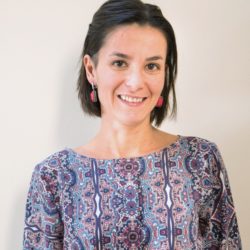
mgr Elżbieta Wiejaczka
PhD Candidate, Department of Social Anthropology
Room:
Phone:
E-mail: elzbieta.wiejaczka@amu.edu.pl
Office hours:

mgr Michał Sita
PhD Candidate, Department of Social Anthropology
Room: 2.14
Phone:
E-mail: michal.sita@amu.edu.pl
Office hours:
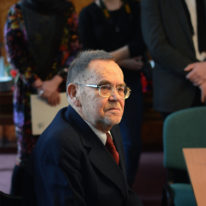
prof. Bogusław Linette
Professor Emeritus, Department of Ethnology
Room: 2.26
Phone:
E-mail:
Office hours:
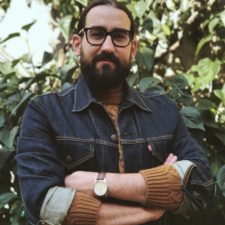
dr Mikołaj Smykowski
Assistant Professor, Section of Cultural Anthropology
Room: 2.33
Phone:
E-mail: mikolaj.smykowski@amu.edu.pl
Office hours:
Wednesday, 10:45-12:15
Thursday, 10:45-12:15
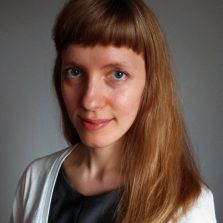
mgr Ewelina Wojdak
PhD Candidate, Department of Cultural Anthropology
Room: 2.13
Phone: 608 791 352
E-mail: ewel.wojdak@gmail.com
Office hours:
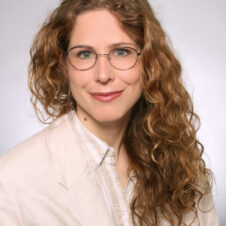
dr Hannah Wadle
Assistant Professor, Section of Social Anthropology
Room: 2.31
Phone: 61 829 13 83
E-mail: hanwad@amu.edu.pl
Office hours:
Monday, 11:00-12:00
I earned my PhD in Social Anthropology at the University of Manchester in 2014 with a thesis on tourism encounters, identities and moral communities in the Masurian Lake District, Northeast Poland (Title: ‘The Moral work of Tourismship. Ethnographic Tales of Late Post-Socialism from the Masurian Lake District). I am also a trained Historian.
Publications from my doctoral research concern among others how rural hosts in Masuria deal with growing inequality in domestic tourism and how Western tourists imagine the rural “East”. I discuss local interplays between social and cultural fictions of self and other.
Another aspect of my research are socialist and post-socialist histories of manor houses in former East Prussia: I explore paradigms of (re-)construction, reflect on architectural imaginaries and the social performance of castles, dwell on questions around regimes of ownership and the politics of development. My work on manor houses in late post-socialism contributes to the anthropology of architecture and imagination.
I have further been engaging with sailing cultures and the shifting paradigms of sailing education and “the sailor” in Poland, especially in the Masurian Lake District. My interest with this concerns inter- and intra-generational moral debates in times of commercialization and individualization. I am also looking at cultures of sociality, at questions of elitism, transgression, democracy and citizenship.
In our edited volume “Eden für jeden. Sehnsuchtsorte in Mittel-und Osteuropa von 1945 bis zur Gegenwart”, Historian dr. Bianca Hoenig and I introduce the notion of Sehnsuchtsorte/ Places of Longing. Drawing on our research about tourism mobilities and historical ruptures in Central and Eastern Europe, we propose Sehnsuchtsorte as a new, productive thinking tool for unpacking the complex emotional and geo-political relations between people and places. The book argues for the subversive potential of tourism Sehnsucht, for its capacity to host alternative histories and visions of the future. Since working on this publication, I have become interested in longing and places of longing also in a broader anthropological context, an area that I am currently furthering.
I have published short introductory pieces about virtual reality, sketching and comics in anthropology, and collaborative ethnography.
My work as anthropologist includes creative practice, cultural activism, journalism, writing facilitation and policy advice. I am the initiator and current director of the palace festival STN:ORT and carry out applied projects via my initiative FairerTales.
I have carried out field research in the Masurian Lake District and in Manchester.
Articles and Book Chapters
(Forthcoming 2019) Sailing in Transformation – Ethno-graphic Dialogue (with Jerzy Tyszko). Anthropological Notebooks: Special Issue „Dwelling-on-water“, ed. by Benjamin Bowles, Maarja Kaaristo, and Natasa Rogelja.
(Forthcoming 2019) Die alte „Zęza“: Vom masurischen Mekka für Segler zur raubeinigen Ressource für Tourismuskritik. In: Bianca Hoenig/ Hannah Wadle (ed.): Eden für jeden? Touristische Sehnsuchtsorte in Mittel- und Osteuropa von 1945 bis zur Gegenwart, Göttingen: Vandenhoeck & Ruprecht.
(Forthcoming 2019, with Bianca Hoenig) Einleitung: Über Molwanien nach Eden. Sehnsuchtsorte im östlichen Europa“. In: Bianca Hoenig/ Hannah Wadle (ed.): Eden für jeden? Touristische Sehnsuchtsorte in Mittel- und Osteuropa vom Zweiten Weltkrieg bis zur Gegenwart, Göttingen: Vandenhoeck & Ruprecht.
(Forthcoming 2019) Pałac-in-progress. Re-imagining Landed Estates in Post-East-Prussia, Post-Socialist Tourism Landscapes of Northeast Poland. In Maria Gravari-Barbas/ Nelson Graburn/ François Staszak (ed.): Tourism Fictions, Simulacra and Virtualities. Spatialities of tourism in an era of complexity, London: Routledge.
(With P. Schabe, 2017) Schloss Steinort (Sztynort) – Geschichte und Erhaltung. In: Guido Hinterkeuser/ Klaus-Henning von Krosigk/ Peter Schabe (ed.): Kulturerbe verpflichtet. Zehn Jahre Deutsch-Polnische Stiftung Kulturpflege und Denkmalschutz (2007-207), Berlin: Lukas Verlag.
(2016) Encountering Tourism in the Masurian Lake District: Locating the Moral Self in the New Rural Poland. In: Journal for Tourism and Cultural Change, Special Issue: “Tourism in Postsocialist Central and Eastern Europe”, ed. by Magdalena Banaszkiewicz/ Nelson Graburn.
(2016) Towards an Anthropology of Virtual and Augmented Realities. Social Anthropology/ Anthropologie Sociale 24(3), 376-378. As part of: Re-Thinking Anthropology: Part Three. Early Career Scholars Forum, (pp. 353-79). Ed. by: Francisco Martínez, with contributions by Mariya Ivancheva, Valerio Simoni, Martin Demant Frederiksen, Livia Jiménez, Laura Hirvi, Kacper Pobłocki, Lili Di Puppo, Damián-Omar Martínez, Perry Sherouse, Alessandro Testa, Ana Gutiérrez, Maria Theresia Starzmann, Hannah Wadle and Vita Peacock.
(with M. Verschaeve) (2014) Tourism and Post-Socialist Heterotopias: Eastern Europe as an Imagined Rural Past. In: Tourism and the Power of Otherness. Seductions of Difference. Ed. by David Picard and Michael Di Giovine, pp. 74-94.
(2012) Von Fragmenten der Ortsintimität zu einem Konzept des performativen deutsch-polnischen Kulturerbes. Ethnographische Nahaufnahmen von Schloss Sztynort/Steinort. In: Paul Zalewski/ Joanna Drejer (ed.): Deutsch-Polnisches Kulturerbe und die Zivilgesellschaft im heutigen Polen, Warsaw: Wydawnictwo Naukowe Scholar, pp. 142-159.
Edited Book
(Ed., with B. Hoenig) (Forthcoming 2019). Eden für jeden? Touristische Sehnsuchtsorte in Mittel- und Osteuropa vom Zweiten Weltkrieg bis zur Gegenwart. Göttingen: Vandehoeck & Ruprecht.
Ethnofiction Book
(Forthcoming) With Jerzy Tyszko. Przemiany w jeziornym królestwie Neptuna. Ilustrowany dziennik ekspedycji żeglarskiej po szlaku Wielkich Jezior Mazurskich. (Transformations in the Lake Kingdom of Neptune. Illustrated Diary of a Sailing Cruise on the Path of the Great Mazurian Lakes). Wydawnictwo Almapress (tbc.)
Academic Blog Entries
(2017) I swear I saw this (Michael Taussig, 2011): A review by Hannah Wadle. In: Centre for Imaginative Ethnography (ed. Dara Culhane/ Cristina Moretti), URL : http://imaginativeethnography.org/drawings/i-swear-i-saw-this-a-review-by-hannah-wadle/.
(2016) In One Boat with Komandor Tyszko: Comics, Collaboration, Place-Making, and Knowledge Exchange on the Theme of Postsocialist Transformations of Polish Sailing Tourism. In: Imaginings project. Comics and Ethnography. Blog ed. by Stacey Leigh Piggs and Cristina Moretti, Centre for Imaginative Ethnography. URL: http://imaginativeethnography.org/imaginings/comics/
(2012) Anthropology Goes Comics. In: Comics Forum, academic blog about research on comics. URL: http://comicsforum.org/2012/02/03/anthropology-goes-comics-by-hannah-wadle/
Policy Reports & Strategy Papers
(2018) Festival Project Report: Learning from Stn:ort 2018: Experiences, Insights, Goals. FairerTales/ Deutsch-Polnische Stiftung Kulturpflege Denkmalschutz. 49 Pages. URL: http://stnort.org/wp-content/uploads/2018/12/Report_Stnort_2018_eng.pdf
(2018) “Experiences and Challenges of Aged 50+ Polish Expats in Greater Manchester. Doświadczenia i wyzwania dla Polskich rezydentów po 50-tym rokiem życiu w Greater Manchester.” Policy Research Report based on a collaborative qualitative research project. Ambition for Ageing/ Europia, Manchester. 133 pages.
(2016) Strengthening a Liminal Community. Anthropological Framework for Rethinking University Support Strategies for Early Career Researchers. AHRC-funded Ethnographic Project Report with Strategic Recommendations for the University of Manchester. 28 pages. URL: https://ecrmcr2016.files.wordpress.com/2016/10/strengthening_a_liminal_community_ecr_report_hannah_wadle.pdf
Experiences and Challenges of Aged 50+ Polish Expats in Manchester, Project funded by Ambition for Ageing and Europia Manchester, Project Lead with three Research Assistants (2018)
Witold Pilecki in Lida and Krupowo, Belarus, Project commissioned by author/journalist Jack Fairweather, Regional Research Coordinator and Relationship Manager (2016-2018)
Kronikarz naszych Marzeń – Pałac w Sztynorcie 1947-2017. Oral history and Newspaper Archive Research, TU Dresden, FairerTales, Individual Research Project (2016-2017)
Rethinking University Support Strategies for Early Career Researchers in the UK, AHRC funded project, Individual Research Project (2016)
Tourism, Transformation, and Identity in the Masurian Lake District, funded by German Academic Exchange Service (DAAD), Schroubek-Fond östl. Europa, Deutsches Polen Institut Darmstadt, Doctoral Research (2010-2014)
The Renaissance of the German-Polish Border Region, Co-Funded by German-Polish Youth Association, German Project Coordinator (2009-2010) with Uniwersytet Szczeciński
Memberships to professional organisations
- European Association of Social Anthropologists
- International Union of Anthropological and Ethnological Studies
- Centre for Imaginative Ethnography
Links
- https://amu.academia.edu/HannahWadle
- www.fairertales.org
- www.stnort.org
- www.sehnsuchtsorte.wordpress.org
- www.ecrmcr2016.wordpress.org
- www.iamnotmuchtallerthanashrimp.wordpress.org

mgr Alexandra Staniewska
PhD Candidate, Department of Theory and Methodology of Anthropology
Room: 2.14
Phone: 61 829 13 71/61 829 13 72
E-mail: alesta@amu.edu.pl
Office hours:
- physical anthropology
- bio- and necropolitics
- death and dead bodies studies
- exhumations
- politics of memory
- forensic genetics
Staniewska A., Domańska E. (red.), Ekshumacje polityczne: teoria i praktyka [Political exhumations: theory and practice], Gdańsk–Lubin: słowo/obraz terytoria, Muzeum Historyczne w Lubinie 2023.
Staniewska A., Domańska E., Ekshumacje polityczne jako zjawisko społeczne i wielodziedzinowe pole badań [Political exhumations as a social phenomenon and a multidisciplinary field of research], w: A. Staniewska, E. Domańska (red.), Ekshumacje polityczne: teoria i praktyka, s. 13–61, Gdańsk–Lubin: słowo/obraz terytoria, Muzeum Historyczne w Lubinie 2023.
Pérez-Ramallo P., Lorenzo-Lizalde J. I., Staniewska A. Aiestaran M., Aguirre J., Semas Sesma J., Marzo S., Lucas M., Ilgner J., Chivall D., Higham T., Rodríguez-Varela R., Götherström A., Etxeberria F., Grandal-d’Anglade A., Alexander M., Roberts P., To the field of stars: Stable isotope analysis of medieval pilgrims and populations along the Camino de Santiago in Navarre and Aragon, Spain, „Journal of Archaeological Science: Reports” vol. 48: 2023, 103847, https://www.sciencedirect.com/science/article/pii/S2352409X23000226.
Phillips C., de la Puente M., Ruiz-Ramirez J., Staniewska A., Ambroa-Conde A., Freire-Aradas A., Mosquera-Miguel A., Rodriguez A., Lareu M. V., Eurasiaplex-2: Shifting the focus to SNPs with high population specificity increases the power of forensic ancestry marker sets, „Forensic Science International: Genetics” vol. 61: 2022, 102780, https://www.sciencedirect.com/science/article/pii/S1872497322001211.
Pérez-Ramallo P., Lorenzo-Lizalde J. I., Staniewska A., Lopez B., Alexander M., Marzo S., Lucas M., Ilgner J., Chivall D., Grandal-d´Anglade A., Roberts P., Stable isotope analysis and differences in diet and social status in northern Medieval Christian Spain (9th-13th centuries CE), „Journal of Archaeological Science: Reports” vol. 41: 2022, 103325, https://www.sciencedirect.com/science/article/abs/pii/S2352409X2100537X.
Staniewska A., Ekshumacje polityczne. Przypadek ofiar wojny domowej w Hiszpanii (1936–1939) [Political exhumations. The case of the victims of the Spanish Civil War (1936-1939)], „Historyka. Studia Metodologiczne” t. 51: 2021, s. 201–222, https://journals.pan.pl/Content/121533/PDF/2021-HSRK-10-Staniewska.pdf.
Staniewska A., Ekshumacje jako rytuały nacjonalistyczne [Exhumations as nationalist rituals], „Etnologia” 2017, http://www.etnologia.pl/europa/teksty/ekhumacje-jako-rytualy-nacjonalistyczne.php.
Staniewska A., Bose Antki [Barefoot Antki], w: N. Bloch (red.), Wszyscy jesteśmy migrantami. (Od)zyskiwanie pamięci migracyjnej [We are all migrants. (Re)gaining a migratory memory], s. 189-197, Poznań: Centrum Kultury Zamek we współpracy z IEiAK UAM oraz CeBaM UAM 2016, https://ckzamek.pl/media/files/Wszyscy_jestesmy_migrantami_EXZ4kcL.pdf.

mgr Elżbieta Sanou
PhD Candidate, Department of Ethnology
Room: 2.13/2.14
Phone: 61 829 13 71/61 829 13 72
E-mail: elzsta@amu.edu.pl
Office hours:
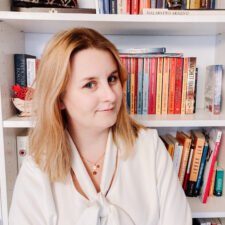
mgr Ewelina Ebertowska
PhD Candidate, Department of Cultural Anthropology
Room: 2.13/2.14
Phone: 61 829 13 71/61 829 13 72
E-mail: ewelina.ebertowska@amu.edu.pl
Office hours:

dr hab. Zbigniew Szmyt
Assistant Professor, Section of Cultural Anthropology
Room: 2.32
Phone: 61 829 13 84
E-mail: szmytz@amu.edu.pl
Office hours:
Monday, 14:00-15:00
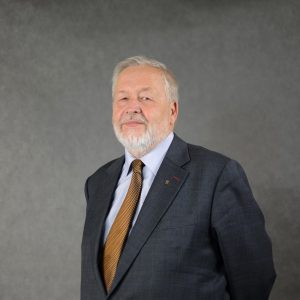
prof. dr hab. Ryszard Vorbrich
Professor emeritus, Department of Ethnology
Room: 2.10
Phone: 61 829 13 68
E-mail: vorbrich@amu.edu.pl
Office hours:
African studies: traditional African cultures, ethnic and social structure, ethnic and social processes, development and cultural change, tribal and post-tribal societies.
Africans in Poland and Europe: new types of identities
Berber Studies (Amazighe): ethnogenesis (endo- and exonyms), social structure, empowerment of Berber culture and language.
Islamic culture: Muslims in Europe, Polish-Lithuanian Tatars.
Political anthropology: chefdom, “early” states, tribalism and detritalisation, politicalization of politics.
Economic anthropology: tribal and peasant economic systems.
Development anthropology: development industry and “indigenous” conceptualizations of development, culture/cultures and perspectives of rationality.
Visual anthropology: cultural competences versus visual competences, photography as a text, ethnographic film.
The main areas of field research: Benin, Belarus, Burkina Faso, Cameroon, France Ivory Coast, Lithuania, Mali, Morocco, Poland, Senegal
“Sorghum Wealth ” versus “Money Wealth,” or the Hybrid Nature of Post-tribal Economies, “Hemispheres. Studies on Cultures and Societies”, vol. 28 (2013), s. 5-14 [ISSN 0239-8818]
Film etnograficzny – od wizualnej prezentacji do wizualnego dialogu, (w:) D. Skotarczak (red.), Okno na przeszłość. Szkice z historii wizualnej, Wydawnictwo Poznańskie 2015, s.247-263 [ISBN 978-83-7976-258-3]
Bierny beneficjent versus lokalny partner projektów rozwojowych w Afryce, w: W. Cisło, J. Różański, M. Ząbek (red.), Bilad as-Sudan – dziedzictwo przeszłości, Pelplin: Instytut Dialogu Kultury i Religii WT UKSW 2015, s. 231 – 256 [ ISBN 978-83-65224-90-3]
„Plemię obywatelskie” a monarchia szaryfijska. Instytucjonalizacja i etatyzacja rozwoju we współczesnym Maroku, w: Komunikowanie w Afryce. Endo- i egzogeniczne aspekty. Etniczność-kultura-religia, red. Arkadiusz Żukowski, Forum Politologiczne t. 18, Olsztyn: Instytut Nauk Politycznych UWM, 2015, s. 29-52, [ISBN 978-83-89559-60-9]
Perspektywa antropologiczna w badaniach nad rozwojem (w kontekście projektów rozwojowych) [w] Tożsamość i efektywność:: w poszukiwaniu mechanizmów zrównoważonego rozwoju, red. Katarzyna Jarecka-Stepien i Aleksander Surdej, Toruń 2016, wyd. Adam Marszałek, s. 47-68,[ISBN: 978-83-8019-542-4
Trzy wymiary organizacji społeczno-politycznej Nuerów, (red. W. Cisło, J. Różański, M. Ząbek) , Sudan wojna, polityka, uchodźcy, Pelplin, Wydawnictwo Bernardinum, 2016, s. 185-200 [ISBN 978-83-7823-832-4]
Afrykanie – charakterystyka społeczno-kulturowa w kontekście imigracji do Polski, [w:] Społeczno-kulturowa identyfikacja cudzoziemców. Projekty szkoleniowe. Red. J. Schmidt, D. Niedźwiedzki, Poznań: Wydawnictwo Naukowe UAM, 2016, s. 489-564 [ISBN 978-83-232-3069-4]
Berberowie – charakterystyka społeczno-kulturowa w kontekście imigracji do Polski, [w:] Społeczno-kulturowa identyfikacja cudzoziemców. Projekty szkoleniowe. Red. J. Schmidt, D. Niedźwiedzki, Poznań: Wydawnictwo Naukowe UAM, 2016, s. 565-602 [ISBN 978-83-232-3069-4]
Afrykanie i ich obecność w Europie „Studia migracyjne”, . 2 (164)/2017, s. 95–119 [ ISSN: 2081-4488]
Ziomkostwo – grupa pierwszego wyboru w przestrzeni rozwoju. Na przykładzie organizacji pozarządowych w Mali, (w:) L. Buchalik, J. Różański, Ex Africa semter aliquid novi, t. IV, Kraków-Żory 2017 (Polskie Towarzystwo Afrykanistyczne, Muzeum w Żorach, s. 38-54 [ISBN 978-83-948294-1-4]
Saqaliba. Słowianie w średniowiecznym Maroku, (w:) B. NDiaye, I. A. NDiaye (red.) Afryka – Europa Śwodkowo-Wschodnia. Historia relacji, stan badań i perspektywy rozwoju, Olsztyn: UWM, 2017,11-24 [IS BN 978-83-65171-69-6]
Land and the envinment versus customary and statute laws. Environmental and political pressures on the Daba of northen Cameroon, (w:) W. Cisło, J. Różański, M. Ząbek, “Collecta Sudanica”, Fuguil-Warsaw 2017, s 31-50 [ISBN 978-83-8127-003-8]
Afrykanie we Francji jako podmiot i przedmiot badań. Czyli jak kultura i procesy adaptacyjne emigrantów kształtują wizje świata emigrantów i antropologów, w: A. Żukowski (red.), „Afryka i świat a problem migrantów i uchodźców”, Olsztyn: UWM, 2017, s. 111-132 [ISBN 978-83-89559-97-5]
Kamerun północny – laboratorium polskiej afrykanistyki antropologicznej (w:) W. Cisło, J. Różański, M. Ząbek (red.), Bilad as-Sudan. Polska a strefa Sudanu, Peplin: Berbendinum 2017, s. 91-124 [ISBN 978-83-8127-035-9]
A passive beneficiary versus a local partner of development projects. Conceptualization and adaptation strategies in the field of development cooperation among African local communities. (Comparative study) (2010-2013)
Socio-cultural identification of foreigners (2013-2016)
Saqaliba. In the footsteps of Slavs in the Maghreb (2016)
Amazighe – land from the Bible and Hollywood (research and educational project) (2016-2017)
Metisées from Senegal as an example of trans-racial and trans-cultural society (2016-2020)

prof. dr hab. Aleksander Posern-Zieliński
Professor Emeritus, Department of Ethnology
Room: 2.26
Phone: 61 829 13 78
E-mail: alpoz@amu.edu.pl
Office hours:
Ph.D., Dr. habil., fellow of the Polish Academy of Sciences, professor emeritus of anthropology, born in 1943 in the Lower Silesian village of Dąbrowa Górna (Ober Dammer), near town of Lubin. He studied ethnography at the Adam Mickiewicz University in Poznan, especially Latin American issues, under the supervision of professor Maria Frankowska, the founder of Polish Americanistic studies. After graduation in 1965, he worked at the Institute for the Western Affairs and then started his doctorate studies, completed in 1974 at the same university. In 1982 he got the higher doctorate (Doctor Habilitatus) at the Institute of Archaeology and Ethnology (one of the research center of the Polish Academy of Sciences) in Warsaw. He worked for this institution for many years as a researcher and at the same time for the Poznań university as an academic teacher. In 1992 he achieved the highest academic rank in Poland – the title of State professor, awarded by the President.
He mastered his anthropological competences in Spain, Germany, Russia, but mostly in the U.S.A, where he was twice affiliated with the University of Minnesota (as a grantee of Kosciusko Foundation and Fulbright Foundation), and with University of Chicago (as a grantee of American Council of Learned Societies. In 2007 he was elected to the Polish Academy of Sciences (PAN), and in 2010 he also became the fellow of the Polish Academy of Art and Sciences (PAU). In the period between 1993-2007 he served as a chairman of the Department of Ethnology and Cultural Anthropology at the University of Poznan. After his retirement in 2013, is still active in the life of academia and functions at the university as a professor emeritus. He has promoted 15 doctors, published a couple of books as author and editor, as well as many articles and chapters. He has been for several years the chairman of the Committee of Ethnological Sciences, at the Polish Academy of Sciences (the highest official representation of anthropologists and ethnologists in the country).
His research interest embraces a few different fields: ethnicity and migration studies (including Polish diaspora), history of ethnology and anthropology (Polish experiences mostly), and the main area – Latin American studies (studies of native peoples of the Andes). He carried out field works in the United States, Kazakhstan, Peru, Bolivia, Ecuador and Chile. He was decorated with the Golden Cross of Merit (2014), and Gold Medal for Long-standing Service (2011). His more detailed academic biography and list of research achievements has been presented in a jubilee volume (Ethnos and Potentia) published in 2013, as well as in the documentary movie released in 2015 as part of the cycle “Outstanding University People” .
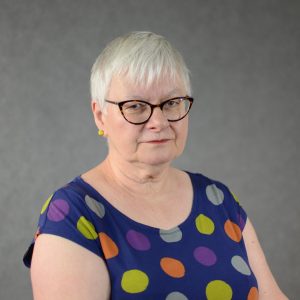
prof. Elżbieta M. Goździak
Visiting Professor, Center for Migration Studies
Room: 2.34
Phone: 61 829 1386
E-mail: emg27@amu.edu.pl
Office hours:
Migration studies: forced migration and political refugees, immigrant integration in North America and Europe, child and adolescent migrants, contested childhoods, Polish migration within Europe, migration of healthcare and social care workers, human trafficking;
Medical anthropology: refugee and migrant mental health, medicalization of human suffering, health disparities, refugees and migrants’ access to health care;
Methodological approaches: participatory action research, ethnographic interviews, focus groups, mobile and multi-sited ethnography, research ethics;
Applied anthropology: evaluation of migration policy and programs, monitoring and evaluation of programs for survivors of human trafficking;
EDITED BOOKS
- African Migration to Thailand. Race, Mobility, and Integration Routledge 2022. (Editor, with Supang Chantavanich)
- Europe and the Refugee Response: Crisis of Values? Routledge 2020. (Editor, with Izabella Main and Brigitte Suter)
- Children and Forced Migration: Durable Solutions during Transient Years. Palgrave. 2017. (Editor, with Marisa O. Ensor)
- Contested Childhoods: Growing Up in Migrancy. Springer Publishing. 2016. (Editor, with Marie Louise Seeberg)
- Migrant Children: At the Crossroads of Vulnerability and Resiliency. Palgrave: 2010 (Editor, with Marisa O. Ensor).
- Od gości do sąsiadów. Integracja cudzoziemców spoza Unii Europejskiej w Poznaniu w edukacji, na rynku pracy i w opiece zdrowotnej (From guests to neighbors. Integration of third-country nationals in the labor force, education, and health care in Poznan). Poznan: UAM Press: 2010 (Editor, with Natalia Bloch).
- Beyond the Gateway: Immigrants in a Changing America. Lexington Books: Lanham, MD 2005 (Editor, with Susan F. Martin)
SINGLE AUTHOR BOOKS
- International Migration. A quick Immersion. Tibidabo Publishing 2021.
- Human Trafficking as a New (In)Security Threat. Palgrave 2021.
- Trafficked Children and Youth in the United States: Reimagining Survivors. Rutgers University Press. 2016
- New Immigrants, Changing Communities. Best Practices for a Better America. Lexington Books: Lanham, MD 2008 (with Micah N. Bump).
SPECIAL ISSUES
- Palermo at 20: A Retrospective and Prospective. Special issue of The Journal of Human Trafficking. Volume 6. Issue 2 (Editor, with Kathleen M. Vogel).
- Polish Migration after the Fall of the Iron Curtain. Special issue of International Migration. 2015. Volume 52 Number 1 (Editor)
- Data and Research on Human Trafficking: A Global Survey. Special issue of International Migration 2005 43(1/2) (Editor, with Frank Laczko).
- Religion and Forced Migration. A Special Issue of the Journal of Refugee Studies. Volume 15 Number (Editor, with Dianna J. Shandy).
- Rethinking Refuge and Displacement. Selected Papers on Refugees and Immigrants 2000: VIII. American Anthropological Association, Washington, D.C. (Editor, with Dianna J. Shandy).
BOOK CHAPTERS
- European norms and values and the refugee crisis (with Izabella Main). In Elżbieta M. Goździak, Izabella Main, Brigitte Suter (eds.) Europe and the Refugee Response. A Crisis of Values? Routledge 2020.
- Concluding thoughts (with Brigitte Suter). In Elżbieta M. Goździak, Izabella main, Brigitte Suter (eds.) Europe and the Refugee Response. A Crisis of Values? Routledge 2020.
- Of Will or Force? Contesting Assumptions about Child Trafficking. In Marie Louise Seeberg and Elzbieta M. Gozdziak (eds.) Contested Childhoods: Growing Up in Migrancy. New York: Springer Publishing. 2016.
- Data Matters: Issues and Challenges for Research on Trafficking. In Molly Dragiewicz (ed.) Global Human Trafficking. Critical Issues and Contexts. London and New York: Routledge 2015.
- Dreams Deferred: The Effects of Undocumented Status on Latino Youths’ Education and Livelihoods. In Lois Lorentzen (Ed.) Hidden Lives and Human Rights in the United States: Understanding the Controversies and Tragedies of Undocumented Immigration. ABC-CLIO 2014.
- Empirical Vacuum: In Search of Research on Human Trafficking. In Rosemary Gartner and William McCarthy (eds.), The Oxford Handbook on Sex, Gender, and Crime. Oxford University Press: 2014.
- Global Trends, Local Outcomes: Globalization and the Foreign-Born Temporary Labor Force in the Shenandoah Valley Apple Industry. In David Griffith (Mis)managing Migration Guestworkers’ Experiences with North American Labor Markets. SAR Press: 2014 (with Micah N. Bump and B. Lindsay Lowell)
- Culturally Competent Responses to the Effects of Armed Conflict on the Well-Being of Refugee Women. In John Tirman and Susan Martin (Eds.), Women, Migration, and Conflict: Breaking a Deadly Circle. Springer 2009.
- Pray God and Keep Walking: Religion, Gender and Identity of Refugee Women. In Maroussia Hajdukowski-Ahmed and Nazilla Khanlou (eds.) Not Born a Refugee Woman. Reclaiming Identities: Challenges, Implications and Transformations in Research, Education, Policy and Creativity. Berghan Books 2008.
- Promising Practices for Immigrant Integration. In Elżbieta M Goździak and Susan F. Martin (Eds.) Beyond the Gateway: Immigrants in a Changing America. Lexington Books: Lanham, MD 2005. Pp. 241-276. (with Michael J. Melia)
- Challenges for the Future. In Elżbieta M Goździak and Susan F. Martin (Eds.) Beyond the Gateway: Immigrants in a Changing America. Lexington Books: Lanham, MD 2005. Pp. 277-285. (with Susan F. Martin).
- Illegal Europeans: Transients Between Two Societies. In David W. Haines and Karen Rosenblum (Editors). Undocumented migrants in the US. Westport, Connecticut: Greenwood Press 1999.
- Eastern Europeans. In David W. Haines (Editor). Case Studies in Diversity. Refugees in America in the 1990s. Westport, Connecticut: Praeger 1999.
- Eastern Europeans. In David W. Haines (Editor). Refugees in the 1990s: A Reference Handbook. Westport, Connecticut: Greenwood Press 1996.
PEER REVIEWED JOURNAL ARTICLES
- Goździak, E. (2025). The Role of Children’s Education in Family Decision-Making Strategies among Migrants in Poland. Studia Migracyjne – Przegląd Polonijny, 2025, 105-127. doi: https://doi.org/10.4467/25444972SMPP.25.007.21390
- Goździak, E. M., & Popyk, A. (2024). Navigating and negotiating borders in primary and secondary education: Ukrainian children in Polish schools. Human Organization, 83(3), 289–302. https://doi.org/10.1080/00187259.2024.2389522
- Sugay, L., & Goździak, E. M. (2024). Heritage language preservation among migrant children in Poznań and Wrocław: The emic and etic perspective. Glottodidactica, 51(2), 103–122. https://doi.org/10.14746/gl.2024.51.2.5
- “I am making good money, but…”: The precarious situation of Polish nurses in Norway. 2021. International Migration. Early View https://doi.org/10.1111/imig.12874 (with Izabella Main)
- From Going Abroad to Settling Down… While Remaining Mobile? Polish Women in Norway Narrate Their Migration Experiences. 2021. Nordic Journal of Migration Research 11(1): 50–64 (with Izabella Main and Leszek Nowak).
- Contesting flexible solidarity: Poland and the ‘migration crisis’ (with Izabella Main). Frontiers in Human Dynamics: Refugees and Conflict 2: Article 562682.
- Transnational Mobility and Social Remittances: The Case of Polish Women in Norway and Poland. 2020. Ethnologia Europea 50(1): 159-175 (with Izabella Main)
- Palermo at 20: A Retrospective and Prospective with Kathleen M. Vogel). 2020. Journal of Human Trafficking 6(2): 109-118.
- Low Hanging Fruit: How Domestic Minor Sex Trafficking Erased Foreign-born Victims of Child Trafficking from Anti-trafficking Efforts in the United States. 2020. Journal of Human Trafficking 6(2): 226-233.
- Multiple belongings: transnational mobility, social class, and gendered identities among Polish migrants in Norway. 2019. Social Identities, DOI: 10.1080/13504630.2019.1677458 (with Marek Pawlak)
- Paperless and Jobless: The Undocumented Status and Access to Employment among Latino Youth. 2019. Studia Migracyjne – Przegląd Polonijny, 2019 45(1):25-39. DOI 10.4467/25444972SMPP.19.001.10251
- Where the Wild Things Are: Fear of Islam and the Anti-Refugee Rhetoric in Hungary and in Poland. Central and Eastern European Migration Review. Published online: 21 June 2018, pp. 1–27. doi: 10.17467/ceemr.2018.04 (with Péter Márton)
- Theorizing Polish migration across Europe: Perspectives, concepts, and methodologies. 2016. Sprawy Narodowosciowe. Seria nowa (Nationalities Affiars. New Series). 48: 106–127 (with Marek Pawlak).
- Sukces czy porażka? O Polakach powracających “z zycia na ulicy” w Wielkiej Brytanii. Studia migracyjne 2(60): 97-118 (with Izabela Czerniejewska)
- Biała emigracja: Variegated Mobility of Polish Care Workers. 2016. Social Identities 22(1): 26-43.
- To Dream or Not to Dream. The Effects of Immigration Status, Discrimination, and Parental Influence on Latino Children’s Access to Education. Migration Studies 2(3): 392-414 November 2014
- Aiding defeated migrants.” International Migration 52(1): 87-99. January 2014 (with Izabela Czerniejewska)
- Misconceptions about human trafficking in a time of crisis. Forced Migration Review 45: 58-59. February 20014 (with Alissa Walter).
- Empirical Vacuum: In Search of Research on Human Trafficking.” In Rosemary Gartner and William McCarthy (eds.), The Oxford Handbook on Sex, Gender, and Crime, Oxford University Press 2014.
- Children trafficked to the United States: Myths and Realities,” Global Dialogue 14(2) Summer/Autumn 2012.
- Ten Obcy. Stosunek Wielkopolan do cudzoziemców. (The Other. Attitudes of the Wielkopolska Residents toward Foreigners), Przeglad Wielkopolski 2012 1(95): 17-28 (with Leszek Nowak).
- Challenges, Dilemmas and Opportunities in Studying Trafficked Children in the United States.” Course Reader eBooks. Belmont: Wadsworth Cengage Learning: 2012
- Identifying child victims of human trafficking: Toward solutions and resolutions.” Criminology and Public Policy 2010 9(2): 245-256.
- On Challenges, Dilemmas, and Opportunities in Studying Trafficked Children” The Anthropology Quarterly Fall 2008 81(4): 903-923.
- The Care of Unaccompanied Undocumented Children in Federal Custody: Issues and Options” Protecting Children 23 (1) January 2008 (with Micah N. Bump).
- Closing the Gaps: The Need to Improve Identification and Services to Child Victims of Trafficking.” Human Organization Summer 2007 66(2): 171-184 (with Margaret MacDonnell).
- Coming Home Whole. Reintegrating Uganda’s Child Soldiers,” Georgetown Journal of International Affairs Summer/Fall 2006:57-65 (with Lorea Russell).
- Training Refugee Mental Health Providers: Ethnography as a Bridge to Multicultural Practice. Human Organization 63(2): 203-210, Summer 2004.
- Introduction: The Role of Religion and Spirituality in Forced Migration (with Dianna J. Shandy). In Elzbieta M. Gozdziak and Dianna J. Shandy (Editors) Religion and Forced Migration. A Special Issue of the Journal of Refugee Studies. 2002. Volume 15 Number 2.
- Spiritual Emergency Room: The Role of Spirituality and Religion in the Resettlement of Kosovar Albanians. In Elzbieta M. Gozdziak and Dianna J. Shandy (Editors) Religion and Forced Migration. A Special Issue of the Journal of Refugee Studies. 2002. Volume 15 Number 2.
- Violence as a Political Instrument: An Anthropological and Public Health Perspective. Social Justice: Anthropology, Peace and Human Rights 2 (1-2): 1-23. Winter/Spring 2001.
- Rethinking Refuge and Displacement. Selected Papers on Refugees and Immigrants 2000: VIII. American Anthropological Association, Washington, D.C. (Editor, with Dianna J. Shandy).
- Operation Provide Refuge: The Challenges of Integrating Behavioral Science and Indigenous Approaches to Human Suffering. With John J. Tuskan, Jr.
- Teaching About Refugees and Immigrants: A Resource Guide for Educators. Refugee Reports Winter 1996.
- Needy Guests, Reluctant Hosts: The Plight of Rumanians in Poland. The Anthropology of East Europe Review, 13(1): 9-14.
- Cyganed [Gypped] Out Of Refuge: Rumanian Gypsies in Poland. In Jeffrey MacDonald and Amy Zaharlick (Editors) Selected Papers on Refugee Issues 1994: III,. American Anthropological Association, Washington, D.C. 1994.
- Elders in a New Land: What Providers Need To Know to Serve Older Refugees. The Aging Connection, April/May 1990, pp. 7-10.
- From East to East: Refugees from Rumania in Hungary. Migration World, No. 5, 1989, pp. 7-9.
- New Branches, Distant Roots: Older Refugees in America. Aging, 359, 1989, pp. 2-7.
OTHER PUBLICATIONS
- Using Fear of the “Other,” Orbán Reshapes Migration Policy in a Hungary Built on Cultural Diversity. 2019. Migration Information Source. October 10, 2019.
- Erasing Polish Anthropology? Anthropology News website, December 7, 2018. DOI: 10.1111/AN.1051 (with Izabella Main)
REPORTS AND EVALUATIONS
- In search of data and research on human trafficking: Analysis of research-based literature (2008-2014). Washington, DC. July 2015
- What kind of Welcome? Integration of Central American Children into local Communities. Report prepared for the J.M. Kaplan Fund. Washington, DC. February 2015.
- Data and Research on Human Trafficking: Bibliography of Research-Based Literature 2008-2014. Washington DC, February 2015
- Stop Girl Trafficking. An Evaluation of the AHF-RHEST Anti-Trafficking Project. Report prepared for Humanity United on an anti-trafficking project in Nepal. Washington, DC. 2014.
- Crossing Borders: Improving Protection for Asian Migrant Workers in Qatar. Evaluation Report of the Solidarity Center’s Anti-Trafficking Project prepared for the US Department of State. 2012.
- Evaluation of the Office of Child Labor, Forced Labor, and Human Trafficking Technical Cooperation Program: Report on the Site Visit to Cambodia. Report prepared for the US Department of Labor. Washington, DC 2010.
- Evaluation of the Office of Child Labor, Forced Labor, and Human Trafficking Technical Cooperation Program: Report on the Site Visit to Nepal. Report prepared for the US Department of Labor. Washington, DC 2010.
- The Role of Immigrant Care Workers in Aging Societies. Washington, DC 2009 (with Susan F. Martin, B. Lindsay Lowell, Micah Bump, and Mary Breeding).
- Data and Research on Human Trafficking: Bibliography of Research-based Literature. Report to NIJ. October 2008.
- Victims No Longer: Research on Child Survivors of Human Trafficking for Labor and Sexual Exploitation in the United States. Research report to the National Institute for Justice. Washington DC 2008 (with Micah N. Bump).
- Good beginnings, promising futures. Children with migration background in Polish schools. October 3, 2022-October 2, 2026. Funder: Narodowe Centrum Nauki.
- Norms and Values in the European Migration and Refugee Crisis (NoVaMigra). April 1, 2018-July 31, 2021. Funder: Horizon 2020.
- Migration for welfare: nurses within three regimes of immigration and integration into the Norwegian welfare state. January 1, 2016-December 31, 2019. Funder: Research Council of Norway.
- Mobile Lives, Immobile Realms? Female Mobility Between Poland and Norway. October 1, 2015-September 30, 2018. Funder: Polish National Science Foundation.
- Trafficking Survivors Return Home: An Exploratory Study. September 1, 2014-January 31, 2016. Funder: National Science Foundation.
- Facilitating Local Integration of Central American Unaccompanied Children and Adolescents. June 1-December 31, 2014. Funder: J.M. Kaplan Fund.
- Stop Girl Trafficking: Evaluation of an Anti-Trafficking Program in Nepal. May 1, 2013-December 31, 2013. Funder: Humanity United.
- After Rescue: Evaluation of Strategies to Stabilize and Integrate Adult Survivors of Human Trafficking into the United States. January1, 2013-December 31, 2014. Funder: National Institute for Justice (NIJ), US Department of Justice.
- Urban refugees in Malaysia. June 2013-December 2014. Funder: Georgetown University.
- Health Disparities and Children in Immigrant Families: Developing Research Agenda through Participatory Action Research with Immigrant Youth in Washington, DC. May 1, 2012-June 30, 2013. Funder: Georgetown University Initiative on Reducing Health Disparities
- Urban Refugees in Cairo and Amman. September 2010-August 2011. Funder: Bureau of Population, Refugees and Migration, US Department of State.
- Evaluation of Anti-trafficking Program in Qatar. October 2010-December 2012. Funder: J/TIP, US Department of State.
- Foreigners in Poznań. Immigrant Integration in the Education, Health Care and Labor Market. January 2010-September 2010. Funder: European Integration Fund.
- Undocumented Children. October 2009-January 2011. Funders: Barrow Cadbury Trust and The Carnegie Corporation of New York.
- Child Labor and Child Trafficking. Evaluation of the Office of Child Labor and Child Trafficking Activities in Cambodia and Nepal. October 2008-March 2011. Funder: US Department of Labor.
- The Role of Migrant Care Workers in Aging Societies. 2008-2009. Funder: Nuffield Foundation and The Atlantic Philanthropies.
- Constructing the “Other”: Cultural and Linguistic Representation of Polish Attitudes toward Foreigner. October 2008 and September 2009. Funder: Council for International Exchange of Scholars (CIES).
- Data and Research on Human Trafficking. June 1, 2007-May 31, 2008. Funder: National Institute of Justice (NIJ), US Department of Justice.
- Victims No Longer: Research on Child Survivors of Trafficking for Sexual and Labor Exploitation. September 1, 2006-August 31, 2007. Funder: National Institute of Justice (NIJ), US Department of Justice.
- Poultry, Apples, and New Immigrants in the Rural Communities of the Shenandoah Valley: An Ethnographic Case Study. August 1, 2003-July 31, 2006. Funder: US Department of Agriculture.
- New Immigrant Communities: Addressing Integration Challenges. September 1, 2001-August 31, 2003. Funder: Smith Richardson Foundation.
AWARDS AND HONORS
2017 Fulbright Senior Specialist (Slovenia, December 2018)
2017 Faculty Fellow, Center for Social Justice, Georgetown University
2016 George Soros Visiting Chair, Central European University, Budapest (Fall 2016)
2015 MISOCO Scholar (Teaching scholarship in Bilbao May 2015)
2015 Fulbright Senior Specialist grant (Thailand and Indonesia Summer 2015)
2011/12 Doyle Faculty Fellow 2011-2012
2008 Fulbright four-months research grant; Poland; November and May-July 2009.
2006 Fulbright Senior Specialist grant in Anthropology; Poland; Oct.–Nov. 2006
2006 Fellow, Bellagio Dialogue on Migration (June-July 2006)
2003 Special Recognition Award, Georgetown University
2000 US DHHS Secretary’s Award for Distinguished Service
1999-2002 Refugee Women’s Network, Advisory Council Member
1998-present Women’s Commission for Refugee Women and Children, Commissioner
1998 Certificate of Appreciation for Commitment and Support of the Office of Minority Health and its Mission to Improve the Health of Racial and Ethnic Minority Populations in the United States
1994-1998 Women’s Commission for Refugee Women and Children, Board Member
EDITORIAL ACTIVITIES
Associate Editor: Frontiers in Human Dynamics, Refugees and Conflict (2019-present)
Editor-in-Chief: International Migration (2004-2014)
Editorial Board: Central and Eastern European Migration Review; Lud; Przeglad Polonijny; Journal of Human Trafficking; Journal of Migration and Border Studies; Journal of Refugee Studies;
Manuscript Reviewer: Journal of Refugee Studies; Georgetown Journal of International Affairs, Medical Anthropology Quarterly, International Criminal Justice Review, Contemporary Social Science, Criminology & Public Policy, Lud, Studia Teologiczne.
Research Grants Reviewer: National Science Foundation; Polish National Science Foundation.
COMMITTEES
Georgetown University Institutional Review Board (IRB)—Vice-Chair (2010-2018)
PROFESSIONAL MEMBERSHIP
International Association for the Study of Forced Migration (IASFM), Board Member
American Anthropological Association (AAA), Member
Committee on Refugees and Immigrants (CORI), Executive Committee Member
Society for Urban, National, and Transnational Anthropology (SUNTA), Past Secretary and Contributing Editor
Society for the Anthropology of North America (SANA), Member
Society for Medical Anthropology (SMA), Member
Society for Applied Anthropology (SfAA), Fellow
STUDENT SUPERVISION
Doctoral dissertation committees
Anzhela Popyk, SWPS University of Social Sciences and Humanities, 2022
Ashvina Patel, Southern Methodist University, 2016-2017
Nihal Celik, Doctoral Dissertation, University of Maryland, College Park 2012
Marina A. Amat, Doctoral Dissertation, American University 2005
Sandra Crewe, Doctoral Dissertation, Howard University 1997
Master’s and student research committees
Madison Ashley, Kalorama Research, Georgetown University, 2015
Asif Majid, MA Honor Thesis, Georgetown University, 2014/2015
Joanna Foote, BA Honor Thesis, Georgetown University, 2012/2013
Claudia Gilmore, BA Honor Thesis, Georgetown University 2009
LANGUAGES: Bilingual in English and Polish. Fluent Russian. Beginning Spanish. Learning Korean.
SOCIAL MEDIA
https://www.elzbietagozdziak.com/
@EGozdziak

prof. UAM dr hab. Jacek Schmidt
Associate Professor, Section of Ethnology
Room: 2.15
Phone: 61 829 13 91
E-mail: jschmidt@amu.edu.pl
Office hours:
Tuesday, 08:30-09:30

prof. UAM dr hab. Adam Pomieciński
Associate Professor, Section of Cultural Anthropology
Room: 2.7
Phone: 61 829 13 65
E-mail: adpom@amu.edu.pl
Office hours:
Monday, 12:00-13:00
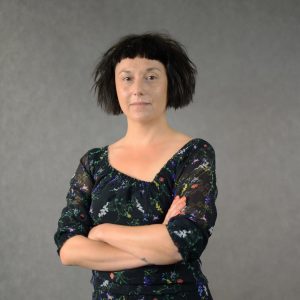
prof. UAM dra hab. Agata Stanisz
Associate Professor, Section of Social Anthropology
Room: 2.28
Phone: 61 829 13 80
E-mail: stanisz@amu.edu.pl
Office hours:
-
Dr Agata Stanisz received her Ph.D. in ethnology and cultural anthropology from Adam Mickiewicz University in Poznań, Poland. Currently she is an assistant professor in the Section of Contemporary Cultural Studies and a member of the Laboratory of Audiovisual Anthropology at the Institute of Ethnology and Cultural Anthropology, Adam Mickiewicz University in Poznań. She is a field researcher and fieldrecordist as well as a committed photographer, blogger and spokesperson for the idea of the Free Culture Movement.
Research Interests: anthropology of transport, road studies, multisite and mobile ethnography; de-visualizing research methods (anthropology of senses especially anthropology of sound); acoustemology and field recording (audioethnography); kinship studies; material culture; cyberanthropology; emotions and fieldwork; visual ethnography
Research Areas: Western Europe, Poland
Tractor unit acoustemology. Sounds of a dwelling on the road, “Mobile Culture Studies. The Journal” 2017, vol.3, pp. 53-76. DOI 10.25364/08.3:2017.1.4.
Ruchome modernizacje. Między Autostradą Wolności a “starą dwójką” [Mobile modernizations. Between Motorway of Freedom and „old two”], Warszawa: Książka i Prasa, 2017, ss. 436. [wspólnie z Waldemarem Kuligowskim]
Field recording jako metoda etnografii poprzez dźwięk [Field recording as method of sonic ethnography], “Przegląd Kulturoznawczy” 2017, nr 31(1). DOI: 10.4467/20843860PK.17.001.6930.
Mobilność mimochodem czyli przydrożne społeczności i strefy przepływu. Praktyczne zastosowanie „paradygmatu nowych mobilności” [Mobility by the Way or Roadside Societies and Zones of Flow. Practical Usage of the “Paradigm of New Mobilities”], “Zeszyty Naukowe Uniwersytetu Jagiellońskiego. Prace Etnograficzne” 2016, nr 43(3), s. 213–226. DOI 10.4467/22999558.PE.15.017.4877
Three square meters. About fieldwork on the road and experience of total intimacy, [w:] Cultures of Motorway. Localities through Mobility as an Anthropological Issue, Poznańskie Studia Etnologiczne, t. 19. Red. W. Kuligowski, A. Stanisz, Wielichowo: Wydawnictwo TIPI, 2016, pp. 47-68. [pdf]
Cultures of Motorway. Localities through Mobility as an Anthropological Issue, Poznańskie Studia Etnologiczne, t. 19. Red. W. Kuligowski, A. Stanisz, Wielichowo: Wydawnictwo TIPI, 2016, pp. 200. [pdf]
Regimes of logistics, pauses in the flow, stillness in (near) industrial non-places and mobility infrastructure, “Studia Humanistyczne AGH” 2015, vol. 14, no. 4, pp. 73-86.
DOI: http://dx.doi.org/10.7494/human.2015.14.4.73-86.
On the Road: Polish Modernization from the Perspective of the Anthropology of the Motorway, [w:]: Rethinking Ethnography in Central Europe. Red. H. Cervinkovam M. Buchowski, Z. Uherek Zdeněk, New York: Palgrave Macmillan, 2015, pp. 175-194 [wspólnie z Waldemarem Kuligowskim].
Rodzina made in Poland. Antropologia pokrewieństwa i życia rodzinnego [Family made in Poland. Anthropology of kinship and family life], Poznańskie Studia Etnologiczne nr 16, Poznań: Wydawnictwo Nauka i Innowacje, 2013. [pdf]
Ruchome miejsca i etnografia translokalności [Moving places and an ethnography of translocality], “Tematy z Szewskiej” 2012, nr 2(8), s. 7-18. [pdf]
Transport industry: between regimes of logistics and agency (since 2011). Website.
Moving modernizations. The Influence of the A2 Motorway on the Local Cultural Landscape (2014-2017). Website.
Józef Burszta Digital Achive – digitalization and sharing of archival materials (since 2014). Website.
Exhibition: 100 photographs on 100th birthday of prof. Józef Burszta (2014). Website.
Links
Antropofon: the first Polish anthropological podcast
City of Sounds: fieldrecordings and audioanthropology
Palimpsest maps: alternative maps of Poznan
Mobile modernizations: project and book
Sounds of Europe: field recordings, trucks and an anthropologist
Transportodrone: acoustemological fieldnotes
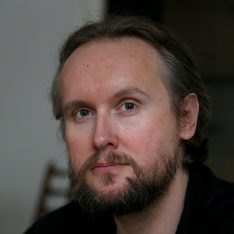
dr Jan Lorenz
Assistant Professor, Section of Social Anthropology
Room: 2.29/2.46
Phone: 61 829 13 81
E-mail: jan.lorenz@amu.edu.pl
Office hours:
Monday, 11:00-12:00
please contact beforehand
- religion
- ethics
- subjectivity and self-formation
- science, technology and society (artificial intelligence, robots and automatons),
- senses and materiality
- belonging and relatedness
- visual anthropology
- art
Publications
Lorenz, J. (2025). Metafizyczna obecność i pustka mechanicznego ciała. Android Kannon w świątyni rinzai zen. The Religious Studies Review, 295 (1), 77-96.
Lorenz, J. (2023). Kenkyū happyō. Kyūdai Tamaya Shōbei Kōenkai no Kaihō, 17, 2-3.
Lorenz, J. (2021). Tactics of Transformation: Self-formation and the Multiplicity of Authority in Polish Conversions to Judaism. In: M. Clarke, E. Morgan (eds.) Rules and Ethics: Global perspectives from anthropology and history (pp. 169-189). Manchester: Manchester University Press.
Lorenz, J. (2021). „The sound exists only in your own body”. Sensory approximation of visual and aural impairment in media art projects. Visual Anthropology, 34 (1), 35-53.
Lorenz, J. (2021). Being and Becoming. Polish Conversions to Judaism and the Dynamics of Affiliation. In: F. Guesnet, A. Polonsky, A. Rapoport-Albert & M. Wodziński (eds.) Polin: Studies in Polish Jewry Vol. 33: Jewish Religious Life in Poland since 1750 (pp. 425-437), Liverpool: Liverpool University Press.
Lorenz, J. (2018). Belief. In: J. Jackson (ed.) Oxford Bibliographies in Anthropology. New York: Oxford University Press. DOI: 10.1093/OBO/9780199766567-0190
Lorenz, J. (2016). Polish newcomers to Jewishness: A reflection in the wake of the revival. In: N. Fisher, T. Parfitt (eds.) Becoming Jewish: New Jews and Emerging Jewish Communities in a Globalized World (pp. 167-184). Newcastle upon Tyne: Cambridge Scholars Publishing.
Lorenz, J. (2016). Shades of closeness. Ontologies of belonging and becoming in a contemporary Jewish Community in Poland. In: M. Diemling, L. Ray (eds.) Boundaries, Identity and Belonging in Modern Judaism (pp. 63–75). Abingdon, Oxon: Routledge.
Lorenz, J. (2015). Counting as one. Moral encounters and criteria of affinity in Polish Jewish congregation. HAU: Journal of Ethnographic Theory 5(2), 51-81.
Lorenz J. (2011). Życie w miejscu śmierci. Muzeum/Obóz Stutthof w świetle doświadczenia I percepcji jego współczesnych mieszkańców. In Sztutowo czy Stutthof. In: Ł. Banaszek, M. Wosińska (eds.) Oswajanie krajobrazu kulturowego (pp. 173–187). Sztutowo: Muzeum Stutthof w Sztutowie.
Lorenz, J. (2007). Blizny od gwoździ. Haitański zombie jako idiom kulturowy i metafora traumy. Kultura i Społeczeństwo 51(4), 101–117.
Ethnographic films
Lorenz, J. (2023). Typhoon season. Adam Mickiewicz University.
Goldstein, P. & Lorenz, J. (2019). Active (citizen). Zentrum für Osteuropa- und internationale Studien.
- Award: Best Short Documentary, Capital Filmmakers Festival Berlin 2021
- Award: Best Environmental Film, Jahorina Film Festival 2021
- Award: Special Prize, Green Montenegro International Film Festival 2021
Lorenz, J. (2014). Passage. Granada Centre for Visual Anthropology, University of Manchester.
Lorenz, J. (2009). Star. Granada Centre for Visual Anthropology, University of Manchester.
Audiovisual instalations
Goldstein P., Lorenz J. (2022). Active (citizen) – Can anyone be an activist? Multiscreen installation. Zentrum für Osteuropa- und internationale Studien.
Permanent exhibition: Zentrum für Osteuropa- und internationale Studien, Berlin.
Temporary exhibition: STS Hub 2025 Berlin “Diffracting the Critical through Multimodal Submersions” (11-14.03.2025)
2022 Robots and automatons in Buddhist and Shintoist religious practice in contemporary Japan, research project, Adam Mickiewicz University. 1.09.2022 – 31.03.2023
2017, A co-investigator in the “Visualising the Invisible: Using visual ethnography to explore extra-institutional activism of migrants and ethnic minorities” visual anthropology project funded by British Academy/Leverhulme (with Dr Piotr Goldstein (PI), University of Manchester)
2014, Becoming Oneself, Becoming Another: Conversion to Judaism in contemporary Poland. Postdoctoral Fellowship, Centre for Jewish Studies, University of Manchester
2013, Informal Jewish education in Poland and creative practice with visual media, Centre for East European Language–Based Area Studies Research Internship (participatory video project and film workshop)
2008, “Relentless dybbuk. The loss, the memory and the revival of Jewish life in post-socialist Poland” Doctoral Fellowship
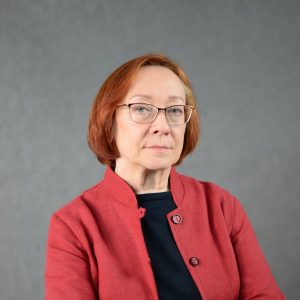
prof. UAM dr hab. Danuta Penkala-Gawęcka
Professor Emerita, Department of Cultural Anthropology
Room: 2.26
Phone:
E-mail: danagaw@amu.edu.pl
Office hours:
Shamans, Islam and the State Medical Policy in Post-Soviet Kazakhstan and Kyrgyzstan, w: The Shamaness in Asia. Gender, Religion and the State, red. Davide Torri, Sophie Roche, London-New York: Routledge 2020, ISBN: 9780367279325, 103-132: https://www.routledge.com/The-Shamaness-in-Asia-Gender-Religion-and-the-State/Torri-Roche/p/book/9780367279325
Legitimacy and Authority of Complementary Medicine Practitioners in Post-Soviet Kyrgyzstan. The Role and Use of Tradition, “Rocznik Orientalistyczny” 70: 1, 2017, p. 20-32. http://journals.pan.pl/dlibra/publication/117010/edition/101716/content
Antropologia medyczna w działaniu. Na przykładzie projektu “Cultural Contexts of Health” realizowanego przez Światową Organizację Zdrowia [Medical Anthropology in Action. On the Example of the Project ”Cultural Contexts of Health” Implemented by WHO]. In: Colloquia Anthropologica II, ed. J. Jasionowska, K. Kaniowska, Warszawa: Oficyna Naukowa, 2017, s. 147-165.
The Role of Women in Health-seeking Strategies and Practices in Post-Soviet Kyrgyzstan. In: The Family in Central Asia. New Perspectives, ed. S. Roche, Islamkundliche Untersuchungen Bd 332, Berlin: Klaus Schwarz Verlag, 2017, p. 184-204.
Risky Encounters with Doctors? Medical Diversity and Health-related Strategies of the Inhabitants of Bishkek, Kyrgyzstan, “Anthropology and Medicine” 23: 2, 2016, s. 135-154. DOI: 10.1080/13648470.2016.1180582.
The Way of the Shaman and the Revival of Spiritual Healing in Post-Soviet Kazakhstan and
Kyrgyzstan, „Shaman. Journal of the International Society for Shamanistic Research” 22: 1-2, 2014, p. 35-59. http://hdl.handle.net/10593/11369
Niepewność, ryzyko, zaufanie. System opieki medycznej i jego reformy w postsowieckim Kirgistanie a strategie zdrowotne mieszkańców Biszkeku [Uncertainty, Risk, and Trust. Reforms of Healthcare System in Post-Soviet Kyrgyzstan and Health-seeking Strategies of the Inhabitants of Bishkek], „Etnografia Polska” 58: 1-2, 2014, p. 135-157. http://rcin.org.pl/Content/59892/WA308_77175_P327_niepewnosc-ryzyko_I.pdf
Mentally Ill or Chosen by Spirits? ’Shamanic Illness’ and the Revival of Kazakh Traditional Medicine in Post-Soviet Kazakhstan, “Central Asian Survey” 32: 1, 2013, p. 37-51. DOI: 10.1080/02634937.2013.771872. http://hdl.handle.net/10593/14276
„Maladies populaires” et médicine complémentaire en Cachoubie, “Ethnologie française” 40: 2, 2010, 295-304. DOI: 10.3917/ethn.102.0295. https://www.cairn.info/revue-ethnologie-francaise-2010-2-page-295.htm
Antropologia medyczna dzisiaj: kontynuacje, nowe nurty, perspektywy badawcze [Medical Anthropology Today: Continuities, New Directions, Research Perspectives]. In: Socjologia i antropologia medycyny w działaniu [Medical Sociology and Medical Anthropology in Action], ed. W. Piątkowski, B. Płonka-Syroka, Wrocław: Oficyna Wydawnicza Arboretum, 2008, p. 219-241.
Medycyna komplementarna w Kazachstanie. Siła tradycji i presja globalizacji [Complementary Medicine in Kazakhstan. The Force of Tradition and Pressure of Globalisation], Seria Etnologia i Antropologia Kulturowa nr 23, Poznań: Wydawnictwo Naukowe UAM, 2006.
Korean Medicine in Kazakhstan: Ideas, Practices and Patients, “Anthropology and Medicine” 9: 3, 2002, p. 315-336. DOI: 10.1080/13648470216338. https://www.academia.edu/2383152/Korean_medicine_in_Kazakhstan_ideas_practices_and_patients
Wybrańcy duchów, czyli jak zostać szamanem. Na przykładzie ujgurskiej szamanki z Kazachstanu [Chosen by Spirits or How to Become a Shaman. The Example of an Uighur Shaman Woman from Kazakhstan], “Lud” 85, 2001, p. 153-191. http://hdl.handle.net/10593/11368
Medycyna tradycyjna w Afganistanie i jej przeobrażenia [Traditional Medicine in Poland and Its Transformations], Prace Etnologiczne vol. 12, Wrocław: Polskie Towarzystwo Ludoznawcze, 1988.
Medical Pluralism in Afghanistan: Conflict Between, Coexistence or Integration of Various Medical Systems? In: Poland at the 12th Congress of Anthropological and Ethnological Sciences, ed. S. Szynkiewicz, Wrocław: Zakład Narodowy im. Ossolińskich, 1988, p. 235-247.
Health, Illness and Healing in Contemporary Kyrgyzstan. Concepts of Health and Illness, and Healthcare-Seeking Strategies of the Kyrgyz in the Conditions of the Urban Medical Pluralism.
Funded by the National Centre of Science, 2011-2014.
Organisation and leadership of the Medical Anthropology Research Group at the Department of Ethnology and Cultural Anthropology, Adam Mickiewicz University in Poznań (since 2017).
Membership in the expert group invited to the international project „Cultural Contexts of Health and Well-Being”, World Health Organization, Regional Office for Europe (2015-2019).
http://www.euro.who.int/en/data-and-evidence/cultural-contexts-of-health
Membership in the Follow-Up Committee of the international project CREACTIVE (Collaborative REsearch on ACute Traumatic brain Injury in intensiVe care medicine in Europe) (2013-1018). The project is funded by the European Commission under the Seventh Framework Programme. It covers also socio-cultural aspects of the rehabilitation from TBI.
http://creactive.marionegri.it/
Editorship of the journal “Lud” (“People”) – 2007-2016.
Project Ethnological Dictionary (ed. 1987) – participation in preparing and editing of the first Polish dictionary of ethnological and anthropological terms, under the direction of Zofia Staszczak (1980-1985).
Ethnological Expedition to Afghanistan (1976) – participation in organising the expedition (1973-1976) and conducting ethnographic fieldwork in central and northern Afghanistan.
Atlas of Language and Folk Culture of Greater Poland Region – participation in the research group directed by Zenon Sobierajski (Department of Polish Language, Adam Mickiewicz University) and Józef Burszta (Chair of Ethnography, Adam Mickiewicz University) (1972-1982).
https://amu.academia.edu/DanutaPenkalaGawecka
https://www.researchgate.net/profile/Danuta_Penkala-Gawecka
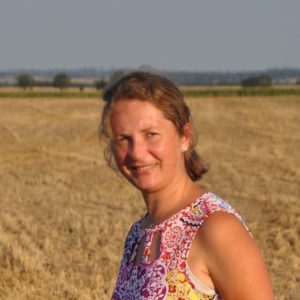
mgr Justyna Szczepanowska
Specialist, Office
Room: 2.17
Phone: 61 829 13 76
E-mail: etnolo@amu.edu.pl
Office hours:
Monday-Friday, 7:30-15:30
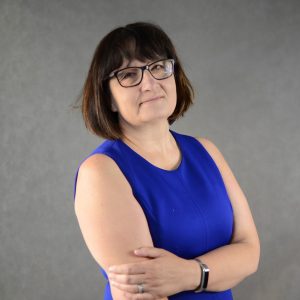
prof. UAM dr hab. Katarzyna Marciniak
Associate Professor, Section of Ethnology
Room: 2.9
Phone: 61 829 13 67
E-mail: kasiamar@amu.edu.pl
Office hours:
Monday, 09:45-10:45
Tuesday, 14:00-15:00
Sztuka ludowa w badaniach Tadeusza Seweryna, w: Kulturowe kody – etnologiczne klucze. Szkice dedykowane doktorowi Jackowi Bednarskiemu, red. W. Dohnal, W. Kuligowski, J. Schmidt, Poznańskie Studia Etnologiczne nr 21, Poznań: Instytut im. Oskara Kolberga, 2017, s. 137-142.
Oblicza małej architektury sakralnej Kaszub i Pomorza Zachodniego, s. 85-96= The faces of small sacred architecture in Kashubia and West Pomerania, s. 99-109, w: Mała architektura sakralna Kaszub. Perspektywa antropologiczna=The Small Sacred Architecture of Kashubia. An Anthropological Perspective, red. K. Marciniak, Gdańsk: Muzeum Narodowe w Gdańsku, 2016.
Sacrum czy profanum? Analiza ruchu pątniczego na podstawie pielgrzymek do wielkopolskich sanktuariów maryjnych, w: Kultura i turystyka – Sacrum i profanum, red. J. Latosińska, J. Mokras-Grabowska, Łódź: Regionalna Organizacja Turystyczna Województwa Łódzkiego, 2016, s. 39-54.
Czas pielgrzymowania, w: Dom cudów Maryi 1512-2012. Pamiątka jubileuszu 500-lecia uznania cudów na Świętej Górze w Gostyniu, red. A. Adamski, J. Przybylski, M. Kulig, Święta Góra: Kongregacja Oratorium Świętego Filipa Neri na Świętej Górze, 2015, s. 245-265.
„Kto śpiewa dwa razy się modli”. Pieśni i poezja maryjna jako wyraz społecznej potrzeby, w: Uniwersalizm i tradycja w kulturze. Aktualność kultury ludowej, cz. III [Universalism and tradition in culture. Folk culture preserved in modern times, part III], red. A. Roguska, M. Danielak-Chomać, Siedlce: Pracownia Wydawnicza Wydziału Humanistycznego Uniwersytetu Przyrodniczo-Humanistycznego w Siedlcach, 2015, s. 177-197.
Las w sztuce ludowej i nieprofesjonalnej, w: X ogólnopolski Przegląd Twórczości Amatorskiej Leśników OPTAL 2015, [red. R. Kostka], Gołuchów: Ośrodek Kultury Leśnej w Gołuchowie, 2015, s. 30-44 [informator wystawowy].
Nieformalne nauczanie dorosłych a wiejska turystyka kulturowa, w: Pamięć historyczna w nieformalnej edukacji dorosłych, red. K. Marciniak, Poznań: Wydawnictwo Przestrzeń Wyobrażona, 2015, s. 70-81.
Pamięć w projektach kształcenia osób dorosłych, w: Pamięć historyczna w nieformalnej edukacji dorosłych, red. K. Marciniak, Poznań: Wydawnictwo Przestrzeń Wyobrażona, 2015, s. 8-25.
Smak pamięci. Tradycje kulinarne Łomnicy-Zdroju, red. K. Marciniak, Łomnica-Zdrój: Przestrzeń Wyobrażona Anna Pospieszna, 2015, s. 2.
Pamięć historyczna w nieformalnej edukacji dorosłych, red. K. Marciniak, Poznań: Wydawnictwo Przestrzeń Wyobrażona, 2015, s. 6-7.
[Wspólnie z Kathariin Liibert] Komunikacja międzypokoleniowa we współczesnej Europie. Analiza porównawcza wybranych przykładów, w: Międzypokoleniowy transfer wiedzy i doświadczeń w projektach aktywizujących, red. K. Marciniak, Poznań: Wydawnictwo Przestrzeń Wyobrażona, 2014, s. 14-43.
Patriotyczno-polityczne aspekty funkcjonowania miejsca świętego i jego percepcja, „Sensus Historiae”. Studia interdyscyplinarne t. 15: 2014, nr 2, s. 159-175.
Przeobrażenia we współczesnym ruchu pielgrzymkowym w Wielkopolsce, „Ecclesia. Studia z Dziejów Wielkopolski” t. 9, 2014, s. 289-330.
Wstęp, w: Międzypokoleniowy transfer wiedzy i doświadczeń w projektach aktywizujących, red. K. Marciniak, Poznań: Wydawnictwo Przestrzeń Wyobrażona, 2014, s. 6-13.
Odpusty wielkopolskie, w: Regiony etnografii. Szkice dedykowane Profesorowi Andrzejowi Brenczowi w 70. rocznicę urodzin, red. J. Schmidt, UAM. Poznańskie Studia Etnologiczne nr 15, Poznań: Wydawnictwo Nauka i Innowacje, 2013, s. 61-71.
Zum Pilgerwesen im heutingen Grosspolen, „Jahrbuch Polen“ t. 23: Regionen, 2012, s. 62-71. Wiesbaden.
Dysfunkcjonalny obraz rodziny wiejskiej w” Pamiętnikach chłopów” z 1935 roku, w: Wartość i dobro rodziny, red. J. Jęczeń, M.Z. Stepulak, KUL. Centrum Badań nad Rodziną t. 5, Lublin: Wydawnictwo KUL, 2011, s. 299-306.
Oblicza wielkopolskiego pielgrzymowania. Studium etnologiczne na przykładzie sanktuariów maryjnych, UAM. Seria Etnologia i Antropologia Kulturowa nr 25, Poznań: Wydawnictwo Naukowe UAM, 2010, ss. 320.
DISCO – Discovering Archaeologists of Europe 2014’ 528091-LLP-1-2012-1-UK-LEONARDO-LNW (2012-2014) wykonawca http://www.discovering-archaeologists.eu/2014/08/index.html
SEMBET – Sharing European Memories BETween generations – 2012-527479-LLP-1-2012-1_IT (2013-2014) Kierownik ze strony polskiej http://sembet.eu/ , http://sembet.eu/pl/
KCMEM – Acquiring key competences through local memories in non-formal adult learning 539781-LLP-1-2013-ES=GRUNDVIG-GMP (2014-2015), kierownik ze strony polskiej http://kc-mem.eu/ , http://kc-mem.eu/pl/
NEARCH umowa 3085/KULTURA/2014/2 (2014-2018) wykonawca http://www.nearch.eu/
Positions
Chair of the Electoral Committee at the Department of Ethnology and Cultural Anthropology UAM in Poznan (since 2012)
Coordinator and Patron of Anthropology classes (since 2016)
Member of the Faculty of History Funding Committee (2016-2019)
Member of the Faculty of History Grant Commission (2014-2015)
Chair of the Admissions Committee at the Department of Ethnology and Cultural Anthropology at UAM in Poznan (2016)
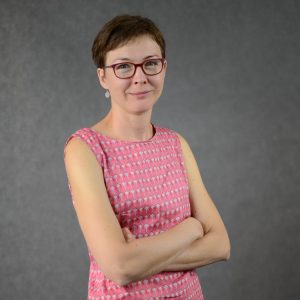
prof. UAM dra hab. Izabella Main
Assistant Professor, Section of Social Anthropology
Room: 2.34
Phone: 61 829 13 86
E-mail: imain@amu.edu.pl
Office hours:
Thursday, 10:30-11:30
Dr Izabella Main received her Ph.D. in comparative studies in history in Central European University, in Budapest. Since 2003 she works in the Department of Ethnology and Cultural Anthropology, Adam Mickiewicz University in Poznań. Currently she is an assistant professor in the Section of European Studies and Cultural Criticism. She is a field researcher and anthropologist engaged in applied and educational projects.
Research Interests: anthropology of migration and mobility, Polish migration in Europe; medical anthropology; anthropology of communist and transitional Poland; memory, monuments and symbolic spaces.
Research Areas: Western Europe, Poland
Lepsze światy medyczne? Zdrowie, choroba i leczenie polskich migrantek w perspektywie antropologicznej [Better medical worlds? Health, illness and curing of Polish female migrants in anthropological perspective], Warszawa: Wydawnictwo Naukowe SCHOLAR, 2018, ss. 208. [link]
Post-accession female mobility between Poland and Norway. New trends and new ways of thinking about migration, “Sprawy Narodowościowe”. Seria Nowa 2017, nr 49, ss. 18 [with Izabela Czerniejewska]. [link]
Biomedical practices from a patient perspective. Experiences of Polish female migrants in Barcelona, Berlin and London, “Anthropology & Medicine” vol. 23, 2016, nr 2, p. 188-204. DOI: 10.1080/13648470.2016.1180579
Motivations for mobility and settlement of Polish female migrants in Barcelona and Berlin, “Social Identities: Journal for the Study of Race, Nation and Culture” vol. 22: 2016, nr 1, p. 62-79. DOI: 10.1080/13504630.2015.1110358
Giving birth in Berlin: Reproductive experiences of Polish migrant women, in: Rethinking ethnography in Central Europe, ed. Hana Cervinkova, Michał Buchowski, Zdenĕk Uherek, New York: Palgrave Macmillan, 2015, p. 89-111. [link]
[ed.] Nie dość użyteczni. Zmagania imigrantów na lokalnym rynku pracy [Not Useful Enough. The Struggle of Immigrants in the Local Labour Market], Poznań: Centrum Badań Migracyjnych UAM, 2015, ss. 189. [with z Natalia Bloch, Karolina Sydow] [pdf]
High mobility of Polish women: The ethnographic inquiry of Barcelona, “International Migration” t. 52, 2014, nr 1, p. 130-145. DOI: 10.1111/imig.12119
Medical travels of Polish female migrants in Europe, “Sociologický časopis/Czech Sociological Review” t. 50, 2014, nr 6, p. 897-918, http://dx.doi.org/10.13060/00380288.2014.50.6.147
The memory of communism in Poland, in: Remembering communism. Private and public recollections of lived experience in Southeast Europe, ed. Maria Todorova, Augusta Dimou, Stefan Troebst, Leipzig Studies on the History and Culture of East-Central Europe t. I, Budapest-New York: Central European University Press, 2014, p. 97-117.
Mobile Lives, Immobile Realms? Female Mobility Beteen Poland and Norway (2015-2019), grant NCN. Konkurs Harmonia 6 (Principal Investigator). link
Norms and Values in the European Migration and Refugee Crisis (NOVAMIGRA) (2018-2021), grant Horyzont 2020 (researcher) link
Migration for welfare: nurses within three regimes of immigration and integration into the Norwegian welfare state (WELLMIG). 2017-2021, grant Norwegian Research Council (researcher) project webpage
Active MIGrAnts on the labour market – a German-Polish cooperation. 2013-2015, grant EFS, PO KL (researcher). link
Remembering Communism. Methodological and Practical Issues of Approaching the Recent Past in Eastern Europe, 2009-2010, grant Volkswagen Foundation (researcher)
Links

prof. UAM dr hab. Aleksandra Lis-Plesińska
Assistant Professor, Section of Social Anthropology
Room: 2.34
Phone: 61 829 13 86
E-mail: alis@amu.edu.pl
Office hours:
-
Research Areas: Western Europe, Poland, Latin America.
Cantoni, R., Lis, A. and Stasik, A. (forthcoming in 2018). “Creating and debating energy citizenship: the case of Poland’s shale gas.” In: Szolucha, A. Energy Impacts, Routledge: Environment and Sustainability.
Lis, A. and Stasik, A. (forthcoming in 2018). “Unlikely allies across political scales: Żurawlów, Brussels and the global anti-fracking movement.” In: Whitton, J., Cotton, M.; Charnley-Parry, I. M., Brasier, K.: Governing Shale Gas Development, Citizen Participation and Decision Making in the US, Canada, Australia and Europe, Routledge Studies in Energy Policy.
Lis, A. 2018. “Politics and Knowledge Production: Between Securitization and Riskification of the Shale Gas Issue in Poland and Germany”, in: Szulecki, Kacper. Energy Security in Europe. Palgrave Macmillan.
Lis, A., Stasik, A. 2017. Hybrid forums, knowledge deficits and the multiple uncertainties of resource extraction: Negotiating the local governance of shale gas in Poland. Energy Research & Social Science, 28(2017), 29-36.
Bernaciak, M., and Lis, A. 2016. Weak Labour, Strong Interests: Polish Trade Unions and the Integration of EU Energy and Service Markets. JCMS: Journal of Common Market Studies, doi: 10.1111/jcms.12506.
Lis, Aleksandra; Piotr Stankiewicz. 2016. Framing Shale Gas for Policy-Making in Poland. Journal of Environmental Policy and Planning.
DOI: 10.1080/1523908X.2016.1143355
Paul Upham, Aleksandra Lis, Hauke Riesch, Piotr Stankiewicz. 2015. Addressing social representations in socio-technical transitions with the case of shale gas, Environmental Innovation and Societal Transitions, pp. 1-22; available on-line at doi: http://dx.doi.org/10.1016/j.eist.2015.01.004
Aleksandra Lis. 2014. Strategies of Interest Representation: Polish Trade Unions in EU Governance, Europe-Asia Studies, 66(3): 444-466.
Simons, Arno, Lis, Aleksandra, Lippert, Ingmar. 2014. The political duality of scale-making in environmental markets. Environmental Politics. DOI: 10.1080/09644016.2014.893120 ;
Riesch, Hauke; Oltra, Christian; Lis, Aleksandra; Upham, Paul; Pol, Mariette. 2013. CCS and Remote Events: Sense-Making in Spanish and Polish Online Focus Groups. Energy Policy 56(May): 693-702.
Oltra, C., Upham, P., Riesch, H., Boso, A., Brunsting, S., Duetschke, E., Lis, A. 2012. Public Responses to CO2 Storage Sites: Lessons from Five European Cases. Energy and Environment 23(2&3).
Lis, Aleksandra. 2011. Negotiating the European Union Emission Trading Scheme: Re-Constructing a Calculative Space for Carbon, Polish Sociological Review 2(174).
Stankiewicz, Piotr; Lis, Aleksandra. 2012. Dla kogo elektrownia jądrowa? Wyniki badań opinii publicznej. [For whom is the nuclear power? Opinion survey results.] in: Kazimierz Jeleń, Zbigniew Rau (eds), Energetyka jądrowa w Polsce. [Nuclear power in Poland], LEX a Wolters Kluwer Business, Warsaw.
Lis, Aleksandra. 2008. Trade Unions Strength in EU-Wide Comparison, in: Kusznir, Julia; Pleines, Heiko (eds), Trade Unions from Post-Socialist Member States in EU Governance, ibidem-Verlag.
Braendle, C.; Lis, A., Fleischer, T., Evensen, D., Mastop, J. 2017. Prerequisites for a Social Licence to Operate in the (Shale) Gas Industries. M4ShaleGas, 2015-2017. http://www.m4shalegas.eu/downloads/M4ShaleGas%20-%20D17.2%20-%20Prerequisites%20for%20a%20social%20license%20to%20operate%20in%20the%20shale%20gas%20industries%20-%20Dec.%202016.pdf
Lis, A., Braendle, C. 2017. Report on the public perceptions of shale gas in various EU Member States, public attitudes and communication strategies developed around shale gas investments (update 2015-2017). M4ShaleGas, 2015-2017.
Lis, A., Desbarats, J. 2012. Carbon Capture and Storage in Poland: National Strategies and Local Controversies. Assessing Accession Working Paper, CRCEES, University of Glasgow.
Breukers, S., Pol, M., Upham, P., Lis, A., Desbarats, J., Roberts, T., Duetschke, E., Oltra, C., Brunsting, S., de Best-Waldhober, M., Reiner, D., Riesch, H. 2011. Engagement and Communication Strategies for CCS Projects: Gaps between Current and Desired Practices and Exemplary Strategies, ECN.
Reiner, D., Riesch, H., Chyong, Chi K., Brunsting, S., de Best-Waldhober, M., Duetschke, E., Oltra, C., Lis, A., Desbarats, J., Pol, M., Breukers, S., Upham, P., Mander, S. 2011. Opinion Shaping Factors towards CCS and Local CCS Projects: Public and Stakeholder Survey and Focus Groups, Cambridge Judge Business School.
Einbock, J., Lis, A. 2007. An Assessment of the Activities of Polish Trade Unions and Employers’ Organizations at the EU level, KICES Working Papers No. 11 – December 2007.
Heinrich, A., Pleines, H., Lis, A. 2007. Factors Influencing Corporate Governance in Postsocialist Companies: an Analytical Framework, William Davidson Institute Working Paper Number 896 – October 2007. 3
Heinrich, A., Pleines, H., Lis, A. 2005. Corporate Governance in the Oil and Gas Industry. Cases from Poland, Hungary, Russia and Ukraine in a Comparative Perspective, KICES Working Paper No. 3 – December 2005.
Energizing the world: STS and anthropology towards social studies of new energies (2018-2021), National Science Centre grant (Project Leader).
Subsurface Evaluation of CCS and Unconventional Risks (SECURe) (2018-2021), Horizon 2020 grant (Project Leader).
M4ShaleGas: Measuring, monitoring, mitigating managing the environmental impact of shale gas (2015-2018), Horizon 2020 grant (Project Leader). Strona projektu
Shale gas as a new challenge for Europe: re-thinking the role of expertise in European integration processes (2014-2018), National Science Centre grant (Project Leader).
Towards a common European energy policy? Energy security debates in Poland and Germany (2014-2016), DPWS (Project Leader).
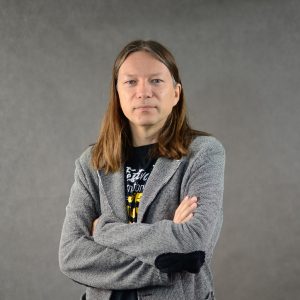
prof. dr hab. Waldemar Kuligowski
Associate Professor, Section of Cultural Anthropology
Room: 2.8
Phone: 61 829 13 66
E-mail: walkul@amu.edu.pl
Office hours:
Monday, 12:15-13:15
Tuesday, 11:00-12:00
Co-edited monographs
-
(with Marcinem Poprawskim) Festivals and Values. Music, Community Engagement and Organisational Symbolism, Springer Nature Switzerland AG, Cham 2023, DOI https://doi.org/10.1007/978-3-031-39752-3.
-
Modernizing Localities in Poland: A Never-ending Transformation, Rowman & Littlefield, Lanham–Boulder-London–New York 2024.
- (with A. Pomieciński) Art in contemporary cultural systems: Central and Eastern Europe, Wydawnictwo Nauka i Innowacje, Poznań 2014, pp. 196.
- (with R. Papp) Sterile and Isolated? An Anthropology Today in Hungary and Poland, Wydawnictwo TIPI, Poznań 2015, pp. 182.
- (with A. Stanisz), Cultures of Motorway. Localities through Mobility as an Anthropological Issue, Poznańskie Studia Etnologiczne, t. 19, Wielichowo: Wydawnictwo TIPI, 2016, pp. 200. [pdf]
Articles in journals
- Flows and spaces. Anthropological view on identities in a global world, “Ethnologia Polona”, 2007, vol. 27, 63-74.
- Nacionalizam običnih ljudi. Etnizacija tradicije na primeru sabora u Guči, „Antropologija. Časopis Instituta za etnologiju i antropologiju (IEA) Filozofskog fakulteta Univerziteta u Belgradu”, 2011, vol. 11, no 1, 67-84.
- Kela memb, stringy a Kate Middleton. Komentáre k transformáciám tradicie, “Kontexty kultúry a turizmu”, Univerzita Konštantína Filozofa v Nitre, 2011, nr 1, 8-10.
- Etnologia Lenkijoje: institucinė ir mokslo raida nuo 1910 metų iki šiandenos, ““Lietuvos etnologija: socialines antropologijos ir etnologijos studijos/Lithuanian Ethnology: Studies in Social Anthropology and Ethnology”, 2011, vol 20, no 11, 109-122.
- A Relay of Youth of the 21st Century. A Re-enactment of Ritual or a Grotesque Performance?, “Cargo. Journal for Cultural and Social Anthropology, 2012, vol.10, no 1-2, 47- 60.
- Nationalism and Ethnicization of History in a Serbian Festival, „Anthropos. International Review of Anthropology and Linguistics”, 2014, vol. 109, no 1, 249-259.
- New meanings of tradition. Globalization, politics and questions for anthropology, „Český lid. Etnologický časopis”, 2014, rocnik 101, no 3, 321-334.
- Polish ethnology. From building national culture to critique of liberal society, „Jahrbuch für Europäische Ethnologie”, 2015, no 10, 13-26.
- Festivalizing Tradition. A Fieldworker’s Notes from the Guča Trumpet Festival (Serbia) and the Carnival of Santa Cruz de Tenerife (Spain), “Lietuvos etnologija: socialines antropologijos ir etnologijos studijos/Lithuanian Ethnology: Studies in Social Anthropology and Ethnology”, 2016, vol. 16, no 25, 2016), 35-54.
- Polish anthropologist against discrimination, “Anthropology Today”, 2017, vol. 33, no 2, 25.
- Collective vertigo. Roger Cailliois “theorie de la fete” toward contemporary music festivals in Poland and Hungary, “Acta Ethnographica Hungarica. An International Journal of Ethnography”, 2017, vol. 62, no 2, 35-52.
Articles in monographs
- (with W. J. Burszta) Touch, Listen, Experience in: Music-Erotica-Culture, M. Jabłoński, R. J. Wieczorek (eds.), “Interdisciplinary Studies in Musicology”, vol. 6, Wydawnictwo Naukowe UAM, Poznań, 2007, 175-185.
- Memotainmnent: The Representations of the Shoah in Popular Culture, in: History, Historiography, and History Teaching. Proceedings from the International Conference “History, Historiography and History Teaching”, held from 21-23 November 2007 in Skopje, B. Ristovska-Josifovska (ed.), Skopje, 2008, 429-436.
- Global Capitalism vs. Local Traditions. Dose the Economy Downfall Means the Triumph of Culture?, in: Challenges for Humanity in the 21st Century, A. Dudek (ed.), Institute of Regional and Global Studies, Faculty of Geography and Regional Studies, University of Warsaw, Warsaw, 2008, 25-36.
- Multiculturalismus versus New Homogeneity: The Cases of Croatia and Bosnia and Herzegovina, in: Etnické Komunity. Vyjednáváni pozice v majoritě, D. Bittnerová, M. Moravcová, Fakulta Humanitnich Studii Univerzity Karlovy w Praze, 2012, 21-36.
- 33 meters of sacrum. The analysis of discourses surrounding the statue of Christ the King of Universe in Świebodzin, in: Art in contemporary cultural systems: Central and Eastern Europe, W. Kuligowski, A. Pomieciński (eds.), Wydawnictwo Nauka i Innowacje, Poznań 2014, 137-148.
- The Invention ‘We’ and ‘Them’ in National Anthems. Images from Central Europe, in: Contemporary Approaches to the Self and the Other, V. Savoniakaité (ed.), Lietuvos Istorijos Institutas, Vilnius 2014, 123-138.
- Politics and Folk Culture: On the Manipulation of Tradition and Folklore, in: W. Kuligowski, R. Papp (eds.) Sterile and isolated? An anthropology today in Hungary and Poland, Wydawnictwo TIPI, Poznań 2015, 89-100.
- (with A. Stanisz), On the Road: Polish Modernization from the Perspective of the Anthropology of the Motorway, w: Rethinking Ethnography in Central Europe, H. Ćervinkova, Z. Uherek, M. Buchowski, Palgrave Macmillan, New York 2015, 175-193.
- The motorway as a “place” of culture: pop culture, history and anthropology, in: Cultures of motorway. Localities through mobility as an anthropological issue, W. Kuligowski, A. Stanisz (eds.), Wielichowo TIPI, 2016, 17-31.
- Habitual Hatred. Inscriptions on Walls and the Crisis of Society, in: Presence/Absence/Traces, E. Chomicka, A. Pindera (eds.), Museum of the History of Polish Jews, Warszawa 2016, 140-149.
Reviews
- Luke Eric Lassiter, The Chicago Guide to Collaborative Ethnography, [in:] „Anthropos. International Review of Anthropology and Linguistics”, 2007, vol. 102, no 2, 636-637.
- Samuel Gerald Collins, All Tomorrow’s Cultures. Anthropological Engagements with the Future, New York 2008 [in:] „Anthropos. International Review of Anthropology and Linguistics”, 2010, vol. 105, no 2, s623.
- Edward W. Said, Culture and Imperialism, [in:] Sötét alteregó. Van-e lengyelországnak nagyhatalmi öröksége?, “BUKSZ. Budapesti Könyvszemle”, vol 22, no 3, Autumn 2010, 289-291.
- Culture Wars. Context, Models and Anthropologists’ Account, Deborah James, Evie Plaice, Christina Toren (eds.), Berghahn Book, London&New York, [in:] „Anthropos. International Review of Anthropology and Linguistics”, 2011, vol. 105, no 2, 681-682.
- Rafał Pankowski, The Populist Radical Right in Poland: The Patriots, Routledge, London 2010, [in:] Karnawał polskiej prawicy, “Czas Kultury”, 2012, nr 6, 139-142.
- Juraj Podoba, Vývoj stavitel’stva a spôsobu bývania v dedinskom prostredi v 20. storoči, Etnograficke monografie, zv. 1, Bratislava: Slovenská asociácia sociálnych antropológov 2011, [in:] „Lud”, t. XCVII, 342-345.
- „Lituanus. The Lithuanian Quarterly” vol. 60, no 4, [in:] „Lud”, t. XCVIX, 393-394.
- Maciej Górny, Wielka Wojna profesorów. Nauki o człowieku (1912-1923), Instytut Historii PAN, Warszawa, 2014, PDF [in English]: https://www.pol-int.org/pl/publikacje/wielka-wojna-profesorow-nauki-o-czlowieku-1912-1923#r4416
- Jaroslav Malina, Anti-encyklopedie anti-antropologie. A-Ž, Akademické nakladatelstvi CERM, Brno 2013, [in:] „Lud”, t. C, s. 330-331.
-
Festiwalizacja wartości. Aksjonormatywne wymiary współczesnych festiwali muzycznych w Polsce, NCN OPUS (2019-2023), 2018/31/B/HS3/00384, head
-
„Dom Kultury + Inicjatywy Lokalne 2024”, Narodowe Centrum Kultury, Diagnoza lokalnego sektora kultury (2024), expert/reserarcher
-
Imaginaries of Immorality in the Age of AI: an Intercultural Analysis 92024-2025), Leverhulme Centre for the Future of Intelligence, University of Cambridge i Schmidt Sciences Foundation, expert
-
Music, values, culture. Jarocin re-study (2015), Ministry of Science and Higher Scholarship, (principal investigator)
- Moving modernizations. The Influence of the A2 Motorway on the Local Cultural Landscape (2014-2017), National Sciences Center (principal investigator)
- Adam Mickiewicz University as a participating university – progressing model cooperation between university and its socio-economic surroundings (2016-2018), Ministry of Science and Higher Scholarship (investigator)
- Pulteram – living tradition in Wielkopolska (2017), Ministry of Culture and National Heritage (investigator)
- Socio-spatial transformations in German-Polish “interstices”. Practices of debordering and rebordering (2016-2018), National Sciences Center (expert)
Membership in scientific associations
- Royal Anthropological Institute
- Société Internationale d´Ethnologie et de Folklore/The International Society for Ethnology and Folklore
- Committee on Ethnological Sciences of the Polish Academy of Sciences (since 2013)
- Committee on Cultural Sciences of the Polish Academy of Sciences (since 2012; 2012-2015 member of the Presidium)
- Committee for Slavic Studies of the Polish Academy of Sciences (2012-2015)
- Polish Ethnological Society
- Polish Sociological Association
- Culture Time Association (president)
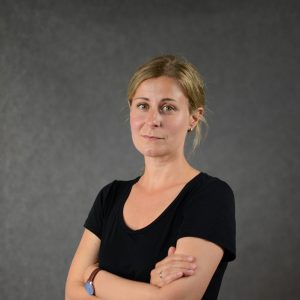
dr Małgorzata Kowalska
Assistant Professor, Section of Theory and Methodology of Anthropology
Room: 2.33
Phone: 61 829 13 85
E-mail: malgorzata.kowalska@amu.edu.pl
Office hours:
Wednesday, 13:00-15:00
2024
Kowalska, M. Z. (2024). Making a conservation site: Stonewort meadows as lake engineers. Environmental Values, OnlineFirst. https://doi.org/10.1177/09632719241308427
Kowalska, M. Z. (2024). Nature Conservation as a More-Than- Human World: From Managerial to Ecological Thinking W: Arrivals and Departures / Latva Otto [i in.] (red.), 2024, De Gruyter, s.177-194, ISBN 9783111215273. DOI:10.1515/9783111215273-009
2022
Kowalska, M. Z. (2022). Antropologia więcej niż ludzka jako praktyka badawcza i propozycja etyczna. Etnografia Polska, 66(1-2), 93–109. https://doi.org/10.23858/EP66.2022.3063
2017
Urban Politics of a Sporting Mega Event. Legitimacy and Legacy of Euro 2012 in Anthropological Perspective, Basingstoke: Palgrave Macmillan http://www.palgrave.com/gb/book/9783319521046
‘From the football field to the communicative field: Embedding entrepreneurial strategy and negotiating local past and future during Euro 2012 in the host city of Poznan’ in: Anthropological Notebooks 23 (1): 111-126
2016
(together with Alexandra Schwell, Nina Szogs, Michał Buchowski, eds.) New Ethnographies of Football in Europe. People, Passions, Politics, Basingstoke: Palgrave Macmillan
‘Hegemony in Question? Euro 2012 and Local Politics in the City of Poznań’. In: A. Schwell, N. Szogs, M. Z. Kowalska, M. Buchowski (eds.) New Ethnographies of Football in Europe. People, Passions, Politics, Basingstoke: Palgrave Macmillan, p. 99-119
(together with Michał Buchowski, A. Schwell and N. Szogs) ‘Introduction. People, Passions and Much More: the Anthropology of Football’ and ‘People, Passions – but What about Politics?’. In: A. Schwell, N. Szogs, M. Z. Kowalska, M. Buchowski (eds.) New Ethnographies of Football in Europe. People, Passions, Politics, Basingstoke: Palgrave Macmillan, p. 1-17 & 228-34
2015
(together with Michał Buchowski) ‘Doing Ethnography and Writing Anthropology of an Event: The Protest Against the 2012 UEFA European Championship in Poznań’. In: B. Alpan, A. Schwell and A. Sonntag (eds.) The European Football Championship: Mega-Event and Vanity Fair, Basingstoke: Palgrave Macmillan, p. 150-72
(together with Michał Buchowski) ‘Globalna gra: Mundial 2014 w oczach Europejczyków’. In: R. Kossakowski, J. Kurowski, J. Nowakowski (eds.) Modern futbol a świat kibiców, Pszczółki: Wydawnictwo Orbis Exterior, p. 35-51
2014
‘The mega-events paradox / Le paradoxe des méga-évènements’ In: Sport and Citizenship. Sport serving society/ Sport et Citoyenetté. Le Sport au service de la société, no. 29 December 2014/January-February 2015, p. 13
(together w/ Michał Buchowski, eds.) Nie tylko piłka w grze. Antropologiczne interpretacje Euro 2012, Poznań: Wydawnictwo Nauka i Innowacje, Poznańskie Studia Etnologiczne nr. 18
(together w/Michał Buchowski) ‘Mistrzostwa Europy w piłce nożnej Euro 2012 oczami antropologów: w kierunku antropologii sportu’ and ‘Opis etnograficzny wydarzenia a interpretacja antropologiczna: protest przeciwko Euro 2012 w Poznaniu’. In: M. Buchowski, M.Z. Kowalska (eds.) Nie tylko piłka w grze. Antropologiczne interpretacje Euro 2012, Poznań: Wydawnictwo Nauka i Innowacje, Poznańskie Studia Etnologiczne nr. 18, p. 7-10 & 11-36.
Nature protection area Natura 2000 as a multispecies network of dependencies. Non-obvious relations in anthropological perspective (PL: Obszar ochronny Natura 2000 jako wielogatunkowa sieć zależności. Nieoczywiste relacje w perspektywie antropologicznej), National Science Centre, 2022-2024
Football Research in an Enlarged Europe: Identity dynamics, perception patterns and cultural change in Europe’s most prominent form of popular culture (FREE), European Commission’s 7 Framework Programme, 2012-2015.
Member of
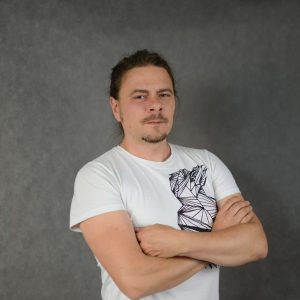
dr Łukasz Kaczmarek
Assistant Professor, Section of Theory and Methodology of Anthropology
Room: 2.31
Phone: 61 829 13 83
E-mail: lukaszk@amu.edu.pl
Office hours:
Wednesday, 12:15-13:15
Constructing of the identity: intercultural relations, communicating and interplaying of identity; negotiating the core values, traditions and memory; interactions between identity and space; space and landscape in constructing local communities.
Social facts and imaginaries: distribution and transformations of the ideas in ethnohistoric perspective; imaginaries in context of power relations and legitimization; konstucting of group self- and exo-representations.
Anthropology of politics/political anthropology: policies and politics in the context of multicultural societies (multiculturalism, cultural pluralism, plural societies) and identity politics; social mobility, stratification and exclusion; agency; ideas, imaginaries and axiologies of power and its performing; relations of domination and subalternity.
Anthropology of history- cultural history-ethnohistory: great narratives and their deconstruction in the postcolonial context.
Research Areas: Europe, South Pacific, Caribbean.
Monographs and co-authored books:
- (Post)kolonialne wytwarzanie Jamajki. Etnografia mobilności społecznej. Poznań: Wydawnictwo UAM (monografia autorska), 225 s., ISBN 978-83-232-4235-2 (Print), ISBN 978-83-232-4236-9 (PDF).
- Fidżi. Dzieje i barwy wielokulturowości, PTL. Prace Etnologiczne t. 18, Poznań: PTL, Wydawnictwo Poznańskie, 2008 (monografia na podstawie materiałów i opracowań wykonanych w trakcie przygotowywania dysertacji doktorskiej).
- [With Aleksander Posern-Zieliński, Agnieszka Szczepaniak-Kroll, Anna Szymoszyn, Rafał Beszterda] Doświadczenia polskich migrantów w Dublinie, [w:] Polacy sukcesu. Doświadczenia migrantów w stolicach Europy Zachodniej, Poznań-Toruń-Warszawa: Oficyna Wydawnicza Kucharski (monografia wieloautorska).
- [With z N. Bloch i K. Grześkowiak] Zielone konferencje. Przewodnik po dobrych praktykach w zakresie organizacji ekologicznie i społecznie odpowiedzialnych konferencji, (2020), Poznań, Instytut im. Oskara Kolberga, Instytut Antropologii i Etnologii UAM (poradnik).
Articles:
- Submitted: [With Hannah Wadle] Społeczno-przestrzenne wytwarzanie „Zachodu” na peryferiach Świętego Cesarstwa Rzymskiego: kolonializm osadniczy na pograniczu czesko-niemiecko-polskim u zarania procesu lokowania miast i wsi, „Wrocławskie Studia Wschodnie” 29 (2025).
- Efekt państwa i dobrostan: klimat społeczny w odczuciach polskich migrantów w Dublinie, Zeszyty Naukowe Uniwersytetu Jagiellońskiego “Prace Etnograficzne”, 47(2) (2019), str. 69–94.
- Mobility Towards Stability: Network-Mediated Ethnography of Successful Polish Migrants in Dublin, “Etnologia Polona”, 37 (2017), str. 247-266.
- Kolonizowanie historii. Postkolonializm i postsocjalizm jako komunały, Zeszyty Naukowe Uniwersytetu Jagiellońskiego “Prace Etnograficzne”, 45(4) (2017), str. 373–395.
- Aspiracje i stabilizacja. Status społeczny i dobrostan polskich migrantów w Dublinie, „Zeszyty Etnologii Wrocławskiej”, 26 (2017), str. 47-68.
- Między survey research a obserwacją uczestniczącą: rozdarcia metodologiczno-tożsamościowe w polskiej etnologii/antropologii kulturowej w XXI wieku, „Etnografia. Praktyki, Teorie, Doświadczenia”, 2 (2016), str. 123-136.
- Mobilność społeczna i przestrzenna z perspektywy wielostanowiskowej: umobilnienie i mobilizacja antropologii, Zeszyty Naukowe Uniwersytetu Jagiellońskiego “Prace Etnograficzne”, Nr 43(3) (2015), str. 171–200.
- Kategorie kultury publicznej służące kreowaniu relacji władzy. Rasa i klasa w kontekście (post)kolonialnym, „Pogranicze. Studia Społeczne”, nr 23, 2014, s. 7-39.
- Teoria upudrowana. Wyobrażenia o etnografii a praktyki badawcze w antropologii polskiej, „”Zeszyty Etnologii Wrocławskiej” 2014, nr 2(21), s. 115-142.
- Antropologiczna rewizyta terenowa. Etnografia zagrożona systemowo, „Zeszyty Etnologii Wrocławskiej” 2013, nr 2(19), s. 17-41.
- [With z Pawłem Ładykowskim] Ethnographic training in borderland: students fieldwork, serendipities, and tight limits of Polish university system. “Cargo. Journal of Social Anthropology” 2013.
- [With z Izabellą Parowicz, European University Viadrina] Kingston: kolonialne ślady w tożsamości przestrzennej, „Journal of Urban Ethnology” 10.
- Współczesna sytuacja diaspory indyjskiej na Fidżi, „Zwierciadło Etnologiczne”. Rocznik Katedry Etnologii i Antropologii Kulturowej USz, 2012, s. 39-49.
- Poza luksusowym więzieniem. Społeczne oddziaływania turystyki na Jamajce, „Lud” t. 96, 2012, s. 249-272.
- Wolny przepływ towarów i (u)sług. Multikulturalizm a wielokulturowość w wyobrażeniach o swojskości i przydatności społecznej oraz legitymizacji kulturowej w kontekście aksjologii ekonomicznej, “Pogranicze. Studia Społeczne”, nr 20, 2012, s. 107-131.
- Ethnicity and politics in Fiji, “Ethnologia Polona” 2009-2010, nr 30-31, s. 79-103.
Chapters:
- Wakacje Władysława Zamoyskiego w podróży przez Południowy Pacyfik – u zarania masowej turystyki, [w:] Amerykańska podróż Władysława hr. Zamoyskiego w roku 1881 (Hawaje, Stany Zjednoczone, Kanada), (red.) Waldemar Kuligowski, Poznań: Bogucki Wydawnictwo Naukowe (2024), s.17-48.
- Nauka Sp. z o.o.: relacje władzy a wolność naukowców w reżimie aksjologii ekonomicznej, w: M. Brocki i R. Kleśta-Nawrocki (red.) Humanistyka i polityka. Czy wszystko jest polityczne?, (2018), Toruń: Colloquia Humaniorum, Polskie Towarzystwo Historyczne, str. 25-54
- Humanistyka, prawda, odpowiedzialność, (samo)krytyczność. Wyobrażenia o naukowości i losy konkretnych ludzi w antropologii w: Humanistyka i Etyka, Adam Kola, Marcin Kafar.
- [Wspólnie z Pawłem Ładykowskim] Schwer fassbare Materie: die Entstethung lines deutch-polonischen Grenzgebiets, w: Deutsche und polonische Migrationserfahrungen. Vergangenheit Und Gegenwart „Migration – Ethnicity – Nation: Cracow Studies in Culture, Society & Politics“, red. Praszałowicz, A. Sosna-Schubert, Warsaw, New York, Frankfurt am Main, Brussels, Oxford: Peter Lang, s. 327-344.
- [Wspólnie z Pawłem Ładykowskim] When the city flows abroad: transnational imaginaries of resurging borderland, w: Middle grounds, ambiguous frontiers, and intercultural spaces, Aleksander Posern-Zieliński, Lech Mróz, Poznań: Instytut im. Oskara Kolberga, 2014, s. 41-62.
- Władza, jej legitymizacja a inkluzywno-ekskluzywne mechanizmy konstruowania tożsamości grupowej. Konstruowanie wyobrażeń państwa i narodu na Fidżi. w: Wczesne Państwo, M. Kara, Warszawa: Wydawnictwo Instytutu Archeologii i Etnologii PAN, ss. 105-133.
- [Tłum.] badania terenowe, s. 144-147, big man, s. 147-149, mit i mitologia, s. 377-380, sny, s. 548-550, szamanizm, s. 597-600, wielkie i małe tradycje, s. 637-638, wymiana, s. 654-657, w: Encyklopedia antropologii społeczno-kulturowej, red. A. Barnard, J. Spencer, red. naukowa wydania polskiego H. Burszta, Warszawa: Oficyna Wydawnicza Volumen, 2008 [druk] 2012.
- [Wspólnie z Pawłem Ładykowskim] Recepcja niemieckiego dziedzictwa kulturowego: wybrane aspekty polsko-niemieckiego pogranicza kulturowego [Umgang mit dem deutschen Kulturerbe. Ausgewählte Aspekte eines deutsch-polnischen kulturellen Grenzlandes], w: Polsko-niemieckie dziedzictwo kulturowe a społeczeństwo obywatelskie w dzisiejszej Polsce. Doświadczenia, trendy, szanse [Deutch-polonisches Kulturerbe und die Zivilgesellschaft im heutigen Polen. Erfahrungen, Trends, Chancen], P. Zalewski, J. Drejer, Warszawa: Europa Universität Viadrina Frankfurt [Oder], Wydawnictwo Scholar, 2012 s. 118-129.
- [Wspólnie z Pawłem Ładykowskim], Gdy granicę przekracza miasto: przygraniczny transnacjonalizm w okolicach Szczecina, w: Imigranci: między izolacją a integracją, red. M. Buchowski, J. Schmidt, KNE PAN. Prace KNE PAN nr 18, Poznań: Wydawnictwo Nauka i Innowacje, 2012, s. 273-289.
- System neotradycyjny i polityka etniczna na Fidżi, w: Antropologia i polityka. Szkice z badań nad kulturowymi wymiarami władzy, W. Dohnal, A. Posern-Zieliński, Warszawa: KNE PAN, IAE PAN, 2011, s. 103-123.
Before obtaining a doctoral degree:
- Zróżnicowanie kulturowe i zanikanie systemu kastowego wśród Fidżyjskich Hindusów, „Lud” t. 90, 2006, s. 155-168.
- Zarys tradycyjnej organizacji społecznej Fidżyjczyków, „Lud” t. 87, 2003, s. 225-240.
- Wpływ kultury euro-amerykańskiej na postkolonialne społeczeństwa południowego Pacyfiku na przykładzie Fidżi, [w:] Północ wobec Południa, Południe wobec Północy, red. Marcin W. Solarz, Warszawa: Aspra-Jr, 2005, s. 67-78.
- Znaczenie religii dla procesu etno- i narodotwórczego na Fidżi, [w:] Etniczność a religia, red. Aleksander Posern-Zieliński, „Poznańskie Studia Etnologiczne” nr 6, Poznań: Wydawnictwo Poznańskie, 2003, s. 179-187.
Poles of the Success – Between Emigration and Transnationality: New Aspect of the Polish Diaspora in Western Europe (2015-2018); Grant from National Research Centre NCN (Investigator)
Active Migrants in the Local Labour Market (AMIGA). Polish-German Cooperation Project (2013) Institution: The Centre for Migration Studies of Adam Mickiewicz University in Poznan and City of Munich Office for Labour and Economy; Funding: European Social Fund and Human Capital Programme (Manager-Assistant Coordinator).
Jamaica 60 years after research of Josef Obrebski. Comparative Study of the postcolonial society in the light of the Josef Obrebski’s field materials and contemporary anthropological research (2009-2012) Institution: Institute of Archaeology and Ethnology, Polish Academy of Sciences; Funding: Ministry of Science and Higher Education (transferred to National Research Centre NCN); Role in the project: Principal Investigator.
Transborder Suburbanisation of Szczecin and Renaissance of Polish-German Cultural Borderland (2009-2012), Institution: The Chair of Ethnology and Cultural Anthropology at The University of Szczecin; Institute of Archaeology and Ethnology of Polish Academy of Sciences; Department of Ethnology and Cultural Anthropology, Adam Mickiewicz University in Poznan; Department of Human Geography, University of Tuebingen; Funding: The University of Szczecin, Polish-German Youth Cooperation Fund (Co-organiser, chief investigator).
Polish Settlements in Europe. Anthropological Visualizations of Cultural Phenomena – Enclaves of Polish Culture in the Region of Bukovina in Romania (2010-2012); Funding: Erasmus LLP, project number LLP ERA_IP_16/2009 (lecturer, trainer, research group coordinator) .
German Cultural Space in the Polish Eyes. Polish Expatriates, Tourists and Migrants in Brandenburg and Mecklenburg-Vorpommern (2010); Funding: Brandenburg Ministry of Science Programme for Internationalization of Universities Research (Postdoctoral Fellow).
Forming and Functioning of the Plural Society in Fiji (2003-2006); Funding: Polish Committee For Scientific Research (Chief Investigator).
EDITC: The Network of Centres for Research in the Context of the European Doctoral Program on Identity, Territory and Conflicts (2005); Funding: European Commision, 6th Framework Programme for Research and Technological Development (Research Fellow).
Member
- European Association of Social Anthropologists
- International Union of Anthropological and Ethnological Sciences
- Polish Ethnological Society
- Canadian Anthropology Society
- Polish-American Ethnological Assotiation
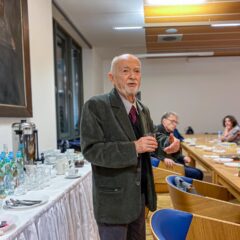
prof. dr hab. Zbigniew Jasiewicz
Professor Emeritus, Department of Ethnology
Room: 2.26
Phone: 660 039 696
E-mail: jasezb@amu.edu.pl
Office hours:
Pieśń i gra obrzędowa „Zelman” u Oskara Kolberga i innych. Materiały i interpretacje, „Lud” t. 101, 2017, s. 279-303, http://dx.doi.org/10.12775/lud 101.2017.o9
Początki polskiej etnologii i antropologii kulturowej (od końca XVIII wieku do roku 1919), Poznań: Instytut im. Oskara Kolberga 2011.
Między konfrontacją a pojednaniem. Kultura ukraińska i Ukraińcy w polskiej literaturze o treściach etnologicznych i antropologicznych z XIX i początków XX wieku, „Etnografia Polska” t. 52, 2008, z. 1-2, s. 5-20.
Etnologia polska. Między etnografią a antropologią kulturową, „Nauka” nr 2, 2006, s. 65-80.
Rodzina, społeczność lokalna i grupa etniczna w Polsce i w Azji Środkowej, Poznań: Wydawnictwo Poznańskie 2004, ss. 278.
[Zbigniew Jasiewicz (red.)], Wschód w polskich badaniach etnologicznych i antropologicznych. Problematyka, badacze, znaczenie, Poznań: Biblioteka Telgte 2004, ss. 295.
[Zbigniew Jasiewicz, Teresa Karwicka (red.)], Przeszłość etnologii polskiej w jej teraźniejszości, Prace Komitetu Nauk Etnologicznych PAN nr 10, Poznań 2001, ss. 183.
[wspólnie z: D. Slattery], Ethnography and anthropology. The case of Polish ethnology, [w:] H. F. Vermeulen and A. A. Roldan [red.], Fieldwork and Footnotes. Studies in the History of European Anthropology, Londyn-Nowy Jork: Routledge 1995, s. 184-201.
Professional Beliefs and Rituals among Craftsmen in Central Asia: Genetic and Functional Interpretation, [w:] Shirin Akiner (red.), Cultural Change and Continuity in Central Asia, Londyn-Nowy Jork: Kegan Paul International 1991, s. 171-180.
[wspólnie z: J. Bednarski] The Family as a Cultural Unit. Tradition and Modernity in Cultural Activity within the Family in Poland, [w:] M. Biskup, V. Filias and I. Vitanyi [red.]The Family and its Culture. An Investigation in Seven East and West European Countries, Budapest: Akademiai Kiado 1984, s. 281-344.
[Zbigniew Jasiewicz (red.)] Kultura i życie społeczne Azji środkowej. Z polskich badań dawnych i współczesnych, Poznań: Wydawnictwo Naukowe UAM 1983, ss. 165.
Rodzina wiejska na Ziemi Lubuskiej. Studium przeobrażeń rodziny na podstawie badań etnograficznych w wybranych wsiach, Warszawa-Poznań: Polskie Wydawnictwo Naukowe 1977, ss. 117.
Uzbecy. Studia nad przeobrażeniami społeczno-kulturowymi w XIX i XX wieku, Poznań: Wydawnictwo Naukowe UAM 1969, ss. 211.
Research and documentation of resources collected by Oskar Kolberg; preparing online publication and edition of the collected works (2018-2022), manager of the National Social Science Development Grant Programme.
Edition of Oskar Kolberg’s unabridged research and documentation material (2012-2017), manager of the National Social Sciences Development Program.
Beginnings of Polish ethnology and cultural anthropology. From the end of the 18th century to 1919 (2005-2009), grant from the Science and Education Ministry.
Numerous promotional projects.
Membership in academic associations
Polish Academy of Sciences, Committee of Ethnological Sciences (2011-2014, honorary president)
Polish Ethnological Society
Poznań Society of Science and Art
The Western Institute
Positions held
The Institute of Ethnology and Cultural Anthropology, Adami Mickiewicz University, Poznan (UAM):
Deputy Dean, Philosophical and Historical Faculty, UAM (1969-1972);
Dean, Philosophical and Historical Faculty (1972-1975);
Head of the Department of Ethnography and Director of the Institute of Ethnology and Cultural Anhtropology, UAM (1979-1993)
Member of the Central Asian Research Centre;
Other:
Chairman of the Committee of Ethnological Sciences, Polish Academy of Sciences (1987-2007);
Professor at the Higher School of Social Sciences and Journalism, Poznan
Member of the Academic Council, the Instytute of Archeology and Ethnology, Polish Academy of Sciences
Deputy Chairman, the Agricultural Museum Council, Szreniawa
Member of the Etnographical Museum, Torun
Deputy Chairman, the Asia and Pacific Council Museum, Warsaw;
”Lud”, the Editor (1987-2006);
Member of editorial committes in ”Lud”, ”Complete Works of Oskar Kolberg”, “Etnografia Polska”, „Works of Bronislaw Malinowski”, ”Przegląd Wschodni”, ”Studia Lednickie”.
Awards, distinctions, honorary membership
Palmae Universitatis Studiorum Posnaniensis, medal of the Adam Mickiewicz University, 2012.
Honorary chairman of the Committee of Ethnological Sciences of the Polish Academy of Sciences, 2009
Honorary member of the Polish Ethnological Society, 1995
The order of Polonia Restituta
The order of the Commission of National Education
Medal of the 80th anniversary of the Adam Mickiewicz University
Medal of the 50th anniversary of the Polish Academy of Sciences
1st prize and medal of Zygmunt Gloger
Gloria Artis Silver Medal
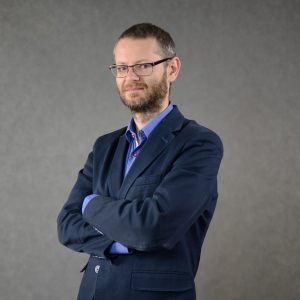
dr Mariusz Filip
Assistant Professor, Section of Theory and Methodology of Anthropology
Room: 2.35
Phone: 61 829 13 87
E-mail: mfilip@amu.edu.pl
Office hours:
Monday, 11:30-12:30
[Odpowiedzi na ankietę antropologiczną “Etnografia – etnologia – antropologia kulturowa dzisiaj”. Cele, zakresy i praktyki badawcze oraz wyzwania na przyszłość]. Lud 101: 524-530
Dlaczego Słowińcy nie chcą rozmawiać? O antropologicznym czytaniu historii [Why Do the Slovincians not Want to Talk? On an Anthropological Reading of History]. Rocznik Antropologii Historii 5: 167-188
Native Faith (not) only for Men: Gendering Extreme Right-wing Slavic Neopaganism in Poland. Pantheon. Religionistický Časopis / Journal for the Study of Religions 10(1): 56-78
„Wędrujące” Kaszuby. Ujęcie antropologiczne [‘Wandering’ Kashubia: An Anthropological Approach]. Rocznik Antropologii Historii 4(2): 199-221
Selected Words for Modern Pagan and Native Faith Movements in Central and Eastern Europe In: K. Aitamurto and S. Simpson (eds.), Modern Pagan and Native Faith Movements in Central and Eastern Europe. Acumen Publishing Ltd. (Reprinted by Routledge, 2014), pp. 27–43. [with Scott Simpson]
Od Kaszubów do Niemców. Tożsamość Słowińców z perspektywy antropologii historii [From Kashubians to Germans: Slovincians’ Identity from the Anthropology of History Perspective]. Wydawnictwo Nauka i Innowacje
Neil Lancelot Whitehead (1956-2012) – między antropologią historyczną a antropologią polityczną [Neil Lancelot Whitehead (1956–2012) – Between the Historical and Political Anthropology]. Rocznik Antropologii Historii 2(1): 395-400 [with Paweł Chyc]
Polityka tożsamości we wspólnotach neopogańskich. Przykład Zakonu Zadrugi „Północny Wilk” [Politics of Identity in Neopagan Communities: An Example of the Order of Zadruga ‘Northern Wolf’]. In: W. Dohnal and A. Posern-Zieliński (eds.), Antropologia i polityka. Szkice z badań nad kulturowymi wymiarami władzy. Komitet Nauk Etnologicznych PAN, Instytut Archeologii i Etnologii PAN, pp. 174–188
Neopogański nacjonalizm jako praktyka. Tożsamość Zakonu Zadrugi „Północny Wilk” [Neopagan Nationalism as a Practice. The Identity of the Order of Zadruga ‘Northern Wolf’]. Państwo i Społeczeństwo 9(4): 45-57
O etnografię rodzimowierstwa. Wprowadzenie do etnografii Zakonu Zadrugi „Północny Wilk” [Towards an Ethnography of Native Faith: Introduction to the Ethnography of the Order of Zadruga ‘Northern Wolf’]. Państwo i Społeczeństwo 8(4): 107-121
Antropologia kulturowa wobec rekonstrukcji przeszłości [Cultural Anthropology in the Face of Reconstruction of the Past]. Iuvenilia 1: 31-40
Geneza popularności Wiedźmina – interpretacje [Genesis of the Witcher’s Popularity: Interpretations]. Kultura Popularna no. 2(8), 2004, ss. 95-103.
Symbolic boundaries of the Slavic Neo-Paganism. Poland as a Case Study (since 2015)
Change and Persistence of Slovincians’ Identity in the Light of Anthropology (2007-2011)
Heterogeneity of the Slavic Neo-Paganism in Poland (2005-2014)
Nationalism as an Expression of Neo-Pagan Identity. The Case of the Order of Zadruga ‘Northern Wolf’ (2004-2008)

dr hab. Piotr Fabiś
Assistant Professor, Section of Theory and Methodology of Anthropology
Room: pok. 2.35
Phone: 61 829 13 87
E-mail: pfabis@amu.edu.pl
Office hours:
Wednesday, 10:30-11:30
Stosunek seksualny i społeczeństwo w „Poszukiwaczach” Johna Forda, „Lud”, t. 101, 2017, s. 357-377, DOI:10.12775/lud.2017.12.
Robert Warshow i efekt realizmu, w: Kulturowe kody – etnologiczne klucze. Szkice dedykowane doktorowi Jackowi Bednarskiemu, red. Wojciech Dohnal, Waldemar Kuligowski, Jacek Schmidt, Poznańskie Studia Etnologiczne nr 21, Poznań: Instytut im. Oskara Kolberga, 2017, s. 143-152
Gary Cooper znowu w siodle, w: Imperium Rolanda Barthes’a, red. Anna Grzegorczyk, Agnieszka Kaczmarek, Katarzyna Machtyl, Poznań: Wydawnictwo Naukowe UAM, 2016, s. 117-135.
Pokrewieństwo teorii, „Zeszyty Etnologii Wrocławskiej”, 2016/2(25), s. 45-70, [pdf].
Émile Durkheim jako teoretyk kultury, Wydawnictwo Poznańskie, Poznań 2008.

dr Karolina Dziubata-Smykowska
specialist, researcher, Archive, Section of Ethnology
Room: 2.39
Phone: 61 829 13 90
E-mail: karolina.dziubata@amu.edu.pl
Office hours:
- Ethnoclimatology – anthropology of weather, climate ethnography, impact of climate crisis on local practices towards intangible cultural heritage based on human-environment relationship
- Citizen science – environmental monitoring through civic engagement
- Just transition of coal regions – the role of non-governmental organizations, grassroots initiatives, and social capital in decarbonization and identity processes
- Intangible cultural heritage – restoration, practice and transformation, folklorism, heritage politics, criticism of authenticity, UNESCO activities (cultural heritage lists), feminist folklore studies
- Cultural heritage management – patrimonialization, invented tradition, cultural policy
- Visual anthropology – photography and film in ethnography, collections of the Józef Burszta Digital Archive
- Anthropology of the body – the symbolism of human hair and the role of hairstyle in different cultural contexts
- Anthropology of migration/memory – memory of people displaced from the Polish Eastern Borderlands during World War II
PUBLICATIONS (English)
2024, When tradition depends on the weather. Polish intangible cultural heritage in the context of climate change, „Anthropological Journal of European Cultures” no. 33, p. 11-25, DOI:10.3167/ajec.2024.330103
2024, Local responses to climate crisis impact on intangible cultural heritage in Poland, „Journal of Folklore and Popular Culture” vol. 68 (2024) no. 1-2, p. 61-82, https://doi.org/10.12775/LL.1.2024.004
PUBLICATIONS (Polish)
2024,Dziubata-Smykowska, K., Brzezińska A.W., Ceklarz, K., Smyk, K., Waszczyńska, K. (2024) Wyprawy z Etnoekipą. Poznaj dawną wieś, t. 7, Warszawa: Narodowy Instytut Kultury i Dziedzictwa Wsi.
2023, Kryzys klimatyczny a lokalne praktyki wobec niematerialnego dziedzictwa kulturowego? Propozycja badań nad wybranymi zjawiskami Krajowej Listy Niematerialnego Dziedzictwa Kulturowego w Polsce z perspektywy etnoklimatologicznej, LUD, t. 107, s. 110-141.
2023, Dla nas to jest świętość. Folkloryzm jako forma ochrony niematerialnego dziedzictwa kulturowego, Wydawnictwo Naukowe UAM.
2023, Wyprawy z Etnoekipą. Poznaj dawną wieś, t. 1-6, Warszawa: Narodowy Instytut Kultury i Dziedzictwa Wsi (with Brzezińska A.W., Ceklarz, K., Smyk, K., Waszczyńska, K.)
2022, Kultura ludowa górali nadpopradzkich (od Piwnicznej do Rytra). Recenzja, „Dziedzictwo Kulturowe Wsi” 6, s. 201-205.
2022, To wszystko kosztuje… Praktyki wokół strojów regionalnych w działalności zespołów folklorystycznych, „Kultura wsi” ISSN 2353-5768 nr 17(2).
2020, Patrymonializacja, „unescoizacja” i polityka. Trajektorie tańca tradycyjnego w systemie ochrony niematerialnego dziedzictwa kulturowego, „Kultura Współczesna” ISSN: 1230-4808, nr 4(111)/2020, s. 174-192.
2020, Fryzura jako społeczno-kulturowy komunikat niewerbalny studium przypadku dredów w Polsce, „Etnografia Polska”, nr 64, s. 141-154. DOI:10.23858/ep64.2020.007
2020, Stereotypizując fryzurę . Wyobrażenia na temat włosów w doświadczeniach osób noszących dredy w Polsce, „Etnografia. Praktyki, Teorie, Doświadczenia” nr 6, s. 241-258.
2020, Koalicja Wschowskich Kolędników. Między dziedzictwem kulturowym a tradycją wynalezioną, „Zeszyty Wiejskie”, 2020, nr 26, s. 243-268. DOI:10.18778/1506-6541.26.11
2020, Kto pamięta o dziedzictwie? Działania na rzecz niematerialnego dziedzictwa kulturowego w Sławsku Wielkim i Przyprostyni, [w] M. Dziewierski, B. Pactwa (red.), Kultury i krajobrazy pamięci, s. 287-304.
2020, Mały Kolberg. Żywa tradycja inspiracją do pracy z dziećmi, „Przegląd Wielkopolski. Kultura, Historia, Ekorozwój, Turystyka” R. 34: 2020, ISSN: 0860-7540, nr 1(127), s. 86-89.
2020, Recenzja: Wesele Szamotulskie, Szamotulski Ośrodek Kultury, Szamotuły 2016, ss. 56, „Przegląd Wielkopolski. Kultura, Historia, Ekorozwój, Turystyka” R. 34: 2020, ISSN: 0860-7540, nr 1(127), s. 95-97.
2020, W trosce o dziedzictwo, „Podkoziołek” 2/2020.
2019, Mardi Gras! Największe ostatki na świecie [w] A. Jełowicki (red.), Bery, cymper, podkoziołek – żywa tradycja w Wielkopolsce, Szreniawa: Muzeum Narodowe Rolnictwa i Przemysłu Rolno-Spożywczego w Szreniawie, s. 121-132.
2019, Tradycje wielkanocne w światowym systemie ochrony niematerialnego dziedzictwa kulturowego [w] , A. Jełowicki (red.), Muradyny, żandary, siwki. Żywa tradycja w Wielkopolsce, Szreniawa: Muzeum Narodowe Rolnictwa i Przemysłu Rolno-Spożywczego w Szreniawie, s. 121-130.
2019, Ethno Port Poznań. O muzyce, kulturze i edukacji, [w] A.W. Brzezińska, K. Smyk (red.), Festiwale, konkursy przeglądy a ochrona niematerialnego dziedzictwa kulturowego, Lublin-Wrocław-Warszawa: Wydawnictwo Uniwersytetu Marii Skłodowskiej-Curie, Polskie Towarzystwo Ludoznawcze, Narodowy Instytut Dziedzictwa, s. 181-192.
2019, Od prawa międzynarodowego do lokalnej społeczności. Praktyczny wymiar ochrony niematerialnego dziedzictwa kulturowego [w] Rozpoznać przeszłość w teraźniejszości. Granice dziedzictwa. Materiały pokonferencyjne, Kraków: Akademickie Koło Studentów Ochrony Dóbr Kultury Uniwersytetu Jagiellońskiego, s. 116-131.
2019, Wesele Przyprostyńskie, Nieco osobista historia badań nad niematerialnym dziedzictwem kulturowym Wielkopolski, „Podkoziołek” 4/2019.
2019, Barwy przeszłości. Recenzja wystawy „Czarno na Białym w kolorze”, „Dziedzictwo kulturowe wsi” nr 3/2019, s. 231-237.
2019, Wprowadzenie [w] M. Chrapek-Wawrzyniak, Powitać, poświętować, pożegnać. Ślady dawnych obrzędów przejścia w folklorze wsi radomskiej, Warszawa: Narodowe Centrum Kultury, s. 8-9.
2018, Festum inter-folkloricum. Wielowymiarowość festiwali folklorystycznych, „Literatura Ludowa” nr 1, s. 70-75.
2018, „Muradyny, żandary, siwki – żywa tradycja w wielkopolsce”. Etnologiczne badania terenowe nad zwyczajami organizowania pochodów wielkanocnych, „Dziedzictwo kulturowe wsi” nr 2, s. 213-226 (wspólnie z Machowska, M., Zalewski, P.).
2018, Festiwale, konkursy, przeglądy a ochrona niematerialnego dziedzictwa kulturowego Ogólnopolska konferencja naukowa w Lublinie 7-8 grudnia 2017, „Twórczość Ludowa” nr 1-2, s. 61-63.
2018, III Gala niematerialnego dziedzictwa kulturowego, „LUD” t. 102/2018, s. 555-562 (wspólnie z Machowska, M.).
2018, Społeczność lokalna w działaniu: zarządzanie dziedzictwem kulturowym. Etnologiczne badania terenowe w Kaliszu, „Dziedzictwo kulturowe wsi” nr 2, s. 157-164 (wspólnie z Janaszak, M.).
2018, Twórcy/wytwórcy/przetwórcy. Wokół problematyki wzornictwa regionalnego. Ogólnopolska konferencja naukowa w Kaliszu 8-9 czerwca 2018 roku, „Dziedzictwo kulturowe wsi” nr 2, s. 233-240 (wspólnie z Szałek, M.).
2018, Wikipedia: Etnografowie w Wikipedii, „Przegląd Wielkopolski. Kultura. Historia. Ekorozwój. Turystyka”, 1: 2018, s. 74-75.
2018, Razem dla folkloru: Wojewódzki Przegląd Folklorystyczny w Szreniawie, https://kulturaupodstaw.pl/razem-dla-folkloru-wojewodzki-przeglad-folklorystyczny-w-szreniawie/
2018, Folklor(yzm) sklepowy. Wzornictwo regionalne w produktach spożywczych i użytku codziennego [w] A.W. Brzezińska, S. Kucharska (red.), Twórcy – Wytwórcy – Przetwórcy. Wokół problematyki wzornictwa regionalnego, Kalisz: Muzeum Narodowe w Kaliszu, s. 297-322.
2017, Autentyczność kolędnicza. Kaszubskie kolędowanie w książce Iwony Świętosławskiej, „Twórczość Ludowa” R. XXXII (83) Nr 3-4, s. 47-48.
2017, Wesele biskupiańskie jako widowisko obrzędowe, „Przegląd Wielkopolski. Kultura. Historia. Ekorozwój. Turystyka”, 3: 2017, s. 30-40.
2016, Rok Obrzędowy z Wikipedią, „Twórczość Ludowa”, 1-2: 80, s. 66-67 (wspólnie z Zalewski, P.).
2016, II Seminarium na temat strojów ludowych i rękodzieła (Wrocław, 4 grudnia 2015), „Twórczość Ludowa”, 1-2: 80, s. 63-65 (wspólnie z Machowska, M.).
2016, Codzienność, wstyd, atrakcja. Dzieje stroju biskupiańskiego, [w] A. W. Brzezińska, M. Machowska (red.), Biskupizna. Ziemia – tradycja – tożsamość, Krobia: Gminne Centrum Kultury i Rekreacji im. Jana z Domachowa Bzdęgi, s. 133-155.
2016, Zagrożenia wobec ciągłości kultury ukraińskiej na Powiślu, [w] A. Paprot, K. Linda-Grycza, T. Buliński (red.), Wielokulturowe Pomorze. Ukraińcy i ich dziedzictwo kulturowe na Żuławach i Powiślu, Gdańsk – Nowy Dwór Gdański: Stowarzyszenie Kochamy Żuławy, s. 135-146.
2016, Szkaradowski etnodizajn. Warsztaty etnograficzne w Szkaradowie, „Przegląd Wielkopolski. Kultura. Historia. Ekorozwój. Turystyka”, 4: 114, s. 51-53 (wspólnie z Lamprecht, Z., Pińczewska, Z.).
2016, Stowarzyszenia jako miejsca pamięci o Kresach Wschodnich, „Przegląd Wielkopolski. Kultura. Historia. Ekorozwój. Turystyka”, 2: 112, s. 14-23.
2016, Nie tylko dekoracja. Wielowymiarowość witaczy dożynkowych [w] Dożynki 2016 – raport z badań, Fundacja Ważka 2016, s. 8-17.
2015, Zaśnięcie Bogurodzicy, w: #EtnoWiki Rok Obrzędowy z Wikipedią, s. 40-43.
2013, Działalność Narodowego Muzeum Rolnictwa I Przemysłu Rolno-Spożywczego w Szreniawie wobec edukacji regionalnej, „Przegląd Wielkopolski. Kultura. Historia. Ekorozwój. Turystyka”, 2: 100, s. 54-57.
Leader:
Analysis of the relationship between anthropogenic climate change and local practices towards intangible cultural heritage, Polish National Science Center, no. DEC-2022/06/X/HS2/00741, Head: Dr. Karolina Dziubata-Smykowska (2022-2023)
Researcher:
ERICA: Environmental monitoRIng through Civic engagement (ERASMUS+) as main researcher (2023-2026)
Lexicon of Polish Folklore, grant NPRH nr 0396/NPRH9/H11/88/2021 (2022-2027)
Muradyny, Siwki, Żandary – living tradition in Greater Poland, National Museum of Agriculture and Agri-Food in Szreniawa, Ministry of Culture and National Heritage (2018) link to project page
Nie tylko Mysia Wieża. Material and intangible heritage of Ziemia Nadgoplańska, Modrak Foundation (2017).
Living heritage, „Chronić Dobro” Foundation, National Heritage Board of Poland (2017).
Pulteram – living tradition in Greater Poland, National Museum of Agriculture and Agri-Food in Szreniawa, Ministry of Culture and National Heritage (2017) link to project page
Treasures from the Oskar Kolberg archive. Educational programme for students and teachers, Oskar Kolberg Institute in Poznan, Ministry of Culture and National Heritage (2017).
Multicultural Pomerania: Ukrainians and their cultural heritage in Żuławy and Powiśle regions, We Kochamy Żuławy Society, Institute of Archeology and Ethnology at University of Gdansk (2016) link to project page
Europeana 1914-1918, Europeana Foundation, University of Oxford, Facts&Files Foundation (2016) link to project page
(Re)gaining migration memory as part of We’re all migrants project, the Institute of Ethnology and Cultural Anthropology at Adam Mickiewicz University, Zamek Cultural Centre, Center for Migration Research, Ministry of Culture and National Heritage (2016) link to project page
Locality and regionality. Practicing cultural landscape of Biskupizna, Institute of Ethnology and Cultural Anthropology, Adam Mickiewicz University, Krobia Commune Office (2016) link to project page
Violence, pleasure, shame – public space of Berati, Institute of Ethnology and Cultural Anthropology, AMU, University of Arts in Poznań (2016)
Dożynki 2016 – local and regional dimension, WAŻKA Foundation, Ministry of Culture and National Heritage – priority of “Observatory of Culture” (2016) link to project page
Catalog of folk towel in Bielsk Podlaski, Museum of Podlasie in Bialystok, Ministry of Culture and National Heritage (2015).
Szakiety closer to folklore, School Complex in Szkaradowo, Ministry of Education (2015).
A Year of Rituals with Wikipedia, National Museum of Ethnography in Warsaw, Ministry of Culture and National Heritage (2015) link to project page
Folk Culture of Mazurians and Warmians, Museum of Folk Architecture – Ethnographic Park in Olsztynek, 2015.
Atlas of the Intangible Cultural Heritage of Greater Poland Village, National Museum of Agriculture and Agri-Food in Szreniawa, No. 11H 11 026580 National Programme for the Development of Humanities, Ministry of Science and Higher Education (2014-2015) link to project page
Atlas of Polish Folk Costumes: Continuation of Publishing Activities, Conducting Field Research, Queries of the Sources and the Digitization of Source Materials and Publishing on the Internet, Polish Ethnological Society, No. 11H 12 0261 81 National Programme for the Development of Humanities, Ministry of Science and Higher Education (2013-2015) link to project page
Józef Burszta digital archive – digitization of archives and making them available on the Internet, Institute of Ethnology and Cultural Anthropology, Adam Mickiewicz University in Poznan (2014) link to project page
Practicing cultural landscape. Local and regional dimensions of the phenomenon on the example of the community of Przysucha and Szydłowiec, Institute of Ethnology and Cultural Anthropology, Adam Mickiewicz University in Poznan (2014) link to project page
Socio-cultural identification of foreigners: Spaces of identification of immigrants, National Research and Development Center No. DOBR/0018/R/ID2/2013/03 (2014).
INTERNSHIPS & SUMMER SCHOOLS
- 2023, International Urban Symposium-IUS Field Training School And Research Seminar on Urban Research: Theory and Methods. Montecatini Terme (Italy) 21-27 July 2023
- 2016-2017, Polish Dance Theatre
- 2015-2016, ZAMEK Culture Center in Poznan (Poland)
- 2015, Museum of Nature and Hunting in Uzarzewo (Poland)
- 2014, Museum of Wschowa (Poland)
- 2013, National Museum of Agriculture and Agro-Food Industry in Szreniawa (Poland)
MEMBERSHIP
- Member of European Association of Social Anthropologists
- Member of International Organisation of Folk Art Youth Commission
- Member of Polish Ethnological Society
CONFERENCES (English)
2025, Ethnoclimatology and anthropology of weather. Ethnographic vignettes of the interplay between women, intangible cultural heritage and the natural environment, 20th Jeju Forum for Peace and Prosperity, Jeju (South Korea)
2025, The role of grassroots initiatives and social capital in the dynamics of decarbonization of lignite mining areas in Poland: the cases of the Konin and Bogatynia regions, Global Coal Transitions Workshops, Brisbane (Australia)
2024, Living near the mine. Deindustrialization, just transition, environmental monitoring and civic engagement, EASA2024: Doing and Undoing with Anthropology, Barcelona (Spain)
2024, Environmental monitoring through civic engagement. Adult education for independent and reliable information on the Anthropocene, “RAI2024: Anthropology and Education”, Londyn (England)
2023, Conspiracy theories, chemtrails and weather control. Causes of the climate crisis in the narratives of intangible cultural heritage practitioners in Poland, panel convenor at P88 Values, threats and promises. environmental perspective on (in)tangible cultural heritage, 19th IUAES-WAU World Anthropology Congress, (India, online)
2023, Scorching summer, snowless winter. Polish plant and weather-based ritulas in the age of climate crisis, SIEF2023 16th Congress: Living Uncertainty in Brno (Czech Republic, online)
2023, Traditional weather forecasting in the face of climate change. A case study of Polish proverbs and ritual timeline, „ASA2023: An unwell world? Anthropology in a speculative mode” in Londyn (England, online)
2023, No water, no heritage. Visual documentation of relation between climate change and intangible cultural heritage in Poland, RAI Film Festival Conference „Visual anthropology and speculative futures” in Bristol (England, online)
2020, Rural folklore and the climate crisis. Reflections on the impact of the environment on intangible cultural heritage, „EASA2020: New anthropological horizons in and beyond Europe” in Lisbon (Portugal, online)
2019, Many faces of folklorism, Folkloristic spectacles in the context of protection of intangible cultural heritage, „Ethnology without borders” in Nitra (Slovakia)
CONFERENCES (Polish)
2024, Etnoklimatologia, antropologia więcej-niż-ludzka i animal studies. Nowe tropy w badaniach nad lokalnym dziedzictwem, Konferencja naukowa “Meandry dziedzictwa kulturowego w Polsce. Dziedzictwo akceptowane, adoptowane, negocjowane i dysonansowe” w ramach spotkań upowszechniających wiedzę o kulturze, Poznań.
2023, Denializm, sceptycyzm, żałoba, adaptacja. Emocje w kontekście kryzysu klimatycznego i ochrony niematerialnego dziedzictwa kulturowego, „Antropologia sensoryczna. Zmysły jako przedmiot badań i narzędzie badawcze” in Nowy Sącz
2022, Wpływ kryzysu klimatycznego na lokalne praktyki wobec niematerialnego dziedzictwa kulturowego. Przyczynek do badań, „Niematerialne dziedzictwo kulturowe – znaczenie i rola w kontekście krajobrazu kulturowego” in Uniejów
2022, Polityczny wymiar folkloryzmu na przykładzie weselnych widowisk obrzędowych, „Kultura tradycyjna jako doświadczenie i wyzwanie badawcze” in Bytom
2022, Niematerialne dziedzictwo kulturowe w Wielkopolsce, „Dziedzictwo kulturowe Wielkopolski. Działalność Oddziału Terenowego NID” in Poznan
2022, Co łączy folklor, niematerialne dziedzictwo kulturowe i kryzys klimatyczny?, „Antropocen i rola uniwersytetów w jego kształtowaniu” in Poznan
2019, Etnowiki. Wikipedystyczna działalność Instytutu Etnologii i Antropologii Kulturowej UAM w Poznaniu i Polskiego Towarzystwa Ludoznawczego o/Poznań, Konferencja „Wikimedia 2019” in Wroclaw
2019, Konflikt społeczny a ochrona niematerialnego dziedzictwa kulturowego, „Utracone / poszukiwane / oswojone dziedzictwo kulturowe” in Kielce
2019, Etnolodzy w działaniu. Współpraca studentów i doktorantów z instytucjami kultury i organizacjami pozarządowymi, „Zaangażowanie, animacja, edukacja. Etnologia i antropologia kulturowa wobec zmian społecznych” in Poznan
2019, Folkloryzm i folkloryzacja. Analiza porównawcza zjawiska z perspektywy antropologicznej i kulturoznawczej, „Folklor w społecznościach tradycyjnych i nowoczesnych” in Chorzow
2018, Wesele Szamotulskie. Folkloryzacja jako forma ochrony niematerialnego dziedzictwa kulturowego, „Etnografie współczesności. Obszary, metody, perspektywy” in Lodz
2018, Folklor(yzm) sklepowy. Wzornictwo regionalne w produktach spożywczych i użytku codziennego, „Twórcy / Wytwórcy / Przetwórcy. Wokół problematyki wzornictwa regionalnego” in Kalisz
2018, Od prawa międzynarodowego do lokalnej społeczności. Praktyczny wymiar ochrony niematerialnego dziedzictwa kulturowego, „Rozpoznać Przeszłość w Teraźniejszości – Granice dziedzictwa” in Krakow
2018, Kapela rodziny Orlików. Przekazywanie i ochrona muzycznego dziedzictwa Ziemi Szamotulskiej, VI Krajowe Seminarium Etnomuzykologiczne „Rodziny muzykujące – historia, pamięć, teraźniejszość” in Warsaw
2017, Wesela wielkopolskie. Folkloryzacja jako forma ochrony niematerialnego dziedzictwa kulturowego, „(Post)Dziedzictwo kulturowe Europy środkowej. Polski Atlas Etnograficzny – opracowanie naukowe, elektroniczny katalog danych, publikacja zasobów w sieci Internet” in Cieszyn
2017, Kto pamięta o dziedzictwie? Działania na rzecz niematerialnego dziedzictwa kulturowego w Sławsku Wielkim i Przyprostyni, „Krajobrazy pamięci w kontekstach społecznych i kulturowych” in Katowice
2017, Ethno Port Poznań. O muzyce, kulturze i edukacji, „Festiwale, konkursy i przeglądy a ochrona niematerialnego dziedzictwa kulturowego” in Lublin
2017, Stereotypizując fryzurę. Społeczno-kulturowe aspekty noszenia dredów w Polsce, „Juwenilia Etnologiczne Poznań-Cieszyn” in Cieszyn
2016, Folklor Ziemi Biskupiańskiej dawniej i dziś. Obrzędowość doroczna i strój regionalny, „Praktykowanie krajobrazu kulturowego. Lokalne i regionalne wymiary zjawiska na przykładzie Biskupizny” in Krobia
2016, Koalicja Wschowskich Kolędników. Odtwarzanie i ochrona niematerialnego dziedzictwa kulturowego Wschowy, X Międzyuczelniana Konferencja Antropologiczna „Etnograficzny konkret: materialność i doświadczenie w antropologii” in Warsaw
2015, Laleczka i samochodzik. Płeć kulturowa w przemyśle zabawkarskim, II Minikonferencja „O płci kulturowej” in Poznan
2014, Berowa w żyłach płynie krew!, VIII Międzyuczelniana Konferencja Antropologiczna „Teren w ścisłym tego słowa znaczeniu: Lokalność – teoria i praktyka” in Poznan
GUEST LECTURES (Polish)
2023, Czy dziedzictwo zależy od pogody? Wpływ zmian klimatu na przykładzie zjawisk z Krajowej listy niematerialnego dziedzictwa kulturowego, Polish National Institute of Cultural Heritage
2022, Gwiazdki, gwiżdże, gwiazdory. Rzecz o kociewskim kolędowaniu, Museum of Slavic Mythology in Owidz (Poland)
2022, Świąteczne obyczaje i tradycje, for Aquanet S.A. employees
AWARDS AND SCHOLARSHIPS
- 2025-2027, Scholarship of the Polish Ministry of Science and Higher Education for outstanding young scientists
- 2024, Scholarship of the City of Poznań for young researchers
- 2018-2020, Scholarship of the Rector of Adam Mickiewicz University in Poznań for the best PhD students
- 2017, Scholarship of the Marshal of the Wielkopolska Region for high academic achievments
- 2017, Award for the best graduates in the field of ethnology for very good academic performance, outstanding scientific achievements and activities in the Bronislaw Pilsudski Student Research Group of Ethnologists
- 2015, Honorable mention in the competition for the best undergraduate thesis in the academic year 2014-2015 at the Institute of Ethnology and Cultural Anthropology of the Adam Mickiewicz University.
- 2013-2017, Scholarship of the Rector of Adam Mickiewicz University in Poznań for the best students

prof. UAM dr hab. Wojciech Dohnal
Associate Professor, Section of Theory and Methodology of Anthropology
Room: 2.11
Phone: 61 829 13 69
E-mail: wdoh@amu.edu.pl
Office hours:
Thursday, 10:30-11:30
Dr hab. Wojciech Dohnal is an associate professor in the Section of European Studies and Cultural Critique of the Department of Ethnology and Cultural Anthropology, Adam Mickiewicz University in Poznań. He currently holds the position of the Deputy Head of the Department and the Chair of the Secition, he has experience in fieldwork (West Africa, Kazakhstan, the Balkans, Poland), he is an author of several books, articles, and chapters on the history of anthropology, political and urban anthropology.
Research Interests: political anthropology, history of anthropological thought, anthropological theory and methodology, urban studies, Polish society & politics.
Research Areas: Europe, Poland
Between the Ethnography of the Country and the Anthropology of Contemporaneity: On the Life and Work of Professor Józef Burszta, in: Sterile and Isolated? An Anthropology today in Hungary and Poland, W. Kuligowski, R. Papp (eds.), p. 13-26, Poznań.
From Primitive Politics to Postpolitics. The History of Anglo-Saxon Political Anthropology, Poznań: Nauka i Innowacje, pp. 238.
An Inter-generational Perspective on Pleszew and Its Residents, Poznań: Centrum “Instytut Wielkopolski”, pp. 180 [co-authors: J. Bednarski, J. Schmidt].
Borne Sulinowo – anthropology of the ‘city in creation’, Český Lid vol. 98, No. 1, pp. 191-206. [co-author: A. Pomieciński]
Political anthropology, yesterday and today: on the historical variability of the concept of ‘politics’, Ethnologia Polona, vol. 31-32, pp. 5-22.
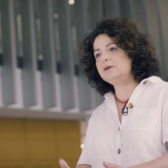
prof. UAM dr hab. Agnieszka Chwieduk
Associate Professor, Department of Ethnology
Room: 2.30
Phone: 61 829 13 82
E-mail: agach@amu.edu.pl
Office hours:
Monday, 10:45-12:15

prof. dr hab. Michał Buchowski
Professor, Section of Social Anthropology
Room: 2.17, 2.12
Phone: 61 829 13 75
E-mail: mbuch@amu.edu.pl
Office hours:
Monday, 11:30-12:30
Tuesday, 11:00-12:30
Research Interests:
Theory and history of anthropology, hierarchies of knowledge, world anthropologies Postsocialism: anthropology of postsocialism in Central Europe, neoliberal postsocialism, class theory of transformations, social exclusion Migration: migration to Poland, migration processes in the European perspective Multiculturalism, nationalism, xenophobia and islamophobia Anthropology of sport / soccerResearch Areas: Poland, Central Europe, Japan
Older books in English
Reluctant Capitalists: Class and Culture in a Local Community in Western Poland, Berlin: Centre Marc Bloch 1997;
The Rational Other, Poznań: Humaniora 1997; Rethinking Transformation: An Anthropological Perspective on Postsocialism, Poznań: Humaniora 2001.
Previous edited volumes in English
(with B. Chołuj) Die Konstruktion des Anderen in Mitteleuropa/The construction of the Other in Central Europe, Frankfurt (Oder): Collegium Polonicum 2001;
(with E. Conte and C. Nagengast), Poland Beyond Communism: “Transition” in Critical Perspective, Fribourg: University Press 2001.
Books and edited volumes (since 2012)
Czyściec. Antropologia neoliberalnego postsocjalizmu [Purgatory: anthropology of neoliberal postsocialism] Poznań: Wydawnictwo Uniwersytetu im. Adama Mickiewicza w Poznaniu 2017 [link]
Schwell, N. Szogs, M. Z. Kowalska,M. Buchowski (eds.)People, passions – but what about politics? DOI 10. 1057/9781137516985
Cervinkova, M. Buchowski, Z. Uherek (eds.), Rethinking ethnography in Central Europe, New York: Palgrave Macmillan 2015.
Buchowski, A. Bentkowski (eds.) Colloquia Anthropologica: issues in contemporary social anthropology, Poznań: Wydawnictwo Nauka i Innowacje / Polski Instytut Antropologii 2014.
Buchowski, M. Z. Kowalska (eds.) Nie tylko piłka w grze. Antropologiczne interpretacje EURO 2012 [Not only ball in the game], Poznań: Wydawnictwo Nauka i Innowacje 2014 [link].
Buchowski, J. Schmidt (eds.) Migracje a heterogeniczność kulturowa. Na podstawie badań antropologicznych w Poznaniu [Migration and cultural heterogeneity], Poznań: Wydawnictwo Nauka i Innowacje 2012 [link].
Buchowski, J. Schmidt (eds.), Imigranci: między izolacją a integracją [Immigrants: between isolation and integration], Poznań: Wydawnictwo Nauka i Innowacje 2012 [link].
Buchowski, V. R. Dominguez (eds.), Changing flows in anthropological knowledge, Special Section, “Focaal”, 2012, nr 63, pp. 3-65, Berghahn Journals [link].
Articles
A new tide of racism, xenophobia, and islamophobia in Europe: Polish anthropologists swim against the current, “American Anthropologist” vol. 119, 2017, issue 3, pp. 519-523. DOI 10.1111/aman.12915
Polish anthropologist against discrimination, “Anthropology News”, 9.06.2017, version online 26.12.2017 https://doi.org/10.1111/AN.478
Antropologia kultury a antropologia kulturowa. Kilka refleksji na marginesie książki Grzegorza Godlewskiego [Anthropology of culture and cultural anthropology] „Filo-Sofija” 17: 2017, z. 1(36): 213-228 [pdf]
Moieties, lineages and clans in Polish anthropology before and after 1989, in: European anthropologies, ed. by A. Barrera-González, M. Heintz, A. Horolets, pp. 187-210, New York-Oxford: Berghahn 2017 [link]
Nauka jako pole (samo)kolonizacji. Przykład antropologii społeczno-kulturowej [Science as a field og self-colonisation], in: Debaty Artes Liberales t. X: Perspektywy postkolonializmu w Polsce, Polska w perspektywie postkolonialnej, ed. by J. Kieniewicz, pp. 21-37, Warszawa: Wydział „Artes Liberales” UW 2016 [pdf
Making anthropology matter in the heyday of islamophobia and the ‘refugee crisis’: the case of Poland, „Český lid: etnologický časopis“ vol. 103, 2016, no. 1, pp. 51-67 DOI 10.21104/CL.2016.1.03
Buchowski, M., Małgorzata Z. Kowalska, A. Schwell, N.Szogs,Introduction: People, passions, and much more: the Anthropology of football, in: New ethnographies of football in Europe: people, passions, politics, (eds.) A. Schwell, N. Szogs, M. Z. Kowalska, M. Buchowski, pp. 1-17, Basingstoke: Palgrave Macmillan 2016. DOI 10. 1057/9781137516985
Tolerancja po polsku. Etnologiczna rozprawa z mitem / Tolerance, Polish-style: an ethnological tussle with the myth, in: Uniwersyteckie Wykłady na Zamku: Uniwersalne wartości w uniwersyteckim dyskursie, (red.) A. Gulczyński, pp. 51-67, Poznań: Wydawnictwo Naukowe UAM 2016 [link]
Mutual encounters, “Lud” t. 100, 2016, s. 47-60 [link].
Buchowski M., H. Cervinkova,Introduction. On rethinking ethnography in central Europe: toward cosmopolitan anthropologies in the “peripheries”, w: Rethinking ethnography in Central Europe, ed. by H. Cervinkova, M.Buchowski, Z. Uherek, pp. 1-20, New York: Palgrave Macmillan 2015.
Buchowski M., H. Cervinkova,Afterword, w: Rethinking ethnography in Central Europe, ed. by H. Cervinkova, M. Buchowski, Z. Uherek, pp. 241-245, New York: Palgrave Macmillan 2015.
Non-hierarchical anthropologies, in: Forum: Rethinking Euro-anthropology: part two, “Social Anthropology/Anthropologie Sociale” vol. 23, no. 4, 2015, pp. 499-501, DOI 10.1111/1469-8676.12269
“Swoi” i “obcy” muzułmanie w Polsce: od ograniczonej tolerancji do nietolerancji {‘Our’ and ‘alien’ Muslims], in: W krainie metarefleksji. Księga poświęcona Profesorowi Czesławowi Robotyckiemu, ed. by J. Barański, M. Golonka-Czajkowska, A. Niedźwiedź, pp. 389-405, Kraków: Wydawnictwo Uniwersytetu Jagiellońskiego 2015 [link]
Buchowski, M. Z. Kowalska, Opis etnograficzny wydarzenia a interpretacja antropologiczna: protest przeciwko EURO 2012 w Poznaniu [Ethnographic description and anthropological interpretation], in: Nie tylko piłka w grze. Antropologiczne interpretacje EURO 2012 [Not only ball in the game], ed. by M. Buchowski, M.Z. Kowalska, pp. 11-36, Poznań: Wydawnictwo Nauka i Innowacje 2014.
Skala migracji a uprawianie antropologii: przykład imigrantów w Poznaniu, in: Kultura, tożsamość i integracja europejska, ed. by D. Niedźwiedzki, pp. 241-254,Kraków: Zakład Wydawniczy NOMOS 2014 [link]
Twilight zone anthropologies: the case of Central Europe, “Cargo. Journal for Cultural/Social Anthropology” 2014, no. 1-2, pp. 7-18 [link].
Neoliberalizm w Europie Środkowej – magia, religia czy nauka?, „Poznańskie Studia Slawistyczne” 2013, nr 4, s. 29-41 [pdf].
Koniec multikulturalizmu: Europa jako twierdza?, in: Ethnos et potentia. Interdyscyplinarność w polskiej etnologii, ed. by R. Vorbrich, A. Szymoszyn, ss. 187-203, Warszawa-Poznań: IAE PAN, IEiAK UAM 2013.
Profesor Jerzy Kmita a antropologia kulturowa, „Rocznik Antropologii Historii” R. 3: 2013, nr 1(4), s. 379-381 [pdf].
Anthropology in postsocialist Europe, in: A companion to the anthropology of Europe, ed. by U. Kockel, M. Nic Craith, J. Frykman, pp. 68-87, Oxford: Wiley-Blackwell 2012 [link]
Buchowski M., A. Posern-Zieliński, H. Mamzer, A.Rozwadowski, Antropologia a archeologia, in: Przeszłość społeczna. Próba konceptualizacji, ed. by S. Tabaczyński, A. Marciniak, D. Cyngot, A. Zalewska, pp. 686-720, Poznań: Wydawnictwo Poznańskie 2012 [pdf].
Buchowski M., K. Chlewińska, Do Silesians exist and can Silesia be autonomous? Limits of ethno-political tolerance in Poland, San Domenico di Fiesole: European University Institute /Robert Schuman Centre for Advanced Studies 2012 [pdf].
Europe as a fortress: the end of multiculturalism and the rise of ‘cultural racism’, w: Ethnic politics and non-military aspects of security, ed. by A.M. Kusnetsov, pp. 33-46, Valdivostok: Far Eastern University Press 2012.
Das Gespenst des Orientalismus in Europa – Vom exotischen Anderen zum stigmatisierten Bruder, w: Kulturelle Übersetzungen, ed. by A. Keinz, K. Schönberger, V. Wolff, pp. 161-182, Berlin: Reimer Verlag GmbH 2012 [link].
Głos w dyskusji, „Biuletyn Forum Debaty Publicznej“ 2012, nr 11: Bogactwo kulturowe Polski – identyfikacja dziedzictwa niematerialnego, pp. 37-38, ed. By O. Dziekoński, Warszawa: Kancelaria Prezydenta RP [link].
Buchowski M., J. Schmidt, Imigracja a heterogeniczność kulturowa. Perspektywa antropologiczna, in: Migracje a heterogeniczność kulturowa. Na podstawie badań antropologicznych w Poznaniu, ed. by M. Buchowski, J. Schmidt, pp. 7-22, Poznań: Wydawnictwo Nauka i Innowacje 2012 [link].
Intricate relations between Western anthropologists and Eastern ethnologists, “Focaal. Journal of Global and Historical Anthropology” 2012, no. 63, pp. 20-30, DOI: https://doi.org/10.3167/fcl.2012.630103.
Jerzy Kmita dla antropologów, „Przegląd Kulturoznawczy” 2012, nr 4(14), pp. 409-412. Doi: 10.4467/20843860PK.12.035.0998 [pdf].
Buchowski M., K. Chlewińska, Poland, in: Addressing tolerance and diversity discourses in Europe. A comparative overview of 16 European countries, ed. by R. Zapata-Barrero, A. Triandafyllidou, pp. 345-369, Barcelona: CIDOB, GRITIM-UPF 2012 [link] [pdf].
Bloch, M. Buchowski M., A. Chwieduk, J. Schmidt, Wnioski końcowe [Conclusions], in: Migracje a heterogeniczność kulturowa. Na podstawie badań antropologicznych w Poznaniu [Migration and cultural heterogeneity], ed. by M. Buchowski, J. Schmidt, pp. 271-284, Poznań: Wydawnictwo Nauka i Innowacje 2012.
Buchowski M., J. Schmidt, Wstęp [Introduction], in: Imigranci: między izolacją a integracją [Immigrnats: between isolation and integration], ed by. M. Buchowski, J. Schmidt, pp. 7-10, Poznań: Wydawnictwo Nauka i Innowacje 2012
Othering and Racialisation of Roma and Muslims in a Nation State (National Science Center), Website 1, 2, 3
CULTURALBASE: Social Platform on Cultural Heritage and European Identities (2015-2017), Horizon 2020 (no. 649454), EU grant (stakeholder), Website.
Społeczno-kulturowa identyfikacja cudzoziemców [Socio-cultural characteristics of foreigners] (2013-2016), National Center for Research and Development (main researcher). Website.
Football Research in an Enlarged Europe: Identity dynamics, perception patterns and cultural change in Europe’s most prominent form of popular culture (FREE) (2012-2015), 7 Framework Project of the EU (główny badacz i koordynator krajowy). Website 1, 2
Spatialization and Racialization of Social Exclusion. The social and cultural formation of “Gypsy ghettoes” in Romania in a European context (SPAREX) (2012-2015), Unitatea Executivă pentru Finanţarea Învăţământului Superior, a Cercetării, Dezvoltării şi Inovării. Website.
Tolerance, Diversity and Social Cohesion. Responding to the Challenges of the 21st Century in Europe (ACEEPT Pluralism) (2010-2013), 7 Framework Project of the EU (main researcher, country’s coordinator). Website 1, 2
Promoting Work-related Immigration and Spreading Good Practices in the EU (REKRY-AMARE) (2010-2013), grant European Social Fund (ESF) (country’s coordinator). Website.
Negative and positive factors playing role in the process of integration of foreign citizens on labor market, in a system of medical care and in education. Anthropological case study in Poznań (European Project Aimed at Integration of Non-EU countries Citizens and Ministry of Labor and Social Affairs) (01-06.2010), European Social Fund for an Integration of Third Countries Citizens (EFI) (Principal Investigator – PI). Website.
Cudzoziemcy w Polsce. Heterogeniczność kulturowa ośrodków wielkomiejskich na przykładzie Poznania (2009-2012), grant MNiSW (PI). Website.
Anthropology of Europe: what is it and how should it be practiced? (2009), Visegrad Fund (conference grant) (PI). Website.
Post-Colony and Post-Socialism Context in Social Scientific Writing and Teaching (2003-2006), grant Higher Education Support Program, Open Society Institute, Budapest (resource faculty member). Website.
Kinship and Social Security (2004-2007), 6 Framework Program of the EU (country’s coordinator). Website.
International Networks and Migration (2004-2006), ‘Interreg’, EU project (co-PI with Werner Schiffauer)
Learning Capitalism: Practices and Discourses in Poland, (1995-1996), Wenner-Gren Foundation for Anthropological Research w Nowym Jorku, co-PI with Carole Nagengast)
Propriété de la terre et devenirs de la paysannerie en Europe Centrale et Orientale (1994-1995), Centre Nationale de la Rechreche Scientifique w Paryżu (PI)
Visiting Professorships
Department of Anthropology, University of Kansas, Lawrence, affiliated professor (01-06.1993, Spring Semester)
Institut für Europaische Ethnologie, Humboldt Universität zu Berlin, affiliated professor (04-09.1997)
Rutgers University, New Brunswick, New Jersey, USA (09.2001- 07.2002)
Columbia University, New York, NY, USA, Distinguished Visiting Professor (2003-2004)
University of Warsaw (02-06.2011, Spring Semester)
National Museum of Ethnology, Osaka, Japonia (11.2017-09.2017)
Fellowships
University of Cambridge, Cambridge Colleges Hospitality Scheme, Visiting Associate, Clare Hall (09-10.1985)
University of Cambridge, British Council, Visiting Fellow, Department of Social Anthropology (05-06.1987)
University of California – Riverside, Fulbright Senior Research Scholar (09.1990- 07.1991)
University of Virginia, Charlottesville, Commonwealth Center for Literary and Cultural Change Postdoctoral Fellow (09-12.1992)
University of Kansas, Lawrence, Kosciuszko Foundation Fellow (01-06.1993)
Goethe Institut, Berlin, Humboldt Stiftung German Language Course, 02-06.1996
Humboldt Universität zu Berlin, Institut für Europaische Ethnologie, Alexander von Humboldt Stiftung Fellow (07.1996-12.1997)
University of Cambridge, Dept. of Social Anthropology, Humboldt Stiftung European Scholarship (10.1997)
Max Planck Institute for Social Anthropology / Max Planck Institute für ethnologische forschung, Halle/Salle, Visiting Scholar (02-03.2006)
Chinese Academy of Social Sciences – Kunming, Yunnan Province, academic exchange between Polish Academy of Science and Chinese Academy of Science (07-08.2009)
Collegium Budapest – Institute for Advanced Studies; Senior Research Fellow (01-05.2010)
National Institutes for the Humanities – National Museum of Ethnology, Osaka, Japonia, (12.2016-09.2017)
Editorial Boards Membership
The Journal of Language and Politics (John Benajmins) link
Social Anthropology/Anthropologie sociale (Wiley-Blackwell) (2008-2014)
History and Anthropology (Tylor & Francis) link
Socialni Studi (Masaryková Univerzita, Brno) link
Cargo (Czech Association of Social Anthropologists, Praha) link
Issues in Ethnology and Anthropology (Belehrad, Serbia) link
Lud (Polskie Towarzystwo Ludoznawcza – Komitet Nauk Etnologicznych PAN) link
Sprawy Narodowościowe (Instytut Slawistyki PAN) link
Professional Societies Membership
Honorary Fellow of the Royal Anthropological Institute (2016 – lifelong) link
Intangible Cultural Heritage NGO Forum (UNESCO affiliated) – Steering Committee member (2017-2019)
European Association of Social Anthropologists (EASA) – Member since 1991- ; Executive Committee member: 2007-2008; President 2009-2010 link
World Council of Anthropological Associations (WCAA) (2008 – ) –Polish Ethnological Society delegate since 2008; Vice-Chair (2010-2012); Chair (2012-2014) link
Polskie Towarzystwo Ludoznawcze / Polish Ethnological Society – President (2005 – ) link 1, link 2
Polish Sociological Society – member
Functions:
At AMU:
- Head of the Department of Ethnology and Cultural Anthropology (2008 – )
- Director of the Center for Migration Studies at AMU (2009 – ) link
- Chair of the Section for European Studies and Cultural Critique (1.10.2000-30.11.2016)
Beyond UAM:
- Committee of Ethnological Sciences of the Polish Academy of Sciences – member: 1998 – now link
- Professor at Chair for Comparative Central European Studies, European University Viadrina, Frankfurt / Oder (1998- now) link
Schroubek Fonds, Ludwig-Maximilians-Universität, Münich – Partner (2011-) link
Antropologos sem Fronteiras / Anthropologists without Borders – member of the Conselho Consultívo / Advisory Council (2013- now) link
President of the Polish Ethnological Society (2005- now, reelected 3 times) link
European Research Council – 2010 – now: expert; 2015 and 2017 – SH5, Panel Chair link 1, link 2
Central Commission for Scientific Degrees and Tittles, Section for Social Sciences and Humanities, member - Field: religious studies (2013-2016) link
Field: ethnology (2017-2020) link
Foundation for Polish Science – member of the Editorial Board (2015 – 2020) link
National Science Center – expert and member of various panels
Ministry of Culture and National Heritage – member of the Council for Intangible Cultural Heritage (2010 – ) link, link 2
Ministry of Science and Higher Education – member of the Interdisciplinary Team for International Co-operation (2016-2018) link - Polish Institute of Anthropology, member of the Research Council (2007- ) link
Deutsch-Polnisch Forschung Institut – member of the Advisory Board (2013- )
Jerzy Kmita Foundation – Founder (2012 – ) link
Foundation of the Center for Migration Studies – Funder (2015)
Other Projects
National Museum of Ethnology, An Anthropological Study of Migration in Kansai Region, Japan (2106-2017)
Media
Opinion: Questioning the “xenophobic turn” in Central Europe, “Monitor Racism”, January-February 2018, issue 1. Florencja, Włochy. [link]
Our coveted Europe. 3.04.2017, FocaalBlog [link]
Anthropologies Futures (IUAES) [link]
WCAA Tenth Anniversary Symposium, IUAES/JASCA conference, Chiba, Japan [link 51’11’ – 1 05’ 17’’]
Plenary roundtable: World anthropologies today: experiences and prospects. IUAES2013 [link 54’-1.09’30’’]
Links
https://amu.academia.edu/MichalBuchowski
https://www.researchgate.net/profile/Michal_Buchowski
https://scholar.google.pl/citations?user=iguAyYcAAAAJ&hl=pl
https://www.kuwi.europa-uni.de/de/lehrstuhl/vs/mitteleuropa/lehrstuhlinhaber/index.html
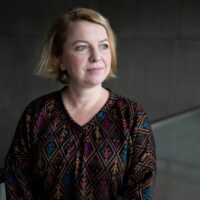
prof. UAM dr hab. Anna Weronika Brzezińska
Associate Professor, Section of Ethnology
Room: 2.29
Phone: 61 829 13 81
E-mail: awbrzez@amu.edu.pl
Office hours:
Thursday, 11:00-12:30
Anna Weronika Brzezińska works in the Department of Ethnology and Cultural Anthropology at Adam Mickiewicz University in Poznań. Her research interests focus on cultural heritage, its social perception and protection as well as on increasing social and cultural participation of local communities. In 2008-2011 she conducted field research in the region of Żuławy, documenting various aspects of taming of the cultural landscape in a situation of broken cultural transmission. She is a memeber of the Polish Ethnological Society, Wielkopolska Cultural Society, and the Oskar Kolberg Institute in Poznań. She is a member of editorial boards of the following journals: Przegląd Wielkopolski and Łódzkie Studia Etnograficzne. She collaborates with the Regional Culture Observatory. Additionally, she is an expert of the Ministry of Culture and National Heritage (Programs: “Folk Culture” and “Culture Observatory”) as well as the Municipal Council of Poznań (“Culture, art, protection of cultural and national heritage”). She is a member of the Council for Intangible Cultural Heritage at the Ministry of Culture and National Heritage and of the policy council of the Wielkopolska Society of folk artists.
In 2002 she graduated from the Małopolska Folk University in Wzdów. She is an instructor of handicraft and has completed courses in weaving, wickerwork, lacemaking and embroidery. She is the editor-in-chief of the Atlas of Polish Folk Costumes. Since 2013 she has been a primary investigator in a documentation project financed by the National Programme for the Development of Humanities. In 2012 she completed a post graduate program in Marketing of Culture at the Institute of International Relations at Warsaw University run in collaboration with the National Centre for Culture in Warsaw.
She is the author of numerous articles and books about regional and cultural education and the social functioning of cultural heritage.
Research Areas: Poland
2017, Brzezińska Anna W., Fabiszak Małgorzata. Individual variation in gestural markers of uncertainty, “Journal of Multimodal Communication Studies” t. 4: Special issue: Gesture and Speech in Interaction, 2017, z. 1-2, s. 36-42, DOI 10.14746/
2016, Brzezińska Anna W., Fabiszak Małgorzata. Żydzi i Niemcy w Poznaniu – (nie)pamięć w krajobrazie miejskim. Analiza korpusu prasowego i wywiadów indywidualnych [Jews and Germans in Poznań – (Non)Memory in the Urban Landscape. An Analysis of a Newspaper Corpus and Focus Groups Interviews]. Studia Socjologiczne (2): 217-241. ISSN: 0039-3371
2015, Brzezińska, Anna W., Historical and social considerations of cultural institutions in Poland in relation to proposal for intangible cultural heritage safeguarding system in Poland, “The IOV Journal of Intangible Cultural Heritage” 2015, pp. 50-62, bibl. ed. M. Santova. Publisher: IOV World. ISSN 2384-4892
2015, Brzezińska Anna W., Arkadiusz Jełowicki, and Wojciech Mielewczyk, Założenia, metodyka cele, [The Atlas of Intangible Cultural Heritage of the Rural Arreas in Wielkopolska], Seria: Atlas niematerialnego dziedzictwa kulturowego wsi wielkopolskiej t. 1, Szreniawa: Muzeum Narodowe Rolnictwa i Przemysłu Rolno-Spożywczego w Szreniawie, 2015, pp. 88. ISBN 978-83-64119-45-3, Vol. 1: ISBN 978-83-64119-46-0.
2014, Brzezińska, Anna W . Made in ‘Polish village’ – modern ethno-design vs. traditional culture of Polish countryside. In: Art in contemporary cultural systems. Central and Eastern Europe, W. Kuligowski and A. Pomieciński, eds. Poznań: Wydawnictwo Nauka i Innowacje, pp. 49-62.
2014, Brzezińska, Anna W. and Małgorzata Wosińska. Oddolne zarządzanie regionalną kulturą muzyczną, [Bottom-up management of regional music culture] In: Raport o stanie tradycyjnej kultury muzycznej, Weronika Grozdew-Kołacińska, ed. Warszawa: Instytut Muzyki i Tańca, pp. 95-106. ISBN 978-83-939305-6-2.
2014, Brzezińska, Anna W. Różne światy kultury ludowej – perspektywa teoretyczna a działania praktyczne [Different worlds of folk culture – theoretical perspective and practical actions]. In: Kultura ludowa. Teorie-praktyki-polityki, Barbara Fatyga and Ryszard Michalski, eds. Warszawa: Instytut Stosowanych Nauk Społecznych UW, pp. 133-154. ISBN 978-83-61493-68-6.
2013, Brzezińska, Anna W.Muzeum jako przedmiot i podmiot działań edukacyjnych [Museum as an object and a subject of educational actions]. In: Edukacja muzealna. Konteksty teoretyczne i praktyczne, Urszula Wróblewska and Karolina Radłowska, eds. Białystok: Muzeum Podlaskie w Białymstoku, 2013, pp. 41-60. ISBN 978-83-87026-24-0.
2013, Brzezińska, Anna W. Reifikacja dziedzictwa kulturowego w świetle Konwencji UNESCO z 2003 roku [Reification of cultural heritage in the light of the 2003 UNESCO Convention]. Nauka (1): 109-128. ISSN 1231-8515
2013, Brzezińska, Anna W. Strój ludowy – od biografii przedmiotu do tożsamości podmiotu [Traditional folk costume – from the biography of an object to the identity of a subject]. In: Stroje ludowe jako fenomen kulturowy, Anna W. Brzezińska and Mariola Tymochowicz, eds. PTL. Atlas Polskich Strojów Ludowych: Zeszyt Specjalny, Wrocław: PTL, pp. 15-24. ISBN 978-83-87266-64-6
2013, Brzezińska, Anna W. Walka o kosz. Miasta i region wobec środowisk rzemieślniczych [Fight for a basket. Towns and regions vs. crafts communities]. Czas Kultury 29: 4(175): 40-47. ISSN 0867-2148.
2013, Brzezińska, Anna W. Wyznaczniki współczesnej kultury regionalnej Żuław [Determinants of modern regional culture of Żuławy]. In: Funkcjonalny obszar Delty Wisły w terytorializacji Polski, Tomasz Parteka and Anna Golędzinowska, eds. PAN. Studia Komitetu Przestrzennego Zagospodarowania Kraju, vol. CXLVI, pp. 173-188. ISBN 978-83-89693-49-5, ISSN 0079-3507
Memory and identity in an urban landscape: Poznan as a case study (2013-2018) Website.
Józef Burszta Digital Achive – digitalization and sharing of archival materials (since 2014). Website.
Exhibition: 100 photographs on 100th birthday of prof. Józef Burszta (2014). Website.
Polish Traditional Folk Costumes Atlas: continuation of publishing works, conducting field research and source queries and digitization of source materials as well as making them accessible via Internet (2013-2016). Website.
The Atlas of Greater Poland village intangible cultural heritage (2012-2015). Website.

dra Zofia Boni
Assistant Professor, Department of Social Anthropology
Room: 2.33
Phone: 61 829 13 85
E-mail: zofia.boni@amu.edu.pl
Office hours:
Monday, 11:30-12:30
please contact beforehand
I work at the intersection of medical, environmental, and food anthropology. I conducted ethnographic research on the moral economies of children’s food; young people’s lived experiences of dieting and obesity; older adults’ experiences of urban heat and climate change, and the health consequences of environmental change in Europe. I study the experiences of most vulnerable groups in the research contexts dominated by biomedical and biophysical sciences, striving for interdisciplinary analysis.
2024
2018
„Negocjowanie ‘zdrowego jedzenia’ w warszawskich rodzinach” [Negotiating ‘healthy food’ in families in Warsaw” [in:] Dzieci i zdrowie. Wstęp do childhood studies. [Children and Health: Introduction to Childhood Studies] Ed. Magdalena Radkowska-Walkowicz i Maria Reimann. Warszawa: Oficyna Naukowa.
“‘My mom feeds me, but really, I eat whatever I want’: Relational Approach to Feeding and Eating” [in:] Feeding Children Inside and Outside the Home: Critical Perspectives. Ed. Vicki Harman, Benedetta Cappellini, Charlotte Fairclough. London: Routledge. 119 – 133.
2017
“It’s Safe: Food as a Way of Expression for Children in Warsaw”. Children’s Geographies, DOI: 10.1080/14733285.2017.1319045.
2016
“Reflections on Food in Food Research”. Anthropologies. Issue on Food. Savage Minds. Available: http://savageminds.org/2016/08/07/anthropologies-22-reflections-food-research/.
2015
“Negotiating Children’s Food Culture in Post-socialist Poland”. Anthropology of Food. Special Issue on Children’s Food Heritage. Available: https://aof.revues.org/7782.
2014
“Contested Interactions: School Shops, Children and Food in Warsaw”. International Journal of Sociology of Agriculture and Food. 21 (3): 309 – 325. Available: http://www.ijsaf.org/archive/21/3/boni.pdf.
2012
“Czekając na męża z obiadem” [Dinner at the Table: Waiting for a Husband to Come Back Home]. Op.Cit. 43: 100 – 103.
“Eating a Doughnut as a Public Problem: Ethnographic Research on Childhood Obesity in Poland”
Funding: National Science Centre in Poland
Time of realisation: 2016 – 2019
“Social and Cultural Aspects of Feeding Children in Warsaw: Discourses, Practices and Negotiations”
Funding: National Science Centre in Poland
Time of realisation: 2013 – 2015
“Growing Resilience: Food self-provisioning and exchange in Poland”
Funding: Open Space University
Time of realisation: 2011
Service and membership
Post-doctoral Research Associate, SOAS Food Studies Centre, University of London
Member of the European Association of Social Anthropologists (EASA), and the Association for the Study of Food and Society (ASFS).
Co-organiser and co-convener of EASA Anthropology of Food Network (http://www.easaonline.org/networks/food/index.shtml).
Reviewer for the Graduate Journal of Food Studies (Harvard University), Food Culture and Society: An International Journal of Multidisciplinary Research, Gastronomica: The Journal of Critical Food Studies.
Links
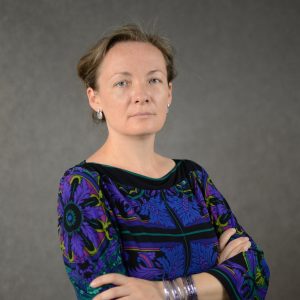
prof. UAM dra hab. Natalia Bloch
Assistant Professor, Section of Social Anthropology
Room: 2.32
Phone: 61 829 13 84
E-mail: nbloch@amu.edu.pl
Office hours:
Wednesday, 10:45-11:45
Dr Natalia Bloch specialises in the anthropology of spatial mobility, including exile, migration, and tourism (and the way they intersect), particularly in the postcolonial context. She has conducted research in Tibetan refugee settlements in India (a PhD project), among workers and small businessmen in the informal tourism sector in India (a post-doc project), as well as among immigrants to Poland. Currently she is working on the project dedicated to the communities embedded in mobility in India. She teaches courses in postcolonial theory, anthropology of tourism, anthropology of migration and refugee studies.
Topics: refugee and migration studies, anthropology of tourism, tourism encounters and host-guest relations in a postcolonial context, power relations in tourism as well as tourism as empowerment, mobility regimes, nationalism and diasporas, second generation of migrants and refugees, migrants in the informal tourism sector, integration and separation as migrants’ and refugees’ adaptation strategies, multiculturalism, cultural heritage and colonial legacy, postcolonial theory, Polish migration memory and the perception of migrants, mobilizing anthropology and methodological challenges in researching mobility (mobile ethnography, anthropological engagement, overcoming methodological nationalism)
Areas: India, Nepal, Poland
Articles
The Failed Struggle for Heritage Ownership in an Indian Village: A Non-Native Entrepreneurial Community’s Predicament. “International Journal of Heritage Studies”. 2025. https://doi.org/10.1080/13527258.2025.2496878
Barbarians in India. Tourism as Moral Contamination, “Annals of Tourism Research” 2017, vol. 62, pp. 64-77. doi.org/10.1016/j.annals.2016.12.001
Taxonomic Panic and the Art of “Making Do” at a Heritage Site. The Case of Hampi UNESCO Site, India, “Anthropological Notebooks” 2017, vol. 23, no. 3, pp. 19-43. [pdf]
Beyond Integration. Tibetan Diaspora’s Separation Strategy in Multicultural India, [in:] The World of Encounters. The Role of Migration and Ethnicity in the Contemporary World. Ed. A. Posern-Zieliński, Poznań: Instytut im. Oskara Kolberga, 2017, pp. 75-96. [pdf]
Evicting Heritage. Spatial Cleansing and Cultural Legacy at the Hampi UNESCO Site in India, “Critical Asian Studies” 2016, vol. 48, no. 4, pp. 556-578. doi.org/10.1080/14672715.2016.1224129
Overheating with Authenticity. Between Familiarity and Otherness in Multisensory Experiencing of India by Tramping Tourists, “Déjà Lu” 2016, vol. 4. [pdf]
Constructing Borders within Diaspora. „Born Refugees”, Newcomers and Bargaining Tibetan Identity, [in:] Middle Grounds, Ambiguous Frontiers and Intercultural Spaces. Eds. A. Posern-Zieliński, L. Mróz, Poznań: Instytut im. Oskara Kolberga, 2014, pp. 135-154. [pdf]
Between Vishnu and Mao Zedong. The Maoist Movement in Multi-ethnic Nepal, “Ethnologia Polona” 2010-2011, vol. 31-32, pp. 169-189.
Obóz uchodźców jako atrakcja turystyczna. Kto i po co od(z)wiedza diasporę tybetańską? [Refugee Camp as Tourist Attraction: Who Re(dis)covers the Tibetan Diaspora, and Why?] „Etnografia Polska”, 2011, vol. 55, no. 1-2, pp. 51-68. [pdf]
Czy jakożerca może zostać wegetarianinem? Globalny dyskurs praw zwierząt jako „tradycja wynaleziona” w diasporze tybetańskiej [Can a Yak-Eater Turn Vegetarian? The Global Animal Rights Discourse as “Invented Tradition” in the Tibetan Diaspora], „Lud” 2010, vol. 94, pp. 121-141. [pdf]
The Young Tibetan Exile Today: A Democrat, Environmentalist, Vegetarian? Globalization and Negotiating Identity in the Situation of Displacement, [in:] Exploring Home, Neighboring and Distant Cultures. Eds. L. Mróz, A. Posern-Zieliński, Warsaw: DiG, 2008, s. 239-258. [link]
Books [in Polish]
Urodzeni uchodźcy. Tożsamość pokolenia młodych Tybetańczyków w Indiach [Born Refugees: The Identity of the Young Generation of Tibetans in India], Wrocław: Wydawnictwo Uniwersytetu Wrocławskiego, 2011, pp. 672. [link]
Wszyscy jesteśmy migrantami. (Od)zyskiwanie pamięci migracyjnej) [We Are All Migrants. (Re)covering of the Memory of Migration]. Ed. N. Bloch, Poznań: Centrum Kultury ZAMEK, 2016, pp. 346. [pdf].
Nie dość użyteczni. Zmagania imigrantów na lokalnym rynku pracy [Not Useful Enough. The Struggle of Immigrants in the Local Labour Market]. Eds. N. Bloch, I. Main, K. Sydow, Poznań: Centrum Badań Migracyjnych UAM, 2015, pp. 189. [pdf]
Od gości do sąsiadów. Integracja cudzoziemców spoza Unii Europejskiej w Poznaniu w edukacji, na rynku pracy i w opiece zdrowotnej [From Guests to Neighbours: The Integration of Migrants from Non-European Union Countries in Poznań City: Education, Labour Market, and Health Care]. Eds. N. Bloch, E. M. Goździak, Poznań: Centrum Badań Migracyjnych UAM, 2010, pp. 262. [pdf]
Communities Embedded in Mobility: Refugees, Migrants, and Tourists in India. Towards a Non-Sedentarist Anthropology (2016-2019), a post-doc fellowship of the Polish National Science Centre (manager and principal investigator). [link]
We Are All Migrants. Letters of Polish Immigrants from America in the Late 19th Century (2016-2018), a photo exhibition & an education and research project of the Ministry of Culture and National Heritage (curator, principal investigator). [link] [award]
Power Relations and Strategies of Authenticity in Tourism. A Case Study of India through a Postcolonial Perspective (2012-2016), a research grant of the Polish National Science Centre (manager and principal investigator).
Active Migrants in the Local Labour Market (AMIGA). Polish-German Cooperation Project (2013-2015), an applied grant of the European Social Fund (supervisor of the researchers/migrants’ assistants). [link] [Migrant Info Point]
Polish Settlements in Europe. Anthropological Visualizations of Cultural Phenomena – Enclaves of Polish Culture in the Region of Bukovina in Romania and in the Czech Republic (2010-2012), Erasmus Intensive Programme summer schools (teacher).
Factors Assisting and Restricting the Integration of Third Country Nationals into the Labour Market, Health Service and Education: An Anthropological Case Study of the City of Poznań (2010), a research grant of the European Fund for the Integration of Third Country Nationals (principal investigator). [link]
Foreigners in Poland: The Heterogeneity of Large Urban Centres. A Case Study of Poznań (2009-2012), a research grant of the Polish Ministry of Science and Higher Education (principal investigator). [link]
Regional National-Religious Movements in an Increasingly Globalized Asia. Contemporary Pilgrimages to Mount Kailash in the Indian-Chinese-Nepalese Borderland (2007-2010), a research grant of the Polish Ministry of Science and Higher Education (researcher).
Culture and Politics. A Case Study of the Young Generation of Tibetan Exiles in India (2007-2009), a research grant of the Polish Ministry of Science and Higher Education (manager and principal investigator). [link]

